

Is Marseille Safe? What You Need To Know (2024)
By: Author Christine Rogador
Posted on Published: July 9, 2023 - Last updated: February 28, 2024
Is Marseille Safe? Here’s a comprehensive look into the safety of this French vibrant coastal city.
Marseille , formerly known as Massalia to the ancient Greeks and Romans, has a rich history as the primary trading hub in the region and the main commercial port of the French Republic. Its strategic location on the Mediterranean coast has made it a vital center for commerce and cultural exchange for centuries.
This old city is the largest on the French Mediterranean coast. It’s also home to the country’s biggest port for commerce, freight, and cruise ships. With its bustling activity and stunning seaside views, Marseille is a must-visit destination for anyone looking to experience the vibrant energy of southern France.
But like with any new city that you visit, safety should be among your top concerns. In this guide, we’ll talk about Marseille’s so-called reputation, some safety issues, and ways to have a trouble-free stay in the city.
Things you'll find in this article
Public Transportation
Pickpockets, night safety, safe neighborhoods, places to avoid, safety tips.
Related Read:
- Best Hotels In Marseille
- Best Day Trips from Marseille, France
- Ways To Travel From Paris To Marseille
- Best Things To Do In Marseille, France
Despite the city’s troubled history, Marseille is committed to improving itself. Marseille is a secure city for tourists, but there are several neighborhoods you should stay away from if you’re worried about your safety.
France has a high level of peace, with a Global Peace Index of 1.87. Being one of its major cities, Marseille is a great place to explore. Its neighborhoods are distinguished by their identities, wild landscapes, and vibrant street art.
However, you should keep a watch out for pickpockets and con artists, especially in busy public places like bars and restaurants in Marseille.
Stay away from dark, narrow alleys and less populated areas after sundown, and consider staying in indoor areas if you must venture out of your hotel in the city .
Safety Concerns in Marseille
According to the locals in Marseille, the city is a safe destination for solo travelers.
However, there are a few things that you should keep in mind to ensure a smooth and enjoyable trip. It is advisable to refrain from using the metro during nighttime hours. France has a reliable transportation system, but if you’re looking for a quicker and safer option, calling a cab is the way to go.
Pickpocketing is a low to medium danger in Marseille, with careless visitors being the primary targets. Bars, clubs, transportation hubs, restaurants, and tourist hotspots are common places for them to operate as a gang.
There are a variety of ways they could use to distract your focus. Thieves frequently do the “crush and grab” technique on public transportation. Whenever you enter or exit the subway, be prepared to be pushed and swarmed by pickpockets.
Always be aware of who and what is around you, especially in busy places or while riding public transportation. Never risk losing your belongings or forgetting them at home; keep your bag in a hotel safe or hostel locker instead.
Large urban centers like Marseille are targets for several forms of fraud. The gold ring scam is an old one, but it still has a chance of happening in busy tourist areas. It’s when somebody acts like they found a gold ring on the ground, offers it to you, and then expects a finder’s fee in exchange.
Another common con is “free” charms that aren’t free at all. A jewelry, a rose, or anything else might be offered as a gift, and then money will be asked for.
If you’re sightseeing in the downtown area, you should be wary of anyone who approaches you out of the blue.
Trust your instincts and never stop being cautious. Leave if something doesn’t look right or if you feel threatened.
Due to the persistent threats posed to France by certain terrorist groups, the prospect of a terrorist assault in Marseille and throughout the rest of France remains.
Thus, the likelihood of such an incident occurring is very high. Visitors to France are urged to use caution in public places and adhere to the recommendations provided by the French government. Keep in mind that there have been previous acts of high character committed by terrorists in France.
Safety for Solo/Female Travelers
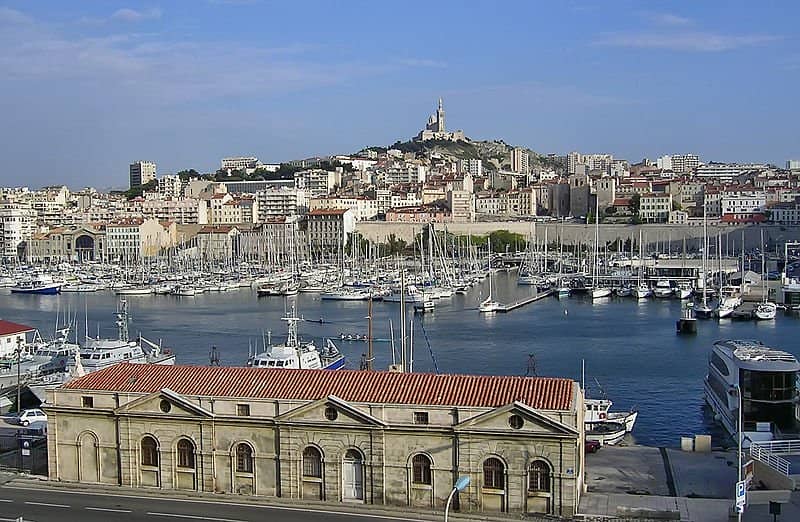
Women can safely travel around Marseille on their own. The city has excellent public transportation and a strong police force, making it simple to get around in and navigate.
Still, as in any city, you should remain cautious and aware of your surroundings to avoid harm. Be wary of pickpockets in crowded locations, avoid walking alone at night, and keep your belongings close.
It is typically safe to walk around Marseille at night; nonetheless, travelers should be vigilant about minor criminal acts such as petty theft and pickpocketing.
In addition, one must always be aware of the people and places immediately surrounding them, just as is the case in other large cities all over the world.
Despite the city’s attractive Mediterranean climate, visitors to Marseille may be unprepared for its weather.
The mistral is something to watch out for, being a very strong wind that blows in from the entire southern third of France and is then concentrated in a relatively narrow stretch of the country’s southern coast. It has been recorded going as fast as 66 km/h and lasting for up to seven days. Winter and spring are peak seasons for this.
The summer sun is your first major concern if you plan on visiting Marseille. Highs in the city can reach 29 degrees Celsius, and it’s easy to become sunburned if you spend much of your day on foot. You should pack for your vacation to Marseille based on the season you decide to visit.
There’s no denying that the French city of Marseille is a lovely and historic destination in its own right. It’s not without flaws, but it does have its fair share of safe areas, such as:

Le Panier is a neighborhood in Marseille that is often regarded as one of the city’s most secure. This vibrant neighborhood is the oldest district in all of Marseille, making it perfect for history buffs. You may safely explore its winding cobblestone lanes, take in the local street art, and visit its picture-perfect squares.
Le Vieux Port
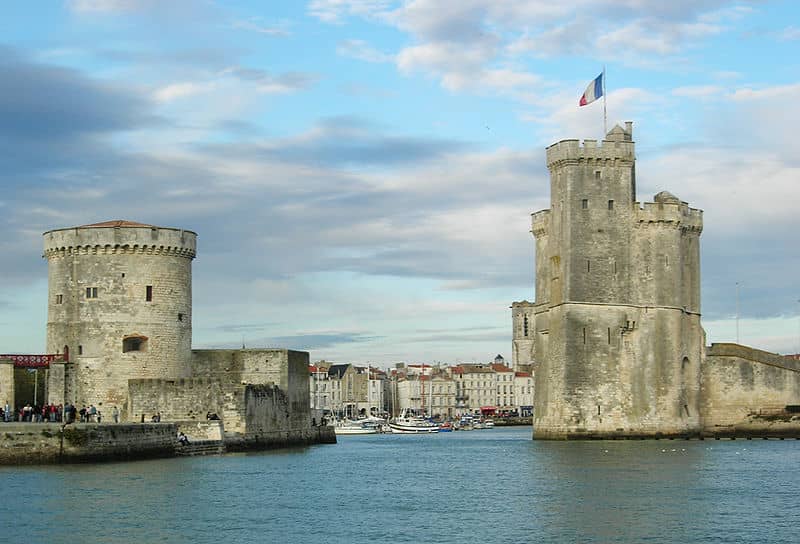
Le Vieux Port is another secure area of Marseille. The historic quarter of Le Vieux Port is packed with interesting attractions like museums, cafes, and marketplaces. You may also take a stroll through its streets and see for yourself why it is the cultural and social hub of Marseille.
La Corniche

La Corniche is the best area in Marseille to spend a peaceful and risk-free holiday. It’s perfect for tourists looking for a quiet place to wander away from the city.
Even locals will tell you that the northern areas of Marseille should be avoided at all costs. These areas truly do have the highest rates of crime and criminality.
The 13e, 14e, 15e, and 16e arrondissements form the northern part of Marseille. These areas are located quite some distance away from the city’s tourism hotspots (such as the Old Port, the Creeks of Marseille, the Basket District, Cannebière, etc.)
1.Always remain in crowded, well-lit places.
When exploring Marseille by yourself, stick to populated, well-lit areas. As a result, you’ll be less likely to be targeted by criminals.
2. When exploring Marseille on your own, keep your eyes peeled at all times.
Keep an eye out for strange and questionable behavior.
3. Avoid carrying around significant sums of cash.
When going about your business on your own in Marseille, you should try to avoid carrying around huge sums of cash. This is to ensure that there will be a lower chance of you becoming a target for theft.
4. When exploring Marseille on your own, it’s not a good idea to flaunt expensive possessions.
This will make you less likely to be a target for thieves. When visiting Marseille on your own, it’s also not a good idea to flaunt any flashy jewelry.
5. Follow your instincts whenever possible.
When traveling alone in Marseille, you should always heed your gut feeling. If something doesn’t seem quite right, it’s advisable to get out of there as soon as possible.

Hi, I’m Christine – a full-time traveler and career woman. Although I’m from the Philippines, my location independent career took me to over 40 countries and lived in 4 continents in the last 10 years, including France. A self-proclaimed Francophile, I love everything France.
Sharing is caring!
Minima + Regula
Minima + Maxima
Luggage Set
ENTER FOR A CHANCE TO WIN A 4-NIGHT STAY IN CANCUN!
Is marseille safe 2024 safety guide.
Hey there, fellow travelers! Are you planning a trip to the beautiful city of Marseille, France? As much as we all love the idea of exploring a new destination, safety is always a top priority when it comes to traveling. With recent events and news reports, you may be wondering if Marseille is still a safe place to visit. Well, let me tell you, there’s no need to worry! Marseille may have had a rough past, but it has transformed into a vibrant and safe city that is waiting to be explored. So, can you feel safe in Marseille, France today? Let’s dive in and find out! If you are thinking about traveling to Marseille, check out our Marseille travel guide !
Table of Contents
Is Marseille Safe Right Now?
When it comes to the safety of Marseille, France, you can breathe a sigh of relief. Despite its troubled past, Marseille has made great strides in becoming a safe and inviting city for travelers. The city has implemented numerous security measures to ensure the well-being of its residents and visitors. The local authorities have increased police presence and surveillance, particularly in high-traffic tourist areas. Marseille also benefits from a well-functioning emergency response system, providing reassurance to those concerned about safety.
Frequent Travel Recommendations
Hey there! ✈️ I'm thrilled to share some fantastic travel recommendations with you! I receive numerous emails asking for the best travel advice, and after careful consideration, here are my top picks just for you. Get ready to explore incredible destinations and enjoy some amazing deals that have been curated based on popular demand. So, without further ado, here are the travel experiences I highly recommend. Let the adventures begin! 🌍🌟
Travel Insurance
SafetyWing — For general travelers and digital nomads with great rates.
Viator — The largest selection for almost all locations.
Expedia Flights — Large selection for flights.
Expedia Hotels — Large selection for hotels.
Booking.com — The largest selection for hotels.
Click on the links above to get the best deals!
Thanks for the support! - Tiffany
In recent years, crime rates have been decreasing steadily, and violent incidents are relatively rare. Of course, like any major city, it is always important to take standard precautions such as being aware of your surroundings, keeping an eye on your belongings, and avoiding unlit or deserted areas at night. However, the overall atmosphere in Marseille is one of vibrancy, culture, and warmth.
While it is essential to stay informed and aware of any current travel advisories or alerts, Marseille is generally considered safe for travelers. The city welcomes visitors with open arms and offers a wide range of experiences, from historic sites and stunning architecture to delicious cuisine and vibrant markets. So, pack your bags and embark on your Marseille adventure with confidence – this captivating city awaits!
Marseille Travel Advisory
France has a level 2 travel advisory in place for travelers visiting Marseille. This means that there may be some areas in the city where caution is advised. It is important to stay informed about any current travel advisories or alerts before your trip. However, it’s important to note that Marseille has made significant improvements in terms of safety and security in recent years.
The local authorities have implemented various measures to ensure the well-being of residents and visitors, including increased police presence and surveillance in popular tourist areas. While it’s always important to be vigilant and take standard safety precautions, such as being aware of your surroundings and keeping an eye on your belongings, Marseille is generally considered safe for travelers.
The city offers a vibrant and diverse experience, with plenty of historic sites, delicious cuisine, and friendly locals. So, with the necessary precautions in mind, you can explore Marseille with confidence and enjoy all that this captivating city has to offer.
Is Marseille Safe To Walk Around?
Exploring a new city by foot is not only a great way to soak up the local atmosphere, but it can also provide a deeper understanding of the culture and history. So, is it safe to walk around Marseille, France? The answer is a resounding yes! Marseille has made significant strides in ensuring the safety of pedestrians in recent years.
The city has implemented various measures to enhance pedestrian safety, such as increasing police presence in popular tourist areas and improving lighting in public spaces. In addition, Marseille benefits from a well-developed network of pedestrian-friendly streets and walkways, making it easy and enjoyable to navigate on foot.
Of course, as with any city, it’s important to take basic precautions while walking around Marseille. Stay aware of your surroundings, especially in crowded areas, and keep your belongings secure. Avoid walking alone in poorly lit or deserted areas at night, and consider using well-traveled routes.
By exercising caution and being mindful of your surroundings, you can confidently explore Marseille on foot. Immerse yourself in the vibrant streets, discover hidden gems, and indulge in the local culture and cuisine. Marseille is a safe city to walk around, so put on your walking shoes and get ready for an unforgettable adventure!
Is Uber Safe In Marseille?
Many travelers rely on ride-sharing services like Uber for convenient and reliable transportation in unfamiliar cities. If you’re planning a trip to Marseille, you may be wondering if Uber is a safe option for getting around. The good news is that Uber is generally considered safe in Marseille, just like in many other cities around the world.
Uber drivers in Marseille are subject to the same background checks and safety regulations as drivers in other locations. This provides an extra layer of assurance for passengers. Additionally, Uber allows users to track their ride in real-time, ensuring transparency and accountability.
However, as with using any transportation service, it’s important to exercise caution and follow standard safety practices. Always verify that the car and driver match the details provided in the app before getting in. Stay aware of your surroundings and consider sharing your trip details with a friend or family member for added peace of mind.
Overall, Uber can be a safe and convenient option for getting around Marseille. So, hop in, sit back, and enjoy the sights and sounds of this beautiful city without any worries about transportation!
Is Public Transportation Safe In Marseille?
Public transportation in Marseille is generally considered safe for travelers. The city offers a reliable and extensive public transportation system, including buses, trams, and the metro, which can efficiently take you to various destinations throughout the city. These modes of transportation are well-maintained and provide a convenient way to navigate Marseille.
Security measures are in place to ensure the safety of passengers. Public transportation stations and vehicles are equipped with surveillance cameras, and there is typically a visible presence of security personnel in these areas. Additionally, transportation authorities have implemented safety protocols to prevent incidents and maintain order.
However, as with using any public transportation system, it’s important to stay vigilant and be aware of your surroundings. Keep an eye on your belongings and be cautious in crowded areas. It’s also advisable to avoid traveling alone late at night and to use well-lit and well-populated routes.
By following these precautions and exercising common sense, you can confidently utilize public transportation in Marseille and explore the city with ease. So hop on board and enjoy the convenience and efficiency of Marseille’s public transportation system while soaking in the sights and sounds of this vibrant city.
Is Marseille A Safe Place To Drive?
If you’re planning to drive in Marseille, you may be wondering if it’s a safe option. The good news is that Marseille is generally a safe place to drive, but there are a few things to keep in mind. First, like any city, traffic can be congested and chaotic at times, so be prepared for that. Also, it’s important to familiarize yourself with the local driving laws and regulations before hitting the road. This includes understanding things like speed limits, parking restrictions, and right-of-way rules.
Additionally, keep in mind that parking in the city center can be difficult, so it’s worth considering alternative transportation options or planning your parking in advance. Finally, always be aware of your surroundings and practice defensive driving techniques. Overall, while driving in Marseille can be an adventure, as long as you stay alert and follow the rules of the road, you can enjoy exploring the city by car safely.
Is It Safe To Live In Marseille?
Living in Marseille can be a wonderful experience, but is it safe? Well, the good news is that Marseille has made significant progress in terms of safety in recent years. While every city has its share of crime, Marseille has implemented various measures to ensure the well-being of its residents.
Increased police presence and surveillance in public areas have helped to deter criminal activity. The city has also taken steps to improve lighting in neighborhoods and enhance the overall security infrastructure. Additionally, Marseille benefits from a well-functioning emergency response system, providing residents with a sense of security.
Of course, it’s important to exercise caution and take standard safety precautions while living in Marseille. Stay informed about any local safety concerns and be aware of your surroundings. It’s always a good idea to get to know your neighbors and connect with the local community, as they can provide valuable insights and support.
Marseille is a vibrant city with a rich cultural heritage, delicious cuisine, and a welcoming community. With the necessary precautions in mind, living in Marseille can be an enriching and safe experience. So, embrace the Mediterranean lifestyle and enjoy all that Marseille has to offer!
Is Airbnb Safe To Use In Marseille?
Many travelers opt to use Airbnb when visiting a new city, as it offers a unique and personalized accommodation experience. So, is Airbnb safe to use in Marseille? The answer is yes, with the necessary precautions. Marseille has a wide range of Airbnb options, from cozy apartments to charming villas, and the platform provides several safety measures for guests.
When booking an Airbnb in Marseille, it’s important to read reviews from previous guests and ensure that the host has a good reputation. This will give you peace of mind and help you make an informed decision. Additionally, Airbnb provides a messaging system that allows you to communicate directly with the host and ask any questions you may have about the property or neighborhood.
While Airbnb takes steps to verify the identity of hosts, it’s always a good idea to exercise caution and trust your instincts. Make sure to take standard safety precautions, such as keeping your valuables secure and locking your accommodations when you leave. By being mindful and proactive, you can enjoy a safe and comfortable stay in Marseille through Airbnb.
Is Marseille Safe For Tourists?
As a tourist, your safety is of utmost importance, and you may be wondering if Marseille is a safe destination for travelers. Well, let me put your mind at ease. Marseille is generally considered safe for tourists. The city has taken significant measures to ensure the safety and well-being of visitors. Increased police presence and surveillance in tourist areas have helped to deter crime and maintain a safe environment. Marseille also benefits from a well-functioning emergency response system, providing peace of mind to tourists.
Of course, it’s always important to exercise caution and be aware of your surroundings. Take standard safety precautions, such as keeping an eye on your belongings and avoiding unlit or deserted areas at night. Stay informed about any current travel advisories or alerts and follow any recommendations from local authorities.
But don’t let safety concerns deter you from visiting Marseille. The city offers a wealth of attractions, from historic sites and stunning architecture to delicious cuisine and vibrant markets. With the necessary precautions in mind, you can confidently explore Marseille as a tourist and create unforgettable memories in this captivating city.
Is Marseille Safe For Families?
If you’re planning a family trip to Marseille, you may be wondering if the city is a safe destination for children. Rest assured, Marseille is generally considered safe for families. The city has taken significant measures to ensure the safety and well-being of visitors, including families with children.
Marseille benefits from increased police presence and surveillance in tourist areas, which helps to maintain a safe environment. Additionally, the city has implemented safety measures in public spaces, such as improved lighting and security infrastructure. These measures contribute to creating a secure atmosphere for families to explore and enjoy.
As with any city, it’s always important to exercise caution and be aware of your surroundings when traveling with children. Keep an eye on your belongings and avoid unlit or deserted areas, especially at night. Stay informed about any current travel advisories or alerts and follow any recommendations from local authorities.
With these precautions in mind, families can confidently visit Marseille and discover the many family-friendly attractions the city has to offer. From exploring historic sites to enjoying delicious cuisine, Marseille has something to delight every member of the family. So pack your bags, create lasting memories, and experience the warmth and vibrancy of Marseille with your loved ones!
Is Marseille Safe For Female Travelers?
As a female traveler, safety is always a top concern when planning a trip. So, is Marseille a safe destination for women? The answer is a resounding yes! Marseille is generally considered safe for female travelers, with measures in place to ensure their well-being.
Increased police presence and surveillance in tourist areas contribute to maintaining a safe environment. Additionally, the city has implemented safety measures, such as improved lighting and security infrastructure, to enhance the overall safety for everyone.
Of course, it’s important for female travelers to exercise caution and be aware of their surroundings. Take standard safety precautions, such as staying in well-populated areas, avoiding unlit or deserted streets at night, and keeping an eye on personal belongings. It’s also a good idea to inform someone of your travel plans and share your itinerary.
Marseille offers a wide range of experiences for female travelers, from exploring historic sites and museums to indulging in delicious cuisine and shopping at vibrant markets. With the necessary precautions in mind, female travelers can confidently visit Marseille and enjoy all that this beautiful city has to offer. So pack your bags, embrace the Mediterranean charm, and create unforgettable memories in Marseille!
Is Marseille Safe For Solo Travelers?
Traveling solo can be an incredible adventure, and Marseille is a great city for solo travelers. Is Marseille safe for solo travelers? Absolutely! While it’s always important to exercise caution and be aware of your surroundings, Marseille is generally considered safe for solo exploration.
The city has taken significant measures to ensure the safety and well-being of all visitors, including solo travelers. Increased police presence and surveillance in tourist areas help to maintain a secure environment. Additionally, Marseille benefits from a well-developed public transportation system, making it easy to navigate the city independently.
As a solo traveler, it’s important to take standard safety precautions. Stay in well-populated areas, especially at night, and avoid walking alone in poorly lit or deserted streets. Keep your belongings secure and be aware of your surroundings. It’s also a good idea to inform someone of your travel plans and share your itinerary.
Marseille offers a wealth of experiences for solo travelers. Explore the charming streets, indulge in delicious cuisine, and immerse yourself in the vibrant culture. With the necessary precautions in mind, solo travelers can confidently visit Marseille and create unforgettable memories in this captivating city. So pack your bags, embrace the freedom of solo travel, and embark on an adventure of a lifetime in Marseille!
Is Marseille Safe For Americans?
As an American traveler, you may be wondering if Marseille is a safe destination for you. Well, let me put your mind at ease. Marseille is generally considered safe for Americans and all visitors. The city has implemented various security measures to ensure the safety and well-being of everyone. Increased police presence and surveillance in tourist areas help to maintain a secure environment. Marseille also benefits from a well-functioning emergency response system, providing peace of mind to travelers.
Marseille offers a wealth of experiences for American travelers, from exploring historic sites and soaking up the vibrant culture to indulging in delicious cuisine. With the necessary precautions in mind, Americans can confidently visit Marseille and create unforgettable memories in this captivating city. So pack your bags, embrace the Mediterranean charm, and get ready for an incredible adventure in Marseille!
Is It Safe To Do Drugs In Marseille?
Drug use is illegal in Marseille, just like in most cities around the world. It is important to note that engaging in illegal drug activities can have severe consequences and put your safety at risk. Marseille, like any city, has its share of drug-related issues, and it is best to avoid involvement in any drug-related activities.
While the city has taken measures to improve safety and security, drug use and the associated risks can still be present. It is essential to prioritize your well-being and make responsible choices while visiting Marseille. Engaging in drug use not only puts your personal safety at risk but also supports illegal activities and can have negative consequences for the local community.
Instead of indulging in illegal drug use, focus on enjoying the vibrant culture, delicious cuisine, and rich history that Marseille has to offer. By respecting local laws and regulations, you can have a safe and memorable experience in this captivating city. So, make the most of your time in Marseille and steer clear of illegal drug activities.
Common Scams To Look Out For In Marseille
As much as we all love exploring new destinations, it’s essential to stay informed about common scams that may exist in Marseille. While the city is generally safe, it’s always better to be aware and prepared. Here are some common scams to look out for in Marseille:
- Pickpocketing : Like in any major city, pickpocketing can occur in crowded tourist areas or public transportation. Stay vigilant, keep your belongings secure, and be mindful of your surroundings.
- Street Scams : Be cautious of individuals trying to distract you or engage you in conversation while their accomplices try to steal your belongings. Avoid accepting unsolicited help or engaging with overly friendly strangers.
- Fake Charity Collectors : Some individuals may approach you on the streets, pretending to collect donations for a charity or cause. It’s best to donate to reputable organizations directly or at designated collection points.
- Fake Taxi Drivers : Always ensure that you use licensed taxis with visible identification. Avoid unmarked or unofficial taxis, as they may overcharge or take longer routes to increase the fare.
- Fake Tickets And Tours : When purchasing tickets or booking tours, be cautious of counterfeit or unauthorized sellers. It’s best to book through reputable agencies or official websites.
Remember, being informed is the best defense against scams. By staying alert and trusting your instincts, you can enjoy your time in Marseille without falling victim to any scams. Stay safe and have a wonderful trip!
Marseille Emergency Numbers
In case of any emergency during your visit to Marseille, it’s important to be familiar with the local emergency numbers. Here are the essential Marseille emergency numbers to keep handy:
- Police : Dial 17 to reach the police in case of any criminal activity, theft, or immediate threat to your safety. The police in Marseille are responsive and equipped to handle emergencies.
- Ambulance : In the event of a medical emergency, dial 15 to reach the ambulance service. Trained professionals will promptly respond and provide the necessary medical assistance.
- Fire Department : If you encounter a fire or need assistance in any fire-related situation, dial 18 to contact the fire department. They are well-prepared to handle fires and other emergencies.
- European Emergency Number : You can dial 112 for any general emergency situation, including medical emergencies, accidents, or crimes. This number connects you to the appropriate emergency service based on your needs.
Make sure to save these numbers in your phone or have them written down in case of an emergency. It’s always better to be prepared, but remember that Marseille is generally considered safe, and emergencies are rare. So, relax, enjoy your trip, and have a wonderful time exploring the beautiful city of Marseille!
The Bottom Line
In conclusion, Marseille, France is a safe and vibrant city that is waiting to be explored. Despite its troubled past, Marseille has made great strides in ensuring the safety and well-being of its residents and visitors. With increased police presence and surveillance in tourist areas, along with a well-functioning emergency response system, the city has created a secure environment for travelers.
While it’s important to exercise caution and be aware of your surroundings, Marseille offers a wide range of experiences, from historic sites and delicious cuisine to vibrant markets and friendly locals. Whether you’re a solo traveler, a family with children, or a female traveler, Marseille welcomes you with open arms.
By following standard safety precautions and staying informed about any current travel advisories, you can confidently explore Marseille and create unforgettable memories in this captivating city. So pack your bags, embrace the Mediterranean charm, and get ready for an incredible adventure in Marseille!
Your Ultimate Los Angeles Travel Guide 2024
Your Ultimate Playa Del Carmen Travel Guide 2024
Your Ultimate Paris Travel Guide 2024
Write for us!
CHESTER likes to publish content from travel experts and enthusiasts who can provide unique and useful perspectives. This is a great opportunity for our readers to learn from you, and for you to get exposure to our readers and our syndication partners. Feel free to email us for more information: [email protected]
Is Nice Safe? 2024 Safety Guide
Are you considering a trip to Nice, France but unsure if it’s safe? With everything going on in the world, it’s understandable to be hesitant about visiting a foreign country. But fear not! Despite what you may have heard, Nice... Read More
Safety Guides
Is Seville Safe? 2024 Safety Guide
Are you dreaming of a trip to sunny Seville, Spain? You’re not alone! With its stunning architecture, vibrant culture, and delicious cuisine, it’s no surprise that Seville is a popular destination for travelers. But before you head out on your... Read More
Is Valencia Safe? 2024 Safety Guide
Are you dreaming of a trip to Valencia, Spain? We can understand why – the Mediterranean climate, the amazing cuisine, and the stunning architecture all combine to make it one of the most beautiful places in Europe. But before you... Read More
- English (EN)
- Español (ES)
- Português (BR)
Is Marseille Safe? Crime Rates & Safety Report
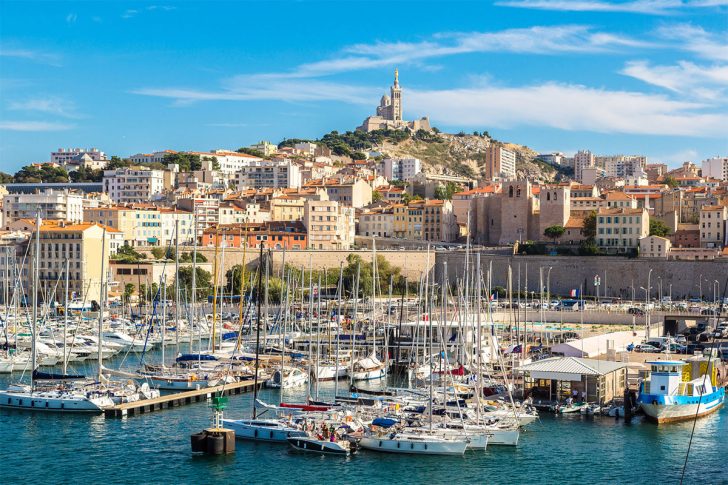
France : Safety by City
- Montpellier
Considering its tradition and complex history that dates back to 600 BC when it was founded by Greek mariners, Marseille is a top destination for tourists from all over the world.
It is the second-largest city in France and the largest one in the Mediterranean.
The city is a mixture of various nationalities since the people living there have different ethnic backgrounds because a lot of Italians and Spanish having immigrated there after the Second World War.
Tourists are attracted by its markets, sea, old harbor and the Panier area, which is the oldest part of the city.
- Warnings & Dangers in Marseille
OVERALL RISK: MEDIUM
The police are doing its best to protect both the citizens and tourists in Marseille, and it is highly-effective, but tourists still might be a target for pickpockets on the city’s streets. It is a safe city with certain parts to be avoided. Street crime is very frequent, so keep an eye on your passport, credit cards, and other valuables and carry your bag across your body rather than on your shoulder.
TRANSPORT & TAXIS RISK: MEDIUM
Public transport might be risky in Marseille. Motorway journeys are usually trouble-free, but when the parking is in question, always park your car in a public area with lights. Using mobile phones with headsets or earpieces when driving is forbidden. France is often disrupted by strikes which can affect transport. Tourists should be careful of rogue taxi drivers who raise the price during the ride.
PICKPOCKETS RISK: MEDIUM
Pickpocket-related risk in the center of Marseille is common and pickpockets usually work in a gang. While you are distracted by one of them, the other gets your bag. Restaurants and bars are also common places where thieves operate.
NATURAL DISASTERS RISK: LOW
When natural hazards are in question, the risk is low in Marseille, as well as in the whole of France. There might be some avalanche risks in the Alps and some forest fires during the summer months, especially along the Mediterranean coast. Tourists need to follow the advice of French Authorities in case they need to evacuate areas and close roads for safety reasons.
MUGGING RISK: MEDIUM
The chances of being mugged or kidnapped in Marseille are medium since some dangerous areas need to be avoided, especially at night. There have been reports about several victims of serious assault on the RER line B and on RER line D, which serves the Stade de France.
TERRORISM RISK: HIGH
The possibility of the terrorist attack in Marseille and the whole of France exists and the risk is very high, due to ongoing threats to France by Islamist terrorist groups. Tourists need to be watchful in public and follow the advice of local French authorities. Bear in mind that there have been several high profile terrorist attacks in France.
SCAMS RISK: MEDIUM
Common scams used to obtain money from tourists are fake petitions, 3 card trick, and gold ring tricks. As in any other big city, thieves will do everything to try to fool you to rob you. Scammers usually operate on the Paris underground and RER lines.
WOMEN TRAVELERS RISK: LOW
Even though it is believed that Marseille is generally very safe for women travelers, women should remain vigilant as in any other large city in the world. France is one of the most visited tourist destinations on the planet and a safe country for travel. Women traveling solo will not have any trouble getting around France by train, bus or rental car. However, there is always a possibility that young men, that are not respectful, harass a woman traveling alone.
- So... How Safe Is Marseille Really?
Marseille is the city that is worth visiting no matter how dangerous it might be.
If you are an experienced traveler and a vigilant person, you do not need to worry about your safety when coming here.
The good thing is that muggings and pickpockets have decreased in the city center recently, and police forces are effective in fighting against criminals.
However, you should avoid carrying valuables and watch your surroundings.
Also, avoid the area around Boulevard Michelet due to a large number of prostitutes.
- How Does Marseille Compare?
- Useful Information
As in many other European countries, visas are not required for stays under 90 days, and the EU nationals can stay and work in the country as long as they want. Tourists should make sure that their passport and other travel documents meet the requirements of the country they are visiting and that their passport is valid during their stay. For stays of longer than 3 months, you will need to contact the French Embassy for information about entry requirements.
The official currency in France is the Euro since it is a member of the Euro Zone. When it comes to the necessary budget, tourists should know that France is a particularly expensive country and that they will need at least 100€ per day including accommodation. Cash machines and ATMs can be found everywhere and credit cards are widely accepted.
The climate in France is temperate, which allows tourists to visit major cities during the whole year year-long, even though the best experience is around summer. The only unexpected weather condition that might destroy your visit is the fierce wind that comes down to the city during certain parts of the year and can be very strong.
Some of the main international airports which can be used when coming to Marseille are Aéroport de Charles de Gaulle, Paris Orly, Aéroport de Bordeaux, Aéroport de Lille, Aéroport International Strasbourg, Aéroport Lyon-St Exupéry, Aéroport Marseille-Provence, Aéroport Nantes Atlantique, Aéroport Nice Côte d’Azur, and Aéroport Toulouse-Blagnac. Marseille-Provence International Airport, located about 30km from Marseille, offers flights to other European cities.
Travel Insurance
A travel insurance policy is always advised to travelers, in case of some unexpected issues. Wherever you go, the costs of emergency medical help might cost you a fortune, and that is when the travel insurance gets its value. It should cover not only medical problems but also theft and loss of personal possessions.
Marseille Weather Averages (Temperatures)
- Average High/Low Temperature
France - Safety by City
- Where to Next?

20 Reviews on Marseille
Won’t go back.
Bad experience in Marseilles, car broken into while at the cathedral on Sunday. Felt very unsafe trying to find a restaurant – all men on the streets. Won’t return.
A pity of a city
Likewise, the carjacking theives are are PROFESSIONALS! i had my locked car window broken into WHILE standing beside the car at photo viewing point by the cliffside driving towards Parc de Canlaques. They are so good the alarm won’t even sound, and cruel, they could have just taken our money but they had to take the passports too.
The police were useless, they were on lockdown hiding from the criminals that day we tried to make a report, they can’t speak any english nor make decent attempt to understand you and pretty much gave a lame report and no effort of helping you apprehend the criminals. They just said this is a common everyday occurrence. Subsequently every local also seem to have known someone who has been robbed in Marseille,
It’s a pity because this is a lovely beautiful port city with a very nice fort and some nice artistic streets, but even then Julien cours didn’t feel safe as well.
What a shame
An article full of bullshit and and mistakes with no sens , Marseille is not what media shows absolutely not . just stop to be so naive . thanks.
Not safe for females
No its worse its an absolute pit , crawling with groups of men harassing females and a disinterested police force . Most horrid place ive ever visited in france .
Marseille is much better than Paris
Of course they didn’t speak English – YOU are in France and YOU are obligated to either learn some French or use a translator app on your phone to get by
I love Marseille so much I moved to the south of France! Aix-en-Provence is nearby and so safe it’s sleepy. Marseille is no more dangerous than New York City – use common sense and don’t speak English loudly, wear flashy clothing and accessories, or otherwise out yourself as a tourist. Never leave your passport or wallet in your car unattended – this is common sense for any city dweller. If you are reading this – visit Marseille! It is a beautiful and moving city full of history and culture
Thank you, I agree. I can’t believe the nonsense I’m reading about so many beautiful and perfectly safe cities in France here. Greetings from Paris.
You should correct this article
This website mentions RER lines B and D which are actually in Paris (where a lot of muggings happen) not Marseille (although a lot of mugging happen too)
Not the safest place in France
Marseille is a very dangerous city. The police here are extremely complacent and offer zero help. Except for the guys in the bac (brigade anti criminelle). The bac guys are quite good at their job, but the other cops are a joke. There’s a lot of young guys idling all over the place, extremely violent, and always looking for trouble. If you are a foreigner and speak no French, Marseille is a city you should avoid at all cost.
Very uneven but not awful
Most of the south and east of the city is very safe and beautiful, one should be careful in the city center (it’s not dangerous but there is some petty crime) and avoid the awful northern area.
Use common sense
I’m a Canadian who has lived in France for over 5 years and who has lived in Marseille as well as Paris. I have gotten to know the city quite well and return to it frequently and I can say as with any city there are good areas and bad areas. The 6th, 7th, and 8th are the safest parts of the city as they are the richest so I would recommend to find your accommodation. The center of the city is a bit more chaotic around the Old Port, Noailles, Belsunce and Panier neighborhoods as people from all over the city frequent these areas but as long as you try not to stick out to much you shouldn’t attract any bad attention. As a general rule avoid the very north of the city as that is where the actual dangerous areas are but the stereotype of Marseille being a dangerous is not true. Use common sense and you really should have no problems
Awful people, I never felt safe, public transit is a joke, there’s beggars and scammers at every step. I only went there to visit a cousin who already warned me to be on the lookout the second I leave the airport.
Very very unsafe
Awful place travelled in a pair , harassi by multiple groups of men , grabbed at , and actually assualted by the port at 12 pm midday . Spent 3 hours in police station to be told by police your both pretty what do you expect this hapoens here unless you want to be kidnapped abd sex trafficked i suggest you go back to england !! Spent rest of weekend away confined to room ordering takeaway to afraid to go out … horrific experience and are both experienced travelers
We arrived in Marseilles at night and had an airbnb in the northern area. We were followed on several occasions. I don’t think I’ll return…
The northern area of Marseille is by far the most dangerous area of the city and should be avoided by all tourists, maybe you should have read about the city before renting an airbnb
Just go to Nice
For the second biggest city in France I must say it’s the most uncomfortable and unsafe place I have ever been. It’s a vibe except it’s the whole city and you can’t escape it, living in Paris for over a decade my senses are constantly on guard. Very different then being in Nice or even Rennes.
Also being a gay Asian I got a lot of unnecessary hackling by men on the street and rude services until they realize I spoke French 😑 I would suggest just skip over this city, it is not worth the coins.
Excellent experience so far in Marseille, 5 days and counting. Staying in Castellane area. Feel perfectly safe with everything I’ve done so far – e.g. been taking lots of buses, metros, some trains, have walked a lot in daylight & in the dark around the wider area I’m staying in up to the city centre. Have not experienced anything that would make me feel unsafe. I’m a single women, travelling alone
The Best City in France
No worse than NYC or Paris – learn some French (!) and don’t wander the street after midnight talking loudly. Basic city dweller knowledge. Seriously – be quiet. French people don’t shout while talking unless they’re drunk.
French men will ask for your phone number and try to go out with you. This is their culture. Just tell them to fuck off. American women have a terrible habit of trying to be nice when uncomfortable but this just confuses the natives. Don’t smile at strangers and say hi to them – this is not normal in France and sends mixed signals to men. If you make eye contact it is assumed you find that man attractive. If you need help ask a woman.
Overall Marseille feels safer than Paris for this young solo female traveler, but if you’re looking to be coddled as a tourist go to Aix-en-Provence instead of the big cities
I agree with everything, as a Frenchwoman however I’d like to add that the men trying to aggressively chat you up (eg. “What’s your name, what’s your number” type stuff) are generally not French natives, but immigrants from Maghreb states. Frenchmen these days are rather concerned about being accused of harassment, especially in the major cities. At most, they will walk up to you and say something like “I just wanted to tell you you look very beautiful”, then immediately walk away unless you explicitly tell them to stop and chat.
I’ve never been accosted by a Frenchman, but I’m European, so you’re probably right that the American exaggerated friendliness gets mistaken for an invitation.
Marseille - Recommended Spot for South France Vacation
Wow I can’t believe these reviews! I’m an American and stayed w/ family of four at an apartment to the south of the city, and were there during the July 2023 riots. We met some of the loveliest people and had a fantastic experience on a two week vacation. Used the City bus and the metro several times, never felt unsafe. Uber and taxi as well. Just do some research, mind your surroundings and the time of day. Wouldn’t hesitate to go back. The reviewers are correct with respect to the advice to not visit the north, and lodge to the east and south. I never felt unsafe. Marseille was a fantastic jumping off spot for Aix en Provence, Rose wine country touring, the National Park, and all that Marseille has to offer (be sure to go to Le Cours Julien (just not at night)). I’m a pretty conservative (not politically), “concerned about my safety” traveler. I wouldn’t hesitate to recommend Marseille. These reviews frankly are very disappointing, our two week summer vacation ranks as probably my favorite ever.
Share Your Experience Cancel reply
Your Review
Title of your review
Article Contents
- Marseille : Safety by City
- Overall Risk
- Transport & Taxis Risk
- Pickpockets Risk
- Natural Disasters Risk
- Mugging Risk
- Terrorism Risk
- Women Travelers Risk
- Weather Averages (Temperatures)
- User Reviews
- Share Your Experience
Popular Destinations

Safety Index
Recent reviews & comments.
- M.... on Amman
- Anton on Jordan
- Silv on Odesa
- Anonymous on Afghanistan
- Seth on Chad
Popular US States
- Pennsylvania
Is Marseille safe to visit? A comprehensive safety guide
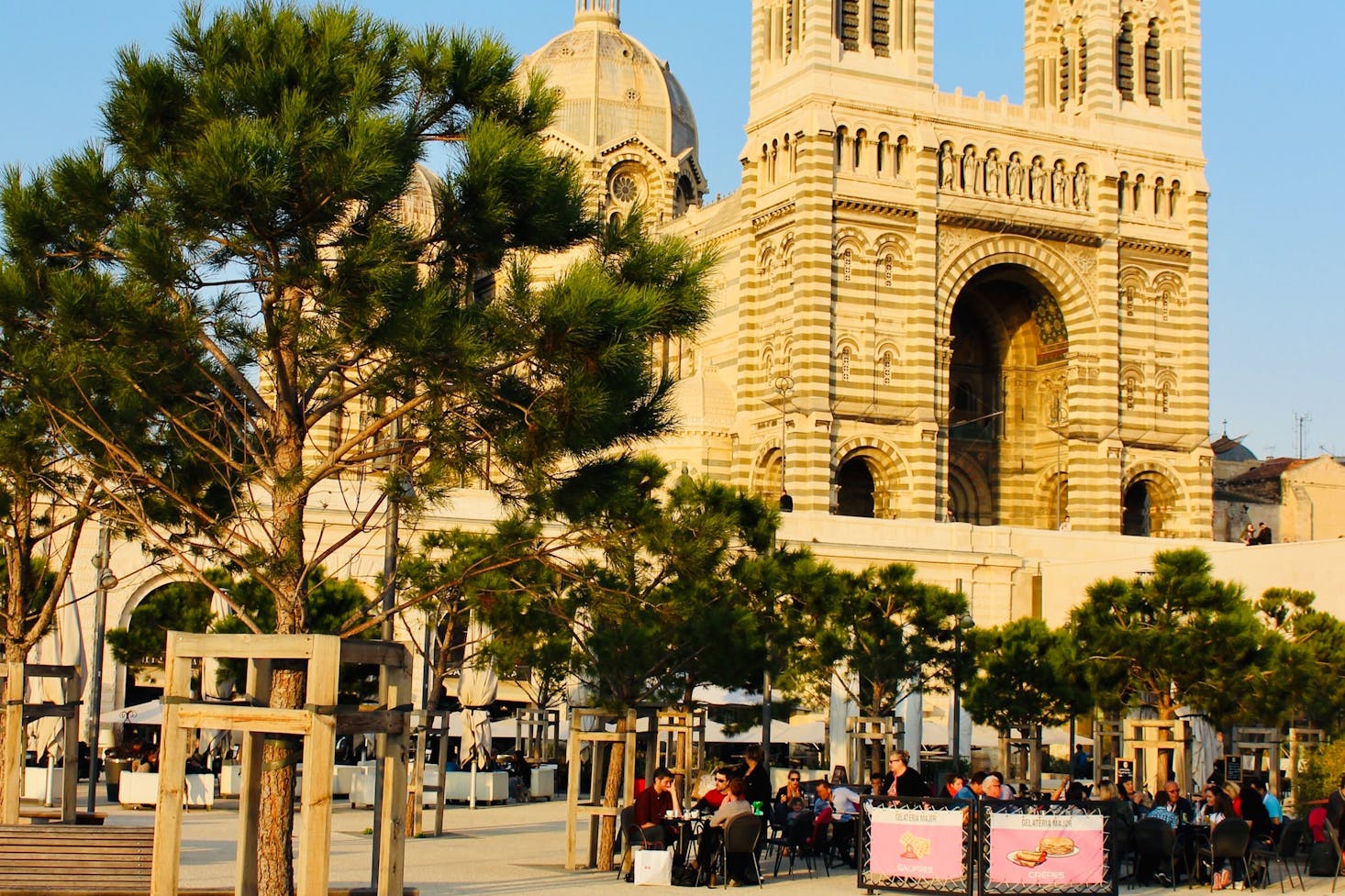
Founded in 600 BC by the Greeks, Marseille (also spelled Marseilles) is the oldest city in France, brimming with artistic, cultural, and architectural treasures. It is the country’s second-largest city, with more than 800,000 people, and receives ten million tourists each year. It is also the leading cruise port in France, with the port area welcoming one million cruise passengers annually.
Visiting Marseille is a dream come true for many, as it boasts numerous ancient landmarks and hidden gems awaiting discovery. The bustling Vieux Port is a must-visit for tourists, found at the end of the Canebière, a major shopping street in the city. While this port city is an ideal destination year-round, its busiest time is between June and August, with beach events and parties on the sand.
With virtually endless things to do and sights to see, it’s easy to get lost while discovering this big city. To lighten your load and enhance security, leave your bags with Bounce luggage storage in Marseille .
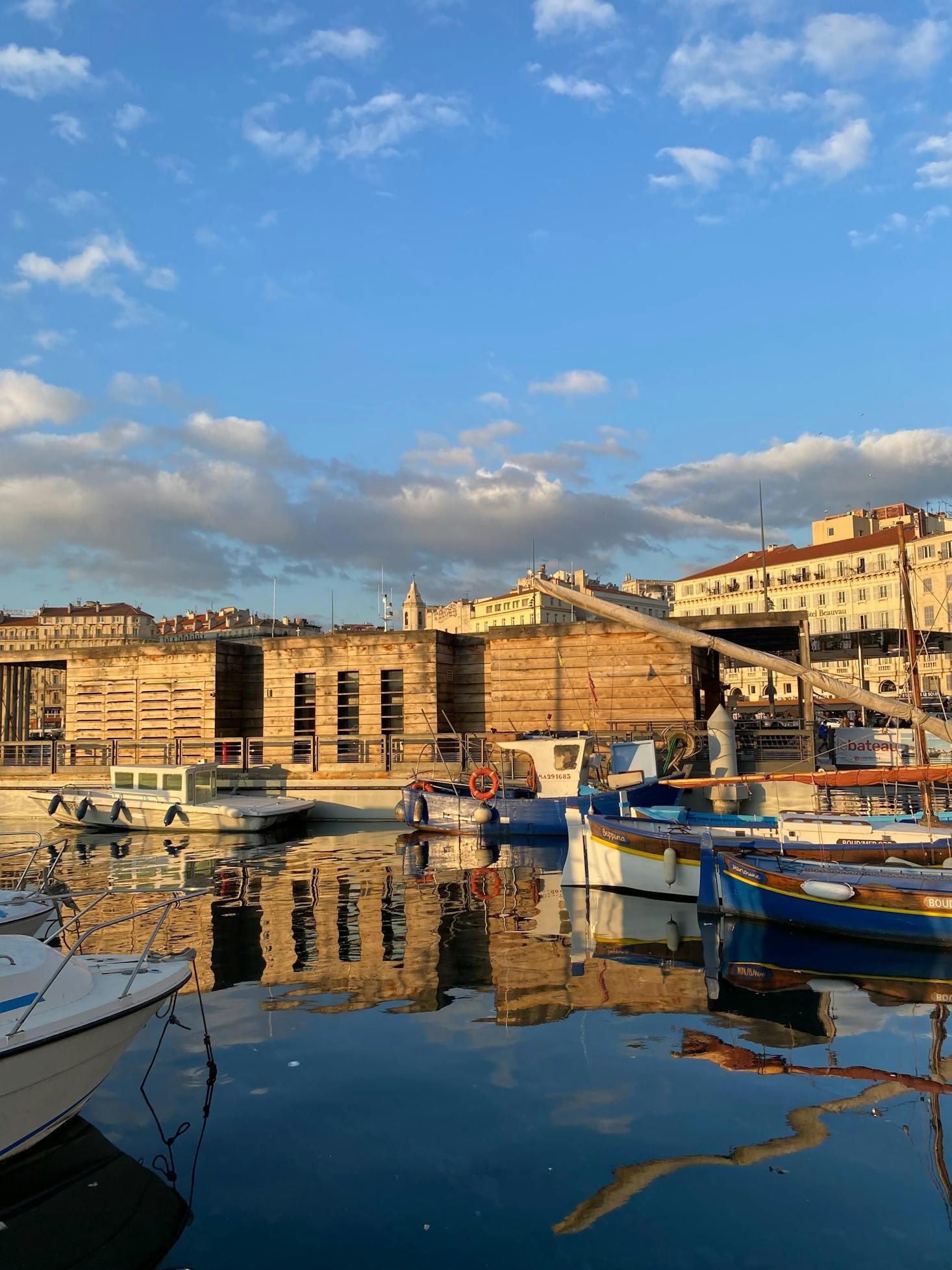
Is Marseille safe to visit right now?
Marseille does have a rough past, but it strives to change for the better. If you have qualms about going to this dynamic city, have no fear because Marseille is safe for tourists.
France’s state of peace remains high, with a Global Peace Index of 1.87, and as one of its major cities, it’s fair to say that Marseille is a peaceful destination worth your time. Its neighborhoods have distinct characteristics and culture, rugged scenery, and lively street art.
However, keep an eye out for petty thieves and scammers in bars, restaurants, and crowded areas.
We will do our best to present up-to-date safety tips and information, but you should always be mindful of your belongings and exercise a high degree of caution, especially if it's your first trip to Marseille. We also recommend that you read your government’s travel notice and advice for the city or country you plan to visit before booking your flight, regardless of whether you’re a seasoned traveler.
Top petty crimes and scams in Marseille affecting tourists
Although violent crimes are rare in Marseille, petty crimes and scams can occur. By educating yourself, being vigilant, and exercising common sense, you can reduce your exposure to threats during your trip. Below are the typical safety issues you might have to deal with in Marseille and ways to protect yourself and your belongings.
Pickpocketing and purse snatching
There’s a low to medium risk for pickpocketing in Marseille, with inattentive tourists becoming the main targets of thieves.
So beware of your surroundings, especially when spending time in crowded areas or taking the train or bus. Never leave your valuables or bag unattended—secure them in a Bounce luggage facility.
Scams and frauds
There are different scams and fraudulent behaviors in big cities like Marseille. The gold ring scam is an old trick but can still occur in any major tourist hub. It is when someone pretends to find a gold ring on the ground and offers it to you, then demands payment as a finder’s fee. There’s also the “free” charms scam, which, aren't exactly free. Someone will offer a gift—a bracelet, a rose, or anything—then ask for money.
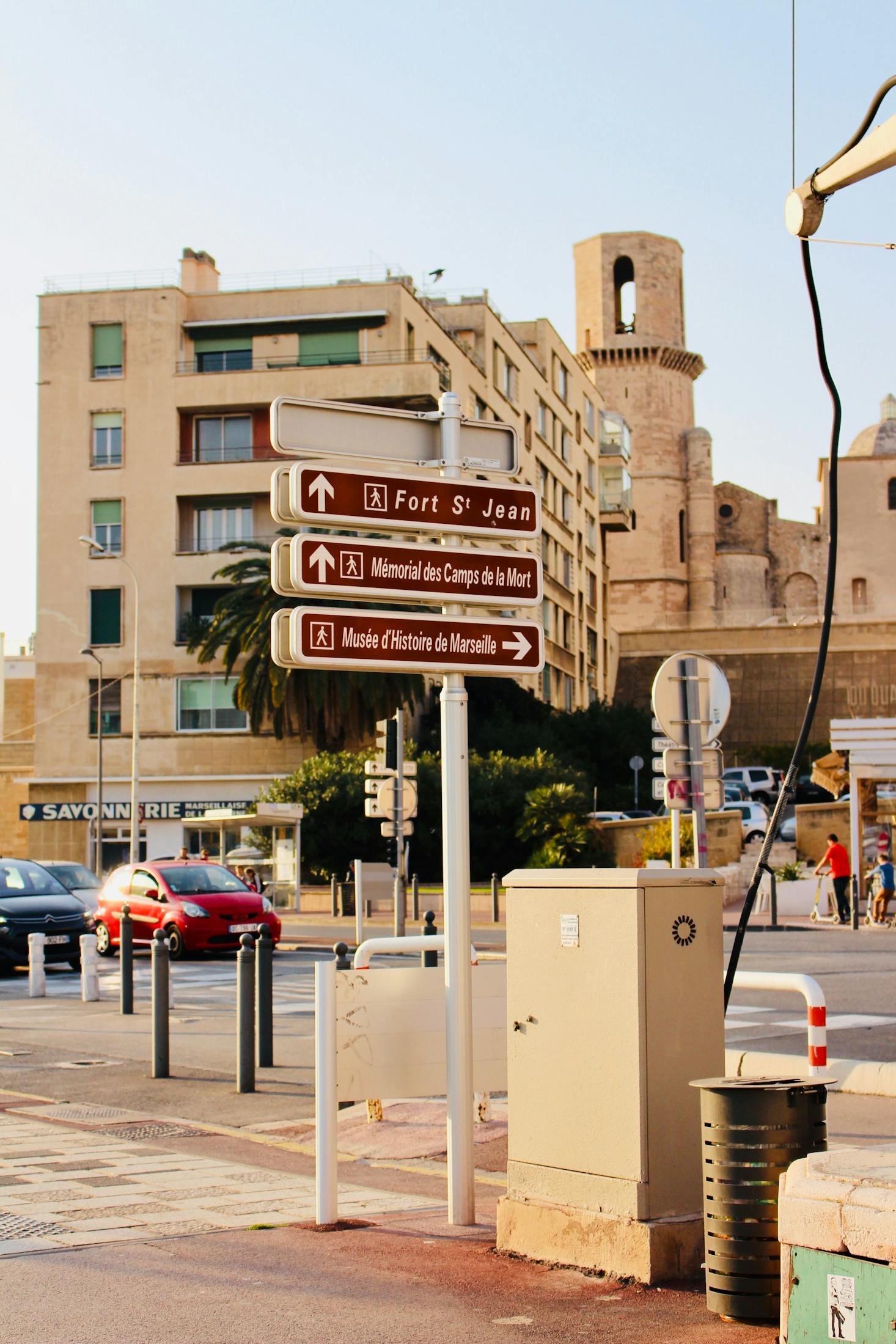
Is Marseille safe to travel alone
About 65 percent of women feel safe walking alone at night in France, and locals and visitors who have enjoyed Marseille’s offerings will tell you that it’s a safe city to visit on your own. Marseille is a welcoming major city, safe for lone travelers and solo female vacationers. The Bounce Women Travel Safety Index places France 14th on its list of best female travel safety destinations, so feel at ease here using common sense and having a terrific time at the popular tourist sites as well as the unique quiet districts.
As with any large city, shady areas are best avoided, and women still have to take extra care of their safety, especially when going out at night. Avoid walking alone after dark, and be alert when strolling the streets.
Safest neighborhoods in Marseille
Marseille is undoubtedly a magical, historic city you should add to your itinerary when traveling to France. It isn’t perfect, but it boasts many peaceful spots, including the scenic Port district. Before booking a hotel room, check out our list of safe Marseille neighborhoods and dangerous areas you’d want to stay away from during your trip:
Considered to be one of the safest Marseille neighborhoods is Le Panier . This lively district is like an open-air museum, with a sight to behold on every corner. You can freely wander around its narrow cobblestone streets, admire the street art, and visit its picturesque squares without being too anxious about what could happen.
Le Panier is also ideal for history lovers, as it’s the oldest neighborhood in Marseille. The must-see attractions in this picturesque district are the Maison Diamantée, Hôtel Dieu , and Vieille Charité . You may also want to check out its famed squares, Place de Lenche, Place des Moulins, and Place de Lorette.
Le Vieux Port
Another safe neighborhood in Marseille is the Le Vieux Port or the Old Port of Town. Le Vieux Port district has it all: museums, cafés, markets, and historical buildings. You can also take a relaxing stroll on its streets and experience what makes it the social and cultural center of Marseille. It’s a beloved city destination for its proximity to many main tourist attractions.
La Corniche
If you want a safe and quiet vacation in Marseille, La Corniche is the place to go. This neighborhood is famous for its beaches, architecture, and stunning views. It’s ideal for visitors who want to go for a leisurely stroll away from the hustle-bustle of the city. Its dining options may be limited, but what you can get there is sure of excellent quality.
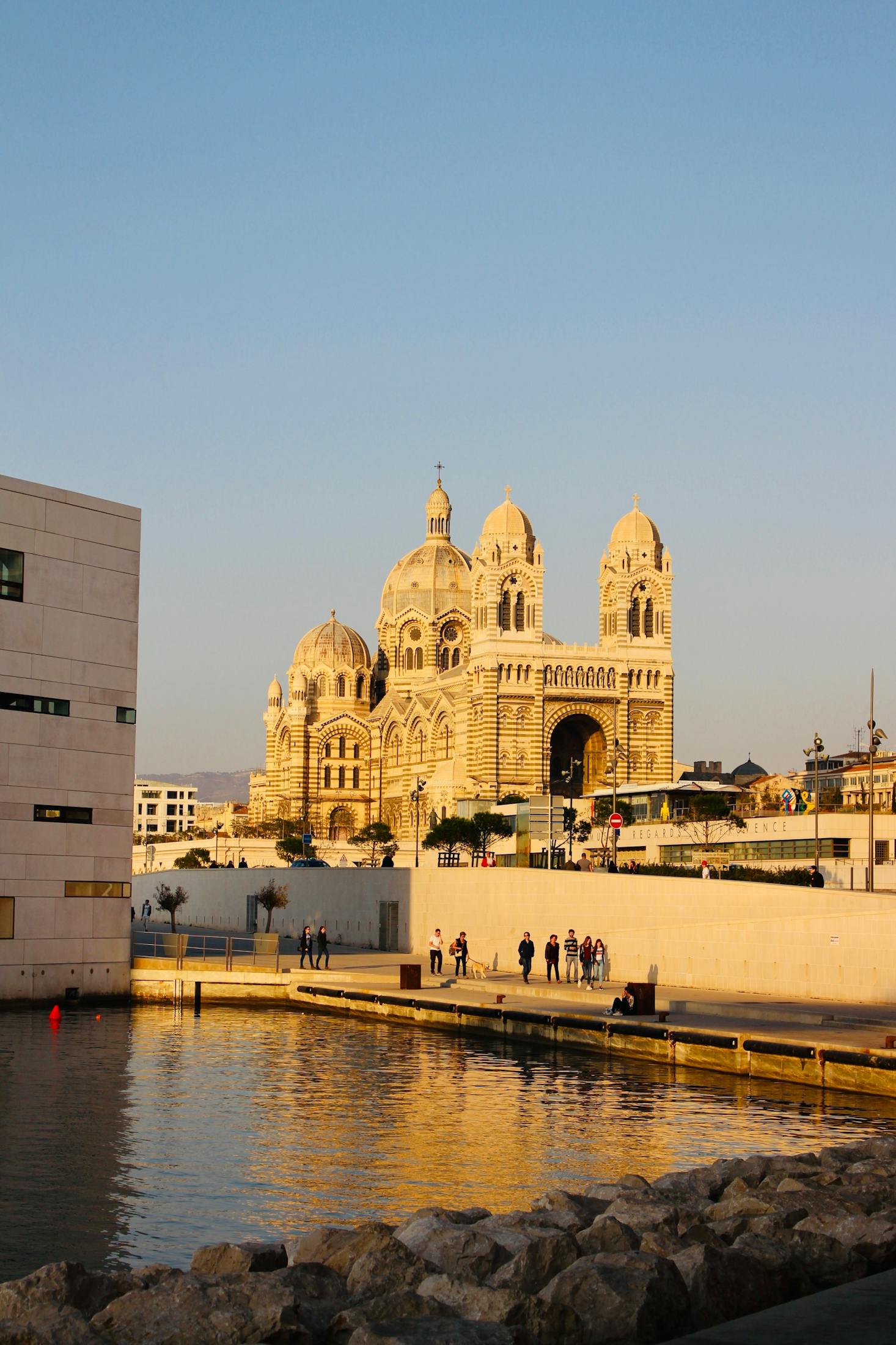
Is Marseille public transportation safe?
In general, there’s no significant risk with public transit in Marseille. Its law enforcement agencies are effective, though the city is still not 100% safe, as with other places worldwide. The most common transportation option is the train, although taking a taxi is safer when traveling at night since most subways are usually dim-lit.
Consider renting a car to make it easier for you to go around. Parking can be very tricky to find throughout the city. Remember to lock the doors and windows and not leave your valuables in plain sight and unattended inside. As a note when driving, the use of mobile phones with earpieces or headsets is forbidden.
Important emergency numbers in Marseille
You’ll never know when you’ll face a, so it’s important to keep emergency numbers during your trip so you can call the proper authorities immediately. Also, be aware of your embassy number when traveling.
- France country code: +33
- Medical Emergencies: 15
- Fire Services: 18
- European Emergencies: 112
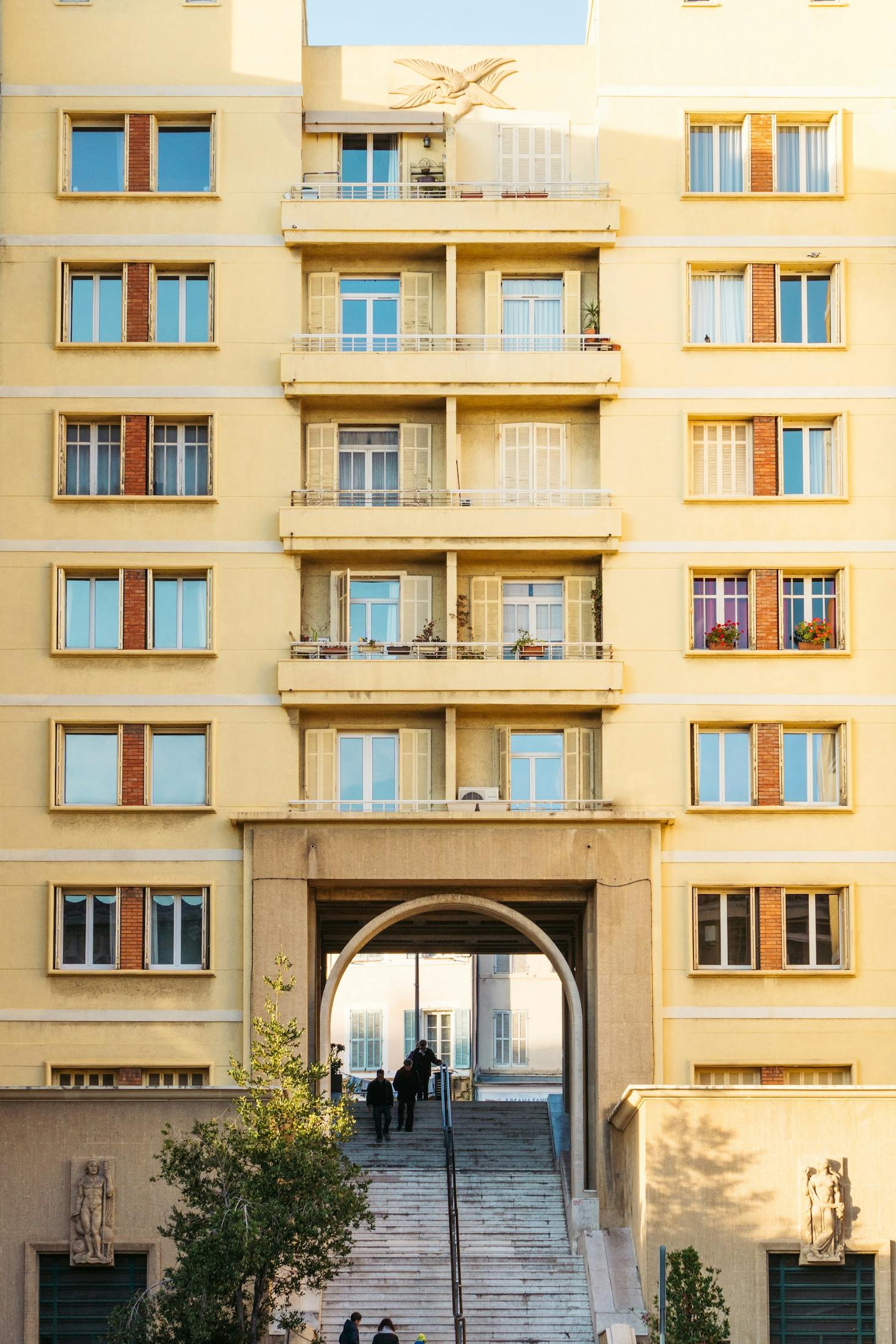
Prepare for a safe trip to Marseille
Thankfully, having a safe trip to Marseille is possible with proper planning and following safety travel tips. We know you'll admire the pretty Provencal facades, the Panier District, and lively places in the city where cafes and restaurants are waiting to be enjoyed. Knowing How to Get Around Marseille should also be part of the preparation process, and if you need help finding the best places in the city, read our guide in Where to Stay in Marseille: The Ultimate Guide .
Explore the world

Love discounts and traveling?
Sign up for our newsletter to get insider travel tips and a 10% discount delivered straight to your inbox.
No spam here, just the good stuff.
Get the Bounce app
Instantly find locations nearby to drop off your luggage wherever you go.
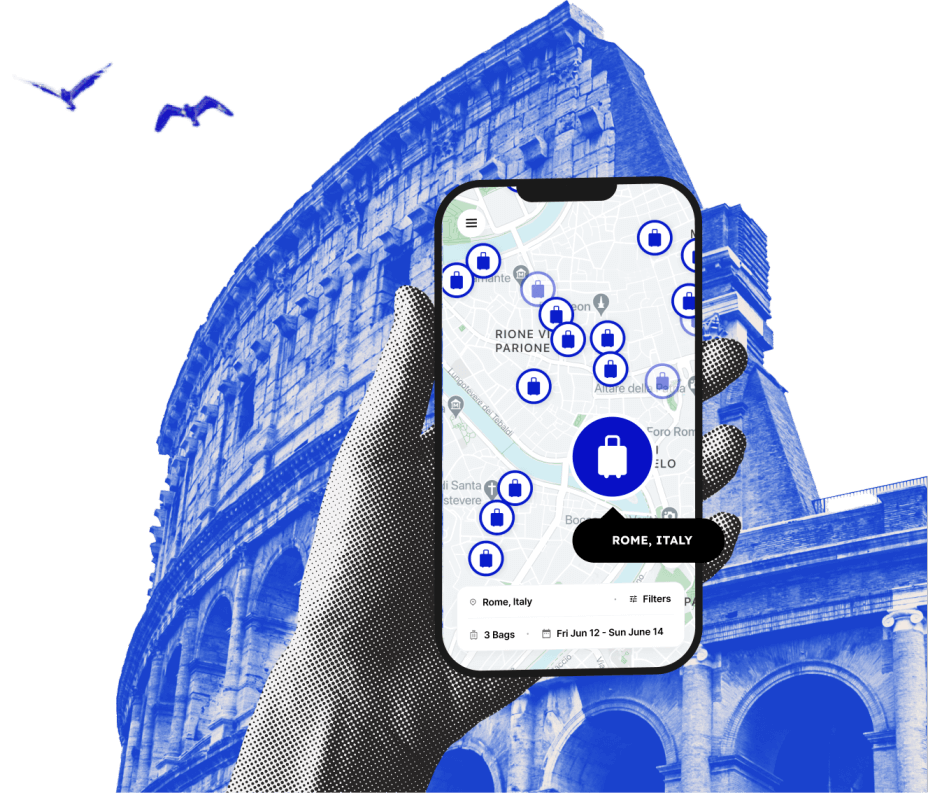
Update April 12, 2024
Information for u.s. citizens in the middle east.
- Travel Advisories |
- Contact Us |
- MyTravelGov |
Find U.S. Embassies & Consulates
Travel.state.gov, congressional liaison, special issuance agency, u.s. passports, international travel, intercountry adoption, international parental child abduction, records and authentications, popular links, travel advisories, mytravelgov, stay connected, legal resources, legal information, info for u.s. law enforcement, replace or certify documents.
Before You Go
Learn About Your Destination
While Abroad
Emergencies
Share this page:
Travel Advisory July 26, 2023
France - level 2: exercise increased caution.
Reissued with obsolete COVID-19 page links removed.
Exercise increased caution in France due to terrorism and civil unrest .
Country Summary: Terrorist groups continue plotting possible attacks in France. Terrorists may attack with little or no warning, targeting tourist locations, transportation hubs, markets/shopping malls, local government facilities, hotels, clubs, restaurants, places of worship, parks, major sporting and cultural events, educational institutions, airports, and other public areas.
Incidents such as pickpocketing and phone snatchings occur frequently and can happen anywhere, especially in crowded areas such as airports, train stations, subway and train cars, and near tourist attractions.
Peaceful demonstrations and strikes in Paris and other cities throughout France occur regularly and can disrupt transportation. On rare occasions, demonstrations have included violence and property damage and police have responded with water cannons and tear gas.
Read the country information page for additional information on travel to France.
If you decide to travel to France:
- Be aware of your surroundings when traveling to tourist locations and large crowded public venues.
- Avoid demonstrations and areas with significant police activity.
- Follow the instructions of local authorities including movement restrictions related to any ongoing police action.
- Find a safe location and shelter in place if unable to leave the vicinity of a demonstration.
- Monitor local media for breaking events and adjust your plans based on new information.
- Enroll in the Smart Traveler Enrollment Program ( STEP ) to receive Alerts and make it easier to locate you in an emergency.
- Follow the Department of State on Facebook and Twitter .
- Review the Country Security Report for France.
- Visit the CDC page for the latest Travel Health Information related to your travel.
- Prepare a contingency plan for emergency situations. Review the Traveler’s Checklist .
Embassy Messages
View Alerts and Messages Archive
Quick Facts
At least three months beyond date of departure from the Schengen area. The 12-page U.S. emergency passport is not valid for visa-free entry into France.
Must have at least one blank page for stamps
Not required for stays under 90 days
10,000 Euros Max
Embassies and Consulates
U.S. Embassy Paris 2 Avenue Gabriel 75008 Paris, France Telephone: +(33)(1) 43-12-22-22 Emergency After-Hours Telephone: +(33)(1) 43-12-22-22, enter zero “0” after the automated greeting Fax: +(33)(1) 42-61-61-40 (Special Consular Services) [email protected]
Only the consular sections in Paris and Marseille are authorized to issue passports. The other offices provide limited services to U.S. citizens.
U.S. Consulate General Marseille Place Varian Fry 13286 Marseille Cedex 6 France Telephone: +(33)(1) 43-12-47-54 Emergency After-Hours Telephone: +(33)(1) 43-12-22-22 [email protected]
U.S. Consulate General Strasbourg 15, Avenue d'Alsace 67082 Strasbourg Cedex France Telephone: +(33)(1) 43-12-48-80 Emergency After-Hours Telephone: +(33)(1) 43-12-22-22 Fax: (33)(3) 88-24-06-95 [email protected]
When calling from within France, drop the country code and add a zero. For example: +(33)(1) 43-12-22-22 becomes 01-43-12-22-22.
Please note that the emergency after-hours telephone number for all U.S. posts in France is: +(33)(1) 43-12-22-22 . Ask to speak to the duty officer if you need emergency assistance after business hours.
Destination Description
Learn about the U.S. relationship to countries around the world.
Entry, Exit and Visa Requirements
Visit the Embassy of France website for the most current visa and entry requirement information.
The Government of France does not recognize the 12-page U.S. emergency passport, issued by U.S. embassies and consulates overseas, as a valid travel document for visa-free entry into France. If traveling on this emergency passport, you may be refused boarding and/or entry by immigration officials and/or held at the airport until a return flight to the U.S. is available. Direct transit through France for another destination accepting an emergency passport may be permitted. You should check entry requirements of any other country of destination to make sure the emergency passport is accepted for entry.
You may enter the Schengen area, including France, for up to 90 days for tourist and business purposes without a visa.
Immigration officers may also request you show sufficient funds for your intended stay and a return airline ticket.
If you are traveling to France or Monaco for reasons other than business or tourism, such as employment (including diplomatic or official travel), study, or internship, you must obtain the appropriate French or Monegasque (Monaco) visa for that purpose before you leave the United States. You should be aware that it is nearly impossible to obtain or change visa status while in France.
All minors (under age 18) traveling without a parent or legal guardian and who are residents in France must have the written consent of at least one parent or legal guardian to leave France. The minor must travel with his or her own I.D., a copy of the parent/guardian’s I.D., and form number 15646*01, executed by the parent/guardian and available here .
If you are transiting through France to South Africa, there are special requirements for minors. See Entry, Exit and Visa Requirements for South Africa for additional information.
Contact the French Embassy in Washington at 4101 Reservoir Road NW, Washington, DC 20007, tel. (202) 944 6000, or one of the French Consulates General in Atlanta, Boston, Chicago, Houston, Los Angeles, Miami, New Orleans, New York, or San Francisco for the most current visa information.
Special Note: Overseas departments and territories of France (i.e. those not located in Europe) are not included in the Schengen Agreement. Please see Country Specific Information on French Guiana , French Polynesia , and the French West Indies for entry and exit requirements. For other departments and territories, visit the Embassy of France website for the most current visa and entry requirement information for those areas.
Monaco: For further information on entry requirements to Monaco, travelers may contact the Embassy of the Principality of Monaco , 888 17th Street NW, Suite 500, Washington D.C. 20006, Tel: (202) 234-1530, Email: [email protected] ; or the Consulate General of Monaco, 565 Fifth Avenue – 23rd floor, New York, NY 10017, Tel: (212) 286-0500, Email: [email protected] .
Traveling Through Europe : If you are planning to visit or travel through European countries, you should be familiar with the requirements of the Schengen Agreement.
- Your passport should be valid for at least three months beyond the period of stay if you plan on transiting a Schengen country. Please review our U.S. Travelers in Europe page. We recommend that your passport have at least six months’ validity remaining.
- You will need s ufficient proof of funds and a return plane ticket .
- For additional information about visas for the Schengen area, see the Schengen Visa page.
HIV/AIDS Restrictions: The U.S. Department of State is unaware of any HIV/AIDS entry restrictions for visitors to or foreign residents of France.
Find information about dual nationality , prevention of international child abduction and customs regulations on our websites.
Safety and Security
Terrorism: Terrorist groups and those inspired by such organizations are intent on attacking U.S. citizens abroad. Terrorists are increasingly using less sophisticated methods of attack – including knives, firearms, and vehicles – to more effectively target crowds. Frequently, their aim is unprotected or vulnerable targets, such as:
- High-profile public events (sporting contests, political rallies, demonstrations, holiday events, celebratory gatherings, etc.)
- Hotels, clubs, and restaurants frequented by tourists
- Places of worship
- Shopping malls and markets
- Public transportation systems (including subways, buses, trains, and scheduled commercial flights)
For more information, see our Terrorism page.
French authorities have spoken publicly about the heightened threat conditions for terrorist attacks in Europe.
A counterterrorism law enacted in 2017 allows the government to prevent the circulation of individuals and to create zones of protection and security.
The French government has temporarily reestablished border controls at its borders with its Schengen neighbors and movement may be restricted in some areas. Border controls with the United Kingdom, including the Channel Tunnel crossing, have also been reestablished following Brexit.
The Government of France routinely conducts security and crisis management drills involving deployment of security forces, emergency services, and police to high profile areas that may be near popular tourist sites. U.S. citizens should be aware of the possibility of drills and should heed instructions of local authorities should they encounter them.
French police and military routinely patrol public spaces. You should expect security inspections (to include purses, bags, and backpacks) at the entrance to large public venues and businesses.
When traveling or living in France, you should:
- Be aware of your local security situation and take appropriate steps to bolster your personal security.
- Monitor media and local information sources like France24 , Radio France International , The Local , and the Paris Travel Information webpage and factor updated information into personal travel plans and activities.
- Address specific safety concerns to French law enforcement authorities who have responsibility for the safety and security of all residents and visitors to France.
- Enroll in the Smart Traveler Enrollment Program ( STEP ) to receive Alerts and make it easier to locate you in an emergency.
Crime: The majority of crimes directed against foreign visitors, including U.S. citizens, involve pick-pocketing (passports, phones, cash, credit cards), vehicle and residential break-ins, bicycle theft, and other forms of theft.
Visitors to congested and popular tourist areas (e.g., museums, monuments, train stations, airports, and subways) should be particularly attentive to their surroundings. Rental cars are frequently targeted for break-ins when visitors exit their vehicles and leave valuables behind.
Crimes of opportunity are more likely to involve violence on the street late at night or when the victim resists.
Exercise extra caution when out alone at night and/or consider traveling out at night with trusted companions.
While the incidence of sexual assault is statistically low, attacks do occur.
Be aware of “date-rape” drugs, which are present in France. The Embassy has assisted multiple victims who appear to have been targeted using these drugs.
Be cautious in bars and clubs where alcohol is served, and do not leave your drink unattended or accept a drink from strangers, as they may have slipped drugs into the drink.
There are high incidences of “smash and grab” robberies in economically depressed areas or on highly traveled thoroughfares such as roads to and from the airport. Thieves on foot or motorcycle will approach a vehicle that is stopped in traffic, smash a window, reach into the vehicle to grab a purse or other valuable item, and then flee. Keep doors locked and valuables out of sight.
See our travel tips for Women Travelers .
Demonstrations occur frequently. They may take place in response to political or economic issues, on politically significant holidays, and during international events.
- Demonstrations can be unpredictable, avoid areas around protests and demonstrations.
- Past demonstrations have turned violent.
- Check local media for updates and traffic advisories.
- Strikes can interfere with travel plans and increase expenses of traveling to France.
Demonstration organizers must obtain prior police approval, and police routinely oversee participants. In case of violence or property damage, French authorities may use chemical agents and water cannons to disperse crowds.
Alerts issued regarding demonstrations are posted on the U.S. Mission’s website .
International Financial Scams: See the Department of State and the FBI pages for information.
Victims of Crime: Report crimes to the local police by dialing 112 (the European emergency number which has some English-speaking staff) or 17 from a landline or cell phone and contact the U.S. Embassy Paris at +(33)(1) 43-12-22-22. French authorities do not generally speak English and communication may be difficult. Remember that local authorities are responsible for investigating and prosecuting crime.
See our webpage on help for U.S. victims of crime overseas .
- help you find appropriate medical care
- assist you in reporting a crime to the police
- contact relatives or friends with your written consent
- provide general information regarding the victim’s role during the local investigation and following its conclusion
- provide a list of local attorneys
- provide information on victim’s compensation programs in the U.S.
- provide the Paris Police Prefecture pamphlet in English
- provide an emergency loan for repatriation to the United States and/or limited medical support in cases of destitution
- help you find accommodation and arrange flights home
- replace a stolen or lost passport .
- provide you with information regarding victims’ assistance groups in France
Domestic Violence: U.S. citizen victims of domestic violence are encouraged to contact the Embassy for assistance.
Tourism: The tourism industry is generally regulated and rules with regard to best practices and safety inspections are regularly enforced. Hazardous areas/activities are identified with appropriate signage and professional staff is typically on hand in support of organized activities. In the event of an injury, appropriate medical treatment is widely available throughout the country. Outside of a major metropolitan center, it may take more time for first responders and medical professionals to stabilize a patient and provide life-saving assistance. U.S. citizens are encouraged to purchase medical evacuation insurance .
Local Laws & Special Circumstances
Criminal Penalties: You are subject to local laws. If you violate local laws, even unknowingly, you may be expelled, arrested, or imprisoned. Individuals establishing a business or practicing a profession that requires additional permits or licensing should seek information from the competent local authorities, prior to practicing or operating a business.
Furthermore, some laws are also prosecutable in the U.S., regardless of local law. For examples, see our website on crimes against minors abroad and the Department of Justice website.
Arrest Notification: If you are arrested or detained, ask police or prison officials to notify the U.S. Embassy immediately. French authorities will not routinely notify the Embassy unless you request them to do so. See our webpage for further information.
Penalties for possessing, using, or trafficking in illegal drugs in France are severe.
Convicted offenders can expect long jail sentences and heavy fines.
In France and Monaco, driving under the influence of drugs or alcohol could land you immediately in jail.
Flying Drones: The use of drones and drone footage in France is highly regulated. It is against the law in France to operate drones over public spaces (including museums, parks, streets) in urban areas and near airports, military bases, prisons, nuclear plants, and large gatherings such as outdoor concerts and parades. The privacy of individuals captured in drone footage is paramount. Violators can be arrested and subject to fines of up to 75,000 euros and/or one-year imprisonment. Review the information sheet provided by the French government concerning hobbyist drone flights.
You should contact the Embassy of France or one of France's consulates in the United States for specific information regarding customs requirements. Please see our Customs Information .
There are strict regulations concerning temporary importation or exportation from France of items such as firearms, antiquities, medications, business equipment, merchandise samples, and other items.
French Foreign Legion: U.S. citizens interested in joining the French Foreign Legion (FFL) should be aware that the cognitive and physical tests for acceptance are extremely challenging.
Ensure you have access to sufficient funds to return home should your candidature be refused.
Successful candidates report that the FFL provides a new identity and retains their U.S. passport during a long probation period. Lack of access to your passport can complicate routine or emergency travel.
Faith-Based Travelers: See our following webpages for details:
Faith-Based Travel Information
International Religious Freedom Report – see country reports
Human Rights Report – see country reports
Hajj Fact Sheet for Travelers
Best Practices for Volunteering Abroad
LGBTI Travelers: There are no legal restrictions on same-sex sexual relations or the organization of LGBTQI+ events in France.
See our LGBTQI+ travel information page and section 6 of the Department of State's Human Rights report for further details.
Travelers with Disabilities: The law in France prohibits discrimination against persons with physical, sensory, intellectual or mental disabilities, and the law is enforced. Social acceptance of persons with disabilities in public is as prevalent as in the United States. Expect accessibility to be limited in public transportation and general infrastructure.
Visitors to France should expect accessibility to be limited in public transportation (subway, specifically), lodging, communication/information, and general infrastructure. Getting around French cities can be challenging for those with mobility issues. Many sidewalks are narrow and uneven, and cobblestone streets make access difficult, though major tourist sites generally have better facilities.
Although the Paris Metro is a very efficient method for traveling throughout central Paris, most stations are not readily accessible for people with disabilities. However, many Parisian buses and tramways are equipped with lowering platforms for travelers with limited-mobility, or sight- or hearing-disabled. Taxis are also a good mode of transportation.
The English-language Paris Visitors Bureau and Explore France websites contains additional information specifically designed for travelers with special mobility needs. For further information, e-mail U.S. Embassy Paris , U.S. Consulate General Marseille , or U.S. Consulate General Strasbourg .
Students: See our Students Abroad page and FBI travel tips .
Women Travelers: See our travel tips for Women Travelers .
Dial 15 to connect to emergency medical services or dial 112 to reach an operator.
Ambulance services are widely available, though English is not widely spoken.
Medical care is comparable to that found in the United States.
Except for emergency services, you may be required to pay for service prior to receiving treatment in France. Be sure to obtain a “Feuille de Soins” for later reimbursement from your health care provider.
You may be refused routine care under local law if you lack the ability to pay.
Foreigners with terminal illnesses may be denied treatment if treatment is available in their home country.
We do not pay medical bills. Be aware that U.S. Medicare/Medicaid does not apply overseas. Most hospitals and doctors overseas do not accept U.S. health insurance. Hospital bills are not itemized.
Medical Insurance: Make sure your health insurance plan provides coverage overseas. Most care providers overseas only accept cash payments. See our webpage for more information on insurance coverage overseas. Visit the U.S. Centers for Disease Control and Prevention for more information on the type of insurance you should consider before you travel overseas.
We strongly recommend supplemental insurance to cover medical evacuation.
Always carry your prescription medication in original packaging with your doctor’s prescription. Check with the government of France to ensure the medication is legal in France.
Vaccinations: Be up-to-date on all vaccinations recommended by the U.S. Centers for Disease Control and Prevention.
Further health information:
- World Health Organization
- U.S. Centers for Disease Control and Prevention (CDC)
Air Quality: Visit AirNow Department of State for information on air quality at U.S. Embassies and Consulates.
The U.S. Embassy maintains a list of doctors and hospitals . We do not endorse or recommend any specific medical provider or clinic.
Travel and Transportation
Road Conditions and Safety: Roads are generally comparable to those in the United States, but traffic engineering and driving habits pose special dangers.
Lane markings and sign placements may not be clear. Drivers should be prepared to make last-minute maneuvers.
Right-of-way rules differ from those in the United States. Unless specifically indicated otherwise, drivers entering intersections from the right have priority over those on the left, even when entering relatively large boulevards from small side streets.
Bicycles, motorcycles, scooters, and electric skateboards are prevalent on streets, crosswalks and sometimes sidewalks. They have legal priority and often do not respect traffic signals.
On major highways, there are service stations at least every 25 miles. Service stations are not as common on secondary roads in France as they are in the United States.
Highway toll stations may not accept U.S. credit cards. For non-residents, the simplest way to pay is with cash euros at the toll lane marked for that purpose. Do not attempt to use a credit card if it is the only one you have in your possession in case the machine does not return your card.
Traffic Laws: While French cities actively encourage bicycle rentals through widely available city-sponsored systems, you should be cautious, especially in a busy and unfamiliar urban environment. Helmets are neither required nor readily available near rental stations. If you plan to ride a bicycle in France, you should bring your own helmet. Though bicycles, scooters and electric skateboards must follow local traffic laws, or risk fines, they often do not do so and can pose a danger to drivers and pedestrians. Many paths are clearly marked for this form of transportation in larger cities.
Pedestrian accidents occur when a pedestrian steps out into the street, often when a car or motorcycle is making a turn through a pedestrian crosswalk. Pedestrians should be cautious and aware of traffic even when they have a green walking signal since this is no guarantee against aggressive drivers. Do not assume cars will stop for pedestrians in a crosswalk.
Public Transportation: Paris has an extensive and efficient public transportation system. The interconnecting system of buses, subways, and commuter rails is comparable to or better than that found in major U.S. cities. Similar transportation systems are found in all major French cities.
If you use any of France’s public transportation services, take particular care to retain your used or “validated” ticket until you exit the bus, subway, or train station completely, as it may be checked or required for exit. Children over four years of age must have a ticket.
Inspectors conduct intermittent, random checks and passengers who fail to present the correct validated ticket are subject to stiff and immediate fines. Failing to sign and date or enclose photo (when required) on a tourist pass (Paris Visite) makes the pass invalid and the holder subject to a fine.
Inspectors may show no interest in explanations and no sympathy for an honest mistake. Failure to cooperate with inspectors may result in arrest.
Between cities, France has extensive rail service, which is safe and reliable. High-speed rail connects the major cities in France. Many cities are also served by frequent air service. Traveling by train is safer than driving.
See our road safety page for more information. Visit the website of the French National Tourist Office for specific information on French driver's permits, vehicle inspection, road tax, and mandatory insurance. See Embassy of France’s driving in France webpage for information on using U.S. driver’s licenses in France.
Aviation Safety Oversight: The U.S. Federal Aviation Administration (FAA) has assessed the government of France’s Civil Aviation Authority as being in compliance with International Civil Aviation Organization (ICAO) aviation safety standards for oversight of France’s air carrier operations. Further information may be found on the FAA’s safety assessment page .
Maritime Travel: Mariners planning travel to France should also check for U.S. maritime advisories and alerts . Information may also be posted to the U.S. Coast Guard homeport website , and the NGA broadcast warnings website (select “broadcast warnings.”)
For additional travel information
- Enroll in the Smart Traveler Enrollment Program (STEP) to receive security messages and make it easier to locate you in an emergency.
- Call us in Washington, D.C. at 1-888-407-4747 (toll-free in the United States and Canada) or 1-202-501-4444 (from all other countries) from 8:00 a.m. to 8:00 p.m., Eastern Standard Time, Monday through Friday (except U.S. federal holidays).
- See the State Department’s travel website for the Worldwide Caution and Travel Advisories .
- Follow us on Twitter and Facebook .
- See traveling safely abroad for useful travel tips.
Review information about International Parental Child Abduction in France . For additional IPCA-related information, please see the International Child Abduction Prevention and Return Act ( ICAPRA ) report.
Travel Advisory Levels
Assistance for u.s. citizens, learn about your destination, enroll in step.

Subscribe to get up-to-date safety and security information and help us reach you in an emergency abroad.
Recommended Web Browsers: Microsoft Edge or Google Chrome.
Check passport expiration dates carefully for all travelers! Children’s passports are issued for 5 years, adult passports for 10 years.
Afghanistan
Antigua and Barbuda
Bonaire, Sint Eustatius, and Saba
Bosnia and Herzegovina
British Virgin Islands
Burkina Faso
Burma (Myanmar)
Cayman Islands
Central African Republic
Cote d Ivoire
Curaçao
Czech Republic
Democratic Republic of the Congo
Dominican Republic
El Salvador
Equatorial Guinea
Eswatini (Swaziland)
Falkland Islands
France (includes Monaco)
French Guiana
French Polynesia
French West Indies
Guadeloupe, Martinique, Saint Martin, and Saint Barthélemy (French West Indies)
Guinea-Bissau
Isle of Man
Israel, The West Bank and Gaza
Liechtenstein
Marshall Islands
Netherlands
New Caledonia
New Zealand
North Korea (Democratic People's Republic of Korea)
Papua New Guinea
Philippines
Republic of North Macedonia
Republic of the Congo
Saint Kitts and Nevis
Saint Lucia
Saint Vincent and the Grenadines
Sao Tome and Principe
Saudi Arabia
Sierra Leone
Sint Maarten
Solomon Islands
South Africa
South Korea
South Sudan
Switzerland
The Bahamas
Timor-Leste
Trinidad and Tobago
Turkmenistan
Turks and Caicos Islands
United Arab Emirates
United Kingdom
Vatican City (Holy See)
External Link
You are about to leave travel.state.gov for an external website that is not maintained by the U.S. Department of State.
Links to external websites are provided as a convenience and should not be construed as an endorsement by the U.S. Department of State of the views or products contained therein. If you wish to remain on travel.state.gov, click the "cancel" message.
You are about to visit:
Is Marseille Safe for Travel?
Marseille is a safe place to visit—with a little know-how. Locals helped us put together this guide to staying safe in Marseille, which covers everything from COVID to tips for solo travelers.
Work with a local to build your trip to Marseille. Our locals offer up-to-date information you might not find online—and tips on how to avoid crowds. Learn more .
Table of Contents
Marseille, france, and the covid pandemic, safety in marseille, common scams in marseille.
- Tips for solo travelers in Marseille
Important French phrases
Emergency numbers to know.
Wondering whether Marseille is a safe place to visit during COVID? Or if Americans can travel to France right now? We’ve got good news: travel in France right now is similar to how it was before the pandemic.
Vaccinated and unvaccinated travelers can visit France for vacation (although the CDC recommends getting vaccinated before travel ). Negative COVID tests are no longer required for Americans to enter the country. And the government does not currently have a mask mandate either. But masking is still recommended on public transit and indoors in public.
There’s one exception effective January 5, 2023 : if you are traveling from China you will need a negative COVID test and will be required to mask on planes and public transportation.
Travelers simply need to follow whatever local rules are in place, including masking where required.
Because these rules continue to change as the status of the pandemic changes, we recommend connecting with a local for on-the-ground information.
Is Marseille safe? Anthony Bourdain once noted that Marseille is a “victim of bad reputation.” Many are quick to dismiss Marseille as too dangerous to visit.
But locals tell us that Marseille is safe—as long as you follow a few precautions. The second-largest city in France , Marseille offers visitors excellent cuisine, ocean views, and a fantastic mix of cultures.
It’s a wonderful place to visit in France if you’re looking to get off the beaten path while still enjoying a big, dynamic city.
Although France is a safe destination , locals tell us you may encounter scammers and pickpockets—especially in big cities like Marseille. Common scams in France include:
- Rigged ATMs : If you withdraw money from an ATM, try to do so from within or directly outside a bank. ATMs in high-traffic areas might be dangerous to use.
- Fake petitions : You may be approached by someone asking you to sign a petition. It’s best to refuse and walk away. Many petitions are fake. Scammers will ask for money or use your momentary distraction to pick your pockets.
- Gold ring scam : In this scam, someone will pretend to find a gold ring on the ground. They’ll offer it to you, then demand payment as a finder’s fee.
- “Free” charms scam : Basically anytime anyone approaches you with a gift—a rose, a bracelet, or anything else—be on your guard. It’s likely a scam, and they will ask for money.
- Pickpockets : Be vigilant. Keep an eye on your belongings—especially you are in a crowd. Make a copy of your passport to carry, don’t flash valuables, and avoid putting your wallet in a back pocket.
Be on your guard, use common sense, and trust your instincts if something feels off. Locals note that these scams can occur throughout France, so keep them in mind whether you’re traveling to Paris or Marseille.
What solo travelers in Marseille should know
Locals in France tell us that Marseille is safe for solo travelers—but you should definitely keep some things in mind. They suggest:
- Avoid taking the metro at night . Although transportation in France is generally quite safe, it’s often faster and safer to just call a cab.
- Ignore the cat-callers . Women traveling alone might get unwanted attention from men. If this happens, ignore it—like you would at home. If you feel unsafe, duck into a store or restaurant.
- Keep an eye on your drink . If someone offers to buy you a drink, be sure you see it made.
For personalized advice on how to explore Marseille as a solo traveler, work with a local to plan your trip. It’s like having a best friend in France—but you can still explore on your own.
No matter where you go in France , it’s good to know a few phrases. Locals tell us that these are some good ones to keep in mind:
- Hello (morning): Bonjour
- Hello (evening): Bonsoir
- Thank you: Merci ( merci beaucoup=thank you very much )
- Please: S'il vous plait
- Excuse me, where is… -Excusez-moi, ou se trouve…?
- I would like... Je voudrais
As a big city, Marseille is a good place to stay in France if you speak no French. People in restaurants and hotels will speak English. However, don’t expect everyone you meet to speak English.
At the very least, locals recommend saying bonjour when you enter a store and si’il vous plait and merci when you order something. The effort is deeply appreciated.
Although it’s unlikely, here are some good numbers to have on hand in case you run into trouble in France—whether you’re in Marseille, Lyon , Paris , or somewhere else:
- Emergency - 112 (European emergency number like 911 in the US)
- Police (24/7) - 17
- Health emergencies - 15
- US Embassy Paris - +(33)(1) 43-12-22-22, enter zero "0" after the automated greeting. Website - U.S. Embassy Paris
- If you work with a local to plan your trip, they'll be available via phone in case you run into any issues
Looking for more info?
Marseille Travel Guide

Courtesy of Deejpilot | Getty Images

Why Go To Marseille
Founded 2,600 years ago as a port city, Marseille – after some years in decline – remains a dazzling metropolis on the Mediterranean, especially after its turn as the European Capital of Culture in 2013. With some of its rough edges polished and even a smattering of new museums and a handful of Michelin-starred restaurants, France's second-largest city is making a comeback.
Its long, vibrant history and its hilly landscape of gritty streets and whitewashed buildings that tumble to the yacht-filled waters also add to its allure, as is the feeling that Marseille is a place where it seems possible to stumble on something secret, something all your own – something not listed in the travel books. But you'd better hurry: The rest of the world seems to be catching on.
Find Flight and Hotel Deals
Navigate forward to interact with the calendar and select a date. Press the question mark key to get the keyboard shortcuts for changing dates.
Navigate backward to interact with the calendar and select a date. Press the question mark key to get the keyboard shortcuts for changing dates.
- # 24 in Best Places to Visit in France
Best of Marseille
Best hotels in marseille.
- # 1 in Sofitel Marseille Vieux Port
- # 2 in InterContinental Marseille - Hotel Dieu, an IHG Hotel
- # 3 in Les Roches Blanches

Best Things to Do in Marseille
- # 1 in Le Panier
- # 2 in Vieux Port
- # 3 in Abbaye Saint Victor

Popular Tours

Marseille Shore Excursion: City Sightseeing Tour of Marseille
(161 reviews)
from $ 86.87

Marseille Shore Excursion - Private Full Day Wine Tour in Provence
(17 reviews)
from $ 407.22

Aix-en-Provence, Cassis, Marseille - Private Tour From Marseille
(21 reviews)
from $ 1009.92
Marseille Travel Tips
Best months to visit.
The best time to visit Marseille is from September to November, when tourists visiting during the peak season of May to August have returned home, freeing up the beaches, attractions and accommodations . The months that run from December to March are low season, characterized by average temps in the 40s and an emptied-out city. April is another nice time of year, where travelers may see discounted rates on flights and rooms, along with pleasant weather and relatively thin crowds.
Weather in Marseille
Data sourced from the National Climatic Data Center
What You Need to Know
- It's got great local finds For some interesting wares, such as cookies called navettes or famed Savon de Marseille (soap), head to the artisan shops of Le Panier , the city's historic quarter.
- It's sunny and windy Marseille boasts about 300 sunny days a year, so make sure to pack a hat and sunscreen. The region is also prone to high winds in the winter and spring called le mistral .
- It's proud to be French In fact, France's national anthem is called "La Marseillaise."
How to Save Money in Marseille
- Make your own meals Although you can get along just fine with baguettes and cheese from a local bakery, if you book accommodations with a kitchen you could also stop by the Quai des Belges fish market and make an affordable feast from the catch of the day.
- Buy a City-Pass A City-Pass , which is offered by the Marseille tourism office, grants visitors access to public transportation, a host of attractions and discounts at various shops for one price. One- to three-day passes are sold online and at various metro stations.
- Visit in low season If you're not frightened away by the 40-degree temperatures, you can score discounted lodgings in the winter.
Culture & Customs
In 2013, Marseille was named the European Capital of Culture – and several new museums, including MuCEM , opened. What's more, the Old Port was redesigned and pedestrianized, and a concert venue and a shopping center were added with an aim of turning around a city that had, in parts, drifted into decline and crime. The world seems to be taking notice at a revamped Marseille, which still retains its old-world charms and some of the grit of recent years, but is nonetheless safer and more cosmopolitan.
The official language in Marseille is French, but most professionals in the tourism industry will speak at least a little English. However, learning a few basic phrases isn't a bad idea: Bonjour means "hello;" au revoir means "goodbye;" sil vous plait means "please," merci means "thank you."
As is the case throughout France, the euro is the official currency in Marseille. Visitors can exchange their dollars for euros at an exchange booth at the airport or at various kiosks throughout the city. Since the exchange rate tends to fluctuate, travelers should check the current rate before exchanging their currency. Keep in mind that bills at restaurants and bars will usually include a service charge; it's customary to round out the bill with a small tip. It's also customary to tip hotel staff, who carry your bags or clean your rooms, a euro or two.
What to Eat
Marseille's dining scene is heavily influenced by its Mediterranean location, meaning fish, oils, vegetables and herbs feature prominently in many restaurant menus. Marseille is known for its bouillabaisse , a fish stew made with ingredients like rascasse, sea robin and hake, and served with a deep red orange-colored sauce called rouille , which is a mayonnaise flavored with saffron and peppers. That said, there are a variety of ways to make the traditional stew – and no two chefs make it alike. Restaurants like Miramar offer cooking classes for those interested in learning the art of bouillabaisse. But if you'd rather let someone else do the cooking, Restaurant Chez Michel is praised by recent visitors for its "authentic" bouillabaisse.
Michelin-starred L'Epuisette , located on the edge of Vieux Port , regularly earns high marks from travelers for its flavorful tasting menus and picturesque location in a fishing village called Vallon des Auffes. According to recent diners, L'Epuisette is a prime spot for celebrating special occasions thanks to the impeccable service. Another Vieux Port spot with inventive dishes (and a high price tag) is Une Table Au Sud , which is helmed by Ludovic Turac – a former competitor on the French edition of "Top Chef."
Along with its bouillabaisse , navettes (boat-shaped sweet cookies flavored with citrus) are another Marseille specialty. You can find them at places like Le Four des Navettes or Navettes des Accoules . For other sweet treats, bakeries like Au Petit Amandier or Boulangerie La Banette du Pharo are also popular among recent visitors.
Getting Around Marseille
The best way to get around Marseille is on foot, since most of the neighborhoods are pedestrian-friendly and easy to navigate. However, the metro and tram lines are fast, affordable and efficient ways of getting around, too. Driving around the city, however, is not recommended, since parking can be a hassle. Taxis (or Uber) are another option, but fares can add up quickly. The city's bike-sharing program is a transportation option as well.
To reach Marseille, visitors usually fly into the Marseille-Provence Airport (MRS), located less than 20 miles northwest of the city. To traverse the distance between the airport and Marseille, visitors can hop aboard a shuttle bus , which costs 8.30 euros (about $10) for a one-way fare, or rent a car. Taxis from the airport to the city center cost 50 euros (about $60) during the day and 60 euros (approximately $72) at night.
Marseille is a rainbow of colors, from its whitewashed buildings with terra cotta roofs to its aquamarine waters.
Explore More of Marseille

Things To Do
Best hotels.

You might also like

# 14 in Best Cheap European Honeymoon Destinations

Aix-en-Provence
# 4 in Best Cheap European Honeymoon Destinations

# 2 in Best Beaches in France
If you make a purchase from our site, we may earn a commission. This does not affect the quality or independence of our editorial content.
Recommended
The 25 Best Beaches on the East Coast for 2024
Timothy J. Forster|Sharael Kolberg April 19, 2024

The 50 Best Hotels in the USA 2024
Christina Maggitas February 6, 2024

The 32 Most Famous Landmarks in the World
Gwen Pratesi|Timothy J. Forster February 1, 2024

9 Top All-Inclusive Resorts in Florida for 2024
Gwen Pratesi|Amanda Norcross January 5, 2024

24 Top All-Inclusive Resorts in the U.S. for 2024
Erin Evans January 4, 2024

26 Top Adults-Only All-Inclusive Resorts for 2024
Zach Watson December 28, 2023

Solo Vacations: The 36 Best Places to Travel Alone in 2024
Lyn Mettler|Erin Vasta December 22, 2023

26 Cheap Beach Vacations for Travelers on a Budget
Kyle McCarthy|Sharael Kolberg December 4, 2023

The 50 Most Beautiful White Sand Beaches in the World
Holly Johnson December 1, 2023

The 26 Best Zoos in the U.S.
Rachael Hood November 16, 2023

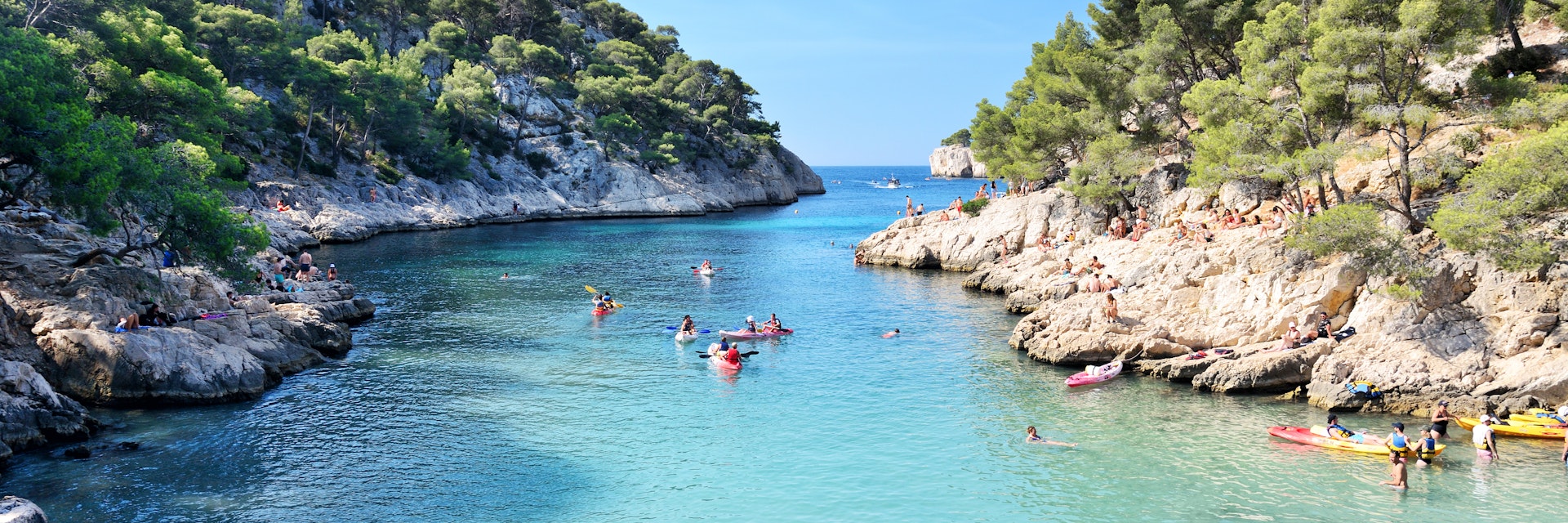
© Getty Images/iStockphoto
Grit and grandeur coexist seamlessly in Marseille, an exuberantly multicultural port city with a pedigree stretching back to classical Greece.
Best Time to Visit
Best things to do, leave the planning to a local expert.
Experience the real Marseille. Let a local expert handle the planning for you.
Attractions
Must-see attractions.
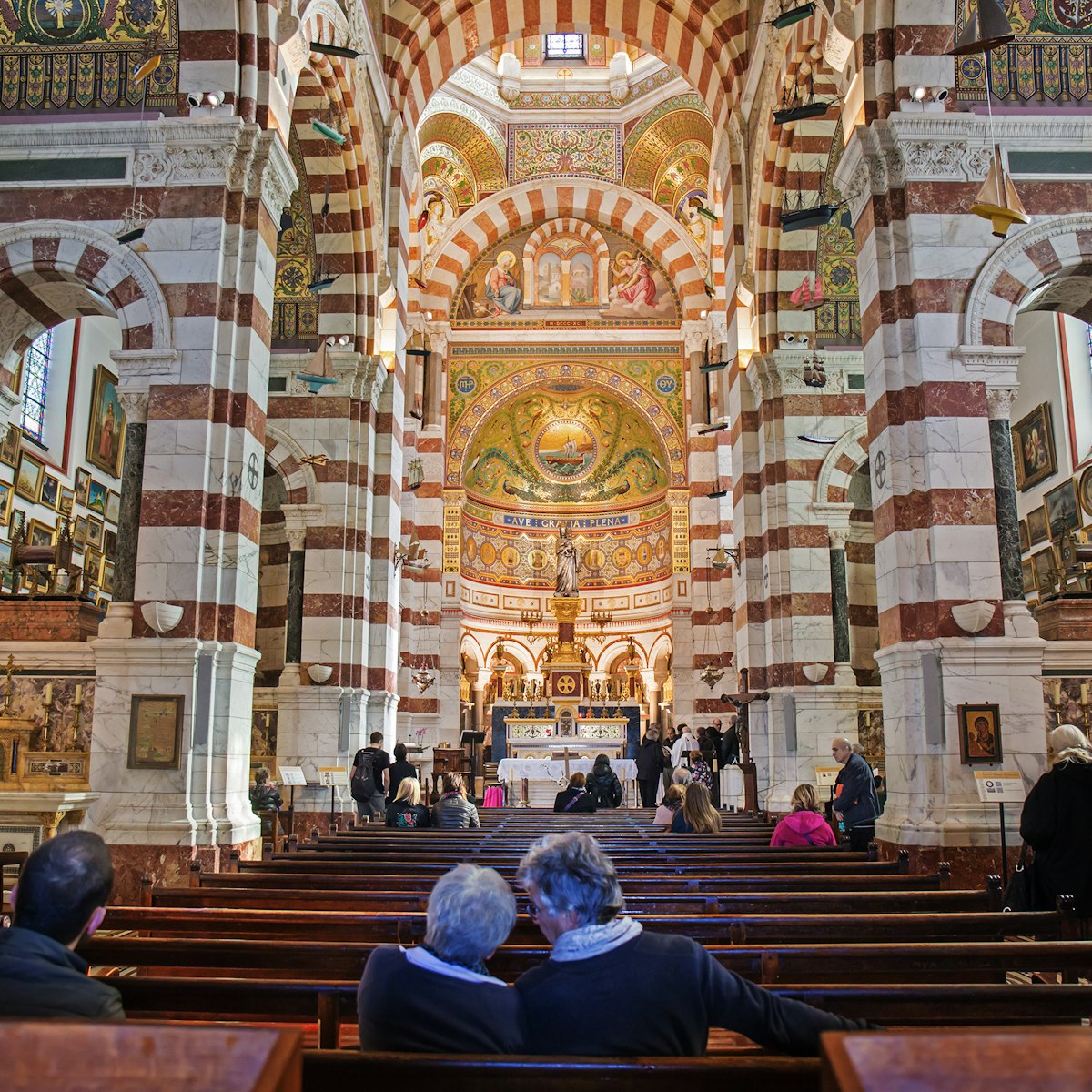
Basilique Notre Dame de la Garde
Occupying Marseille’s highest point, La Garde (154m), this opulent 19th-century Romano-Byzantine basilica is Marseille's most-visited icon. Built on the…

'The Basket' is Marseille's oldest quarter – site of the original Greek settlement and nicknamed for its steep streets and buildings. Its close, village…

Musée des Civilisations de l’Europe et de la Méditerranée
The icon of modern Marseille, this stunning museum explores the history, culture and civilisation of the Mediterranean region through anthropological…
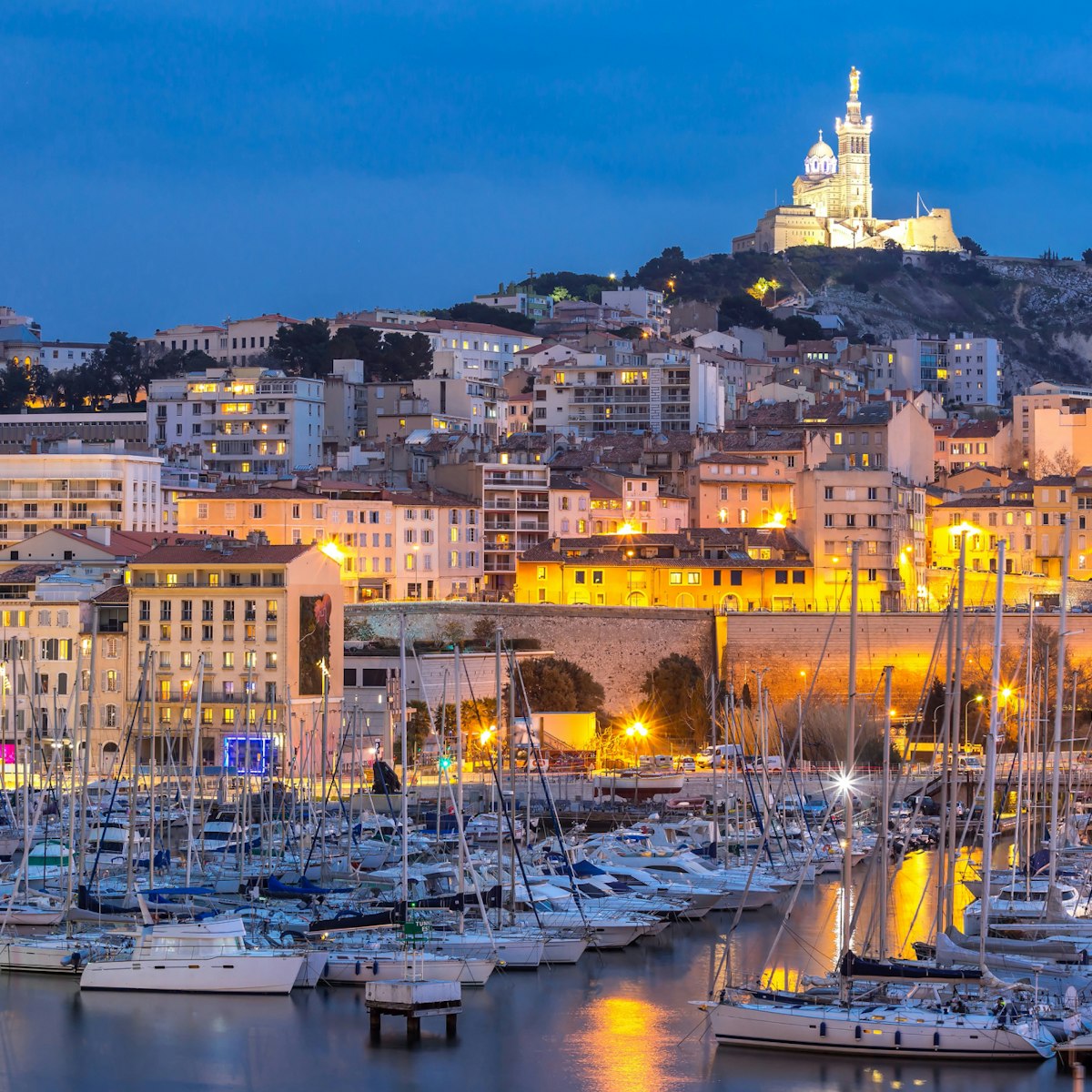
Ships have docked for millennia at Marseille’s birthplace, the vibrant Vieux Port. The main commercial docks were transferred to the Joliette area in the…

La Vieille Charité
In the heart of Marseille's Le Panier quarter is this grand and gorgeous almshouse, built by Pierre Puget (1620–94), an architect and sculptor born just a…

Musée d’Histoire de Marseille
This intriguing 15,000-sq-metre museum traces the story of 'France's Oldest City' from prehistory (the paintings of the Cosquer Cave) to the present day,…
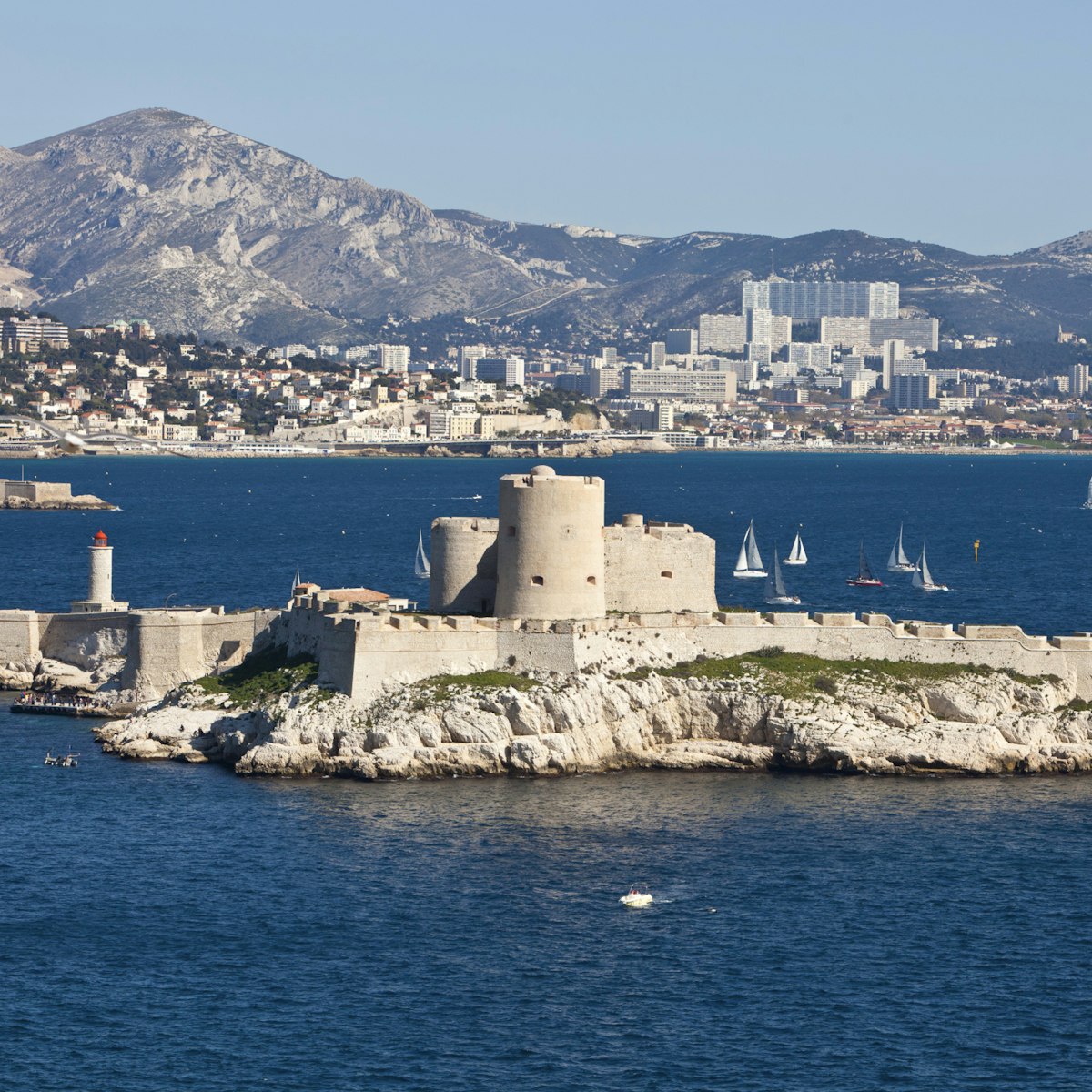
Château d’If
Commanding access to Marseille's Vieux Port, this photogenic island-fortress was immortalised in Alexandre Dumas’ 1844 classic The Count of Monte Cristo…
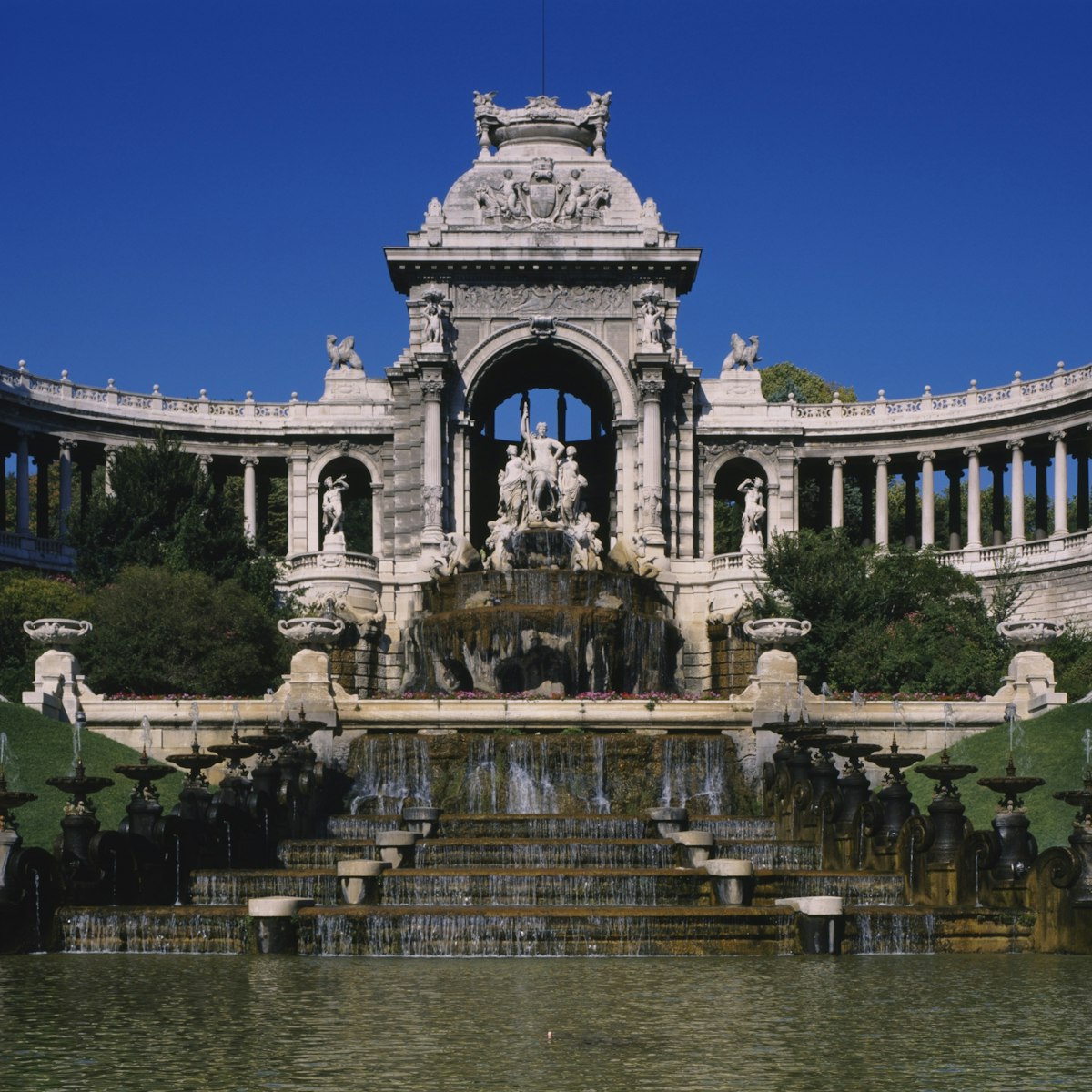
Musée des Beaux Arts
Set in the lavish, colonnaded Palais de Longchamp, Marseille’s oldest museum owes its existence to an 1801 decree of pre-Napoleonic France's short-lived…
Top picks from our travel experts
15 top things to do in marseille for the best of the provençal capital.

L’Epuisette
This swanky restaurant has a Michelin star and knockout water-level views from an elegantly austere dining room. Many splurge on what may be Marseille’s…

La Cité Radieuse
Visionary modernist architect Le Corbusier redefined urban living in 1952 with the completion of this vertical 337-apartment tower, popularly known as La…

Intercontinental Marseille – Hôtel Dieu
Occupying a heritage-listed 18th-century hospital, the Hôtel Dieu, the Intercontinental Marseille has a commanding position in Le Panier overlooking the…

Fort St-Jean
Intended as much to control the citizens of Marseille as guard them from external threat, Fort St-Jean was built by Louis XIV in 1660 on the site of a…

Chez Étienne
Family photos and veteran service staff hint at the longevity of this Le Panier favourite, known for authentic, hand-thrown pizza, topped with homemade…

La Caravelle
On the 1st floor of Hôtel Bellevue, this lovely little bar is styled with rich wood and leather, with a zinc bar and yellowing murals that hint of its…
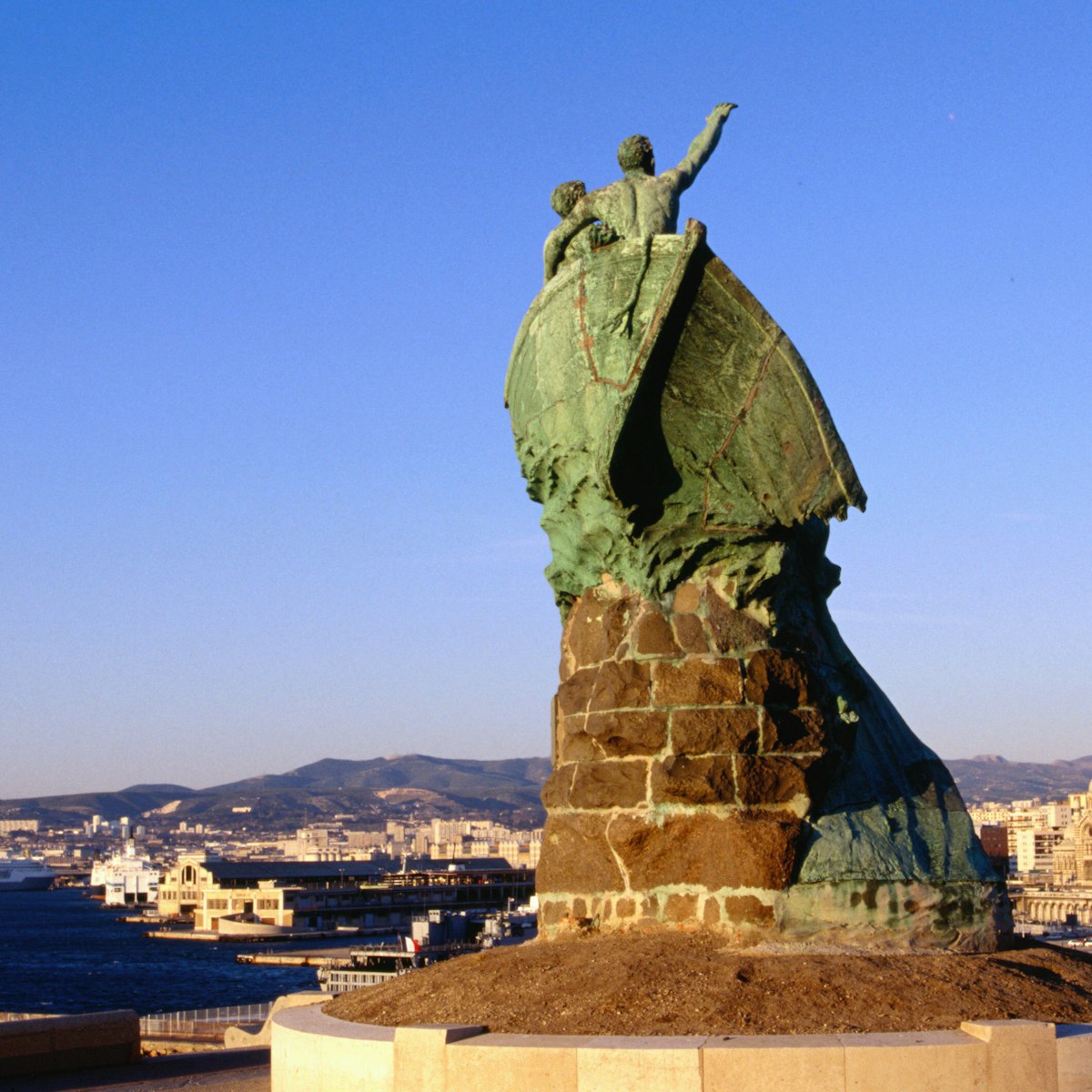
Jardin du Pharo
Perched high above the southern side of the Vieux Port are the six immaculately grassed hectares of the Jardin du Pharo, the grounds of the Palais du…

This long-standing classic in a 1940s seaside hotel with Mediterranean views has plenty of atmosphere, however kitschy. Although this is one of the most…

Parc Borély
Five kilometres south of central Marseille, this 17th-century park encompasses a lake, a miniature of the Notre-Dame de la Garde cathedral, a botanical…
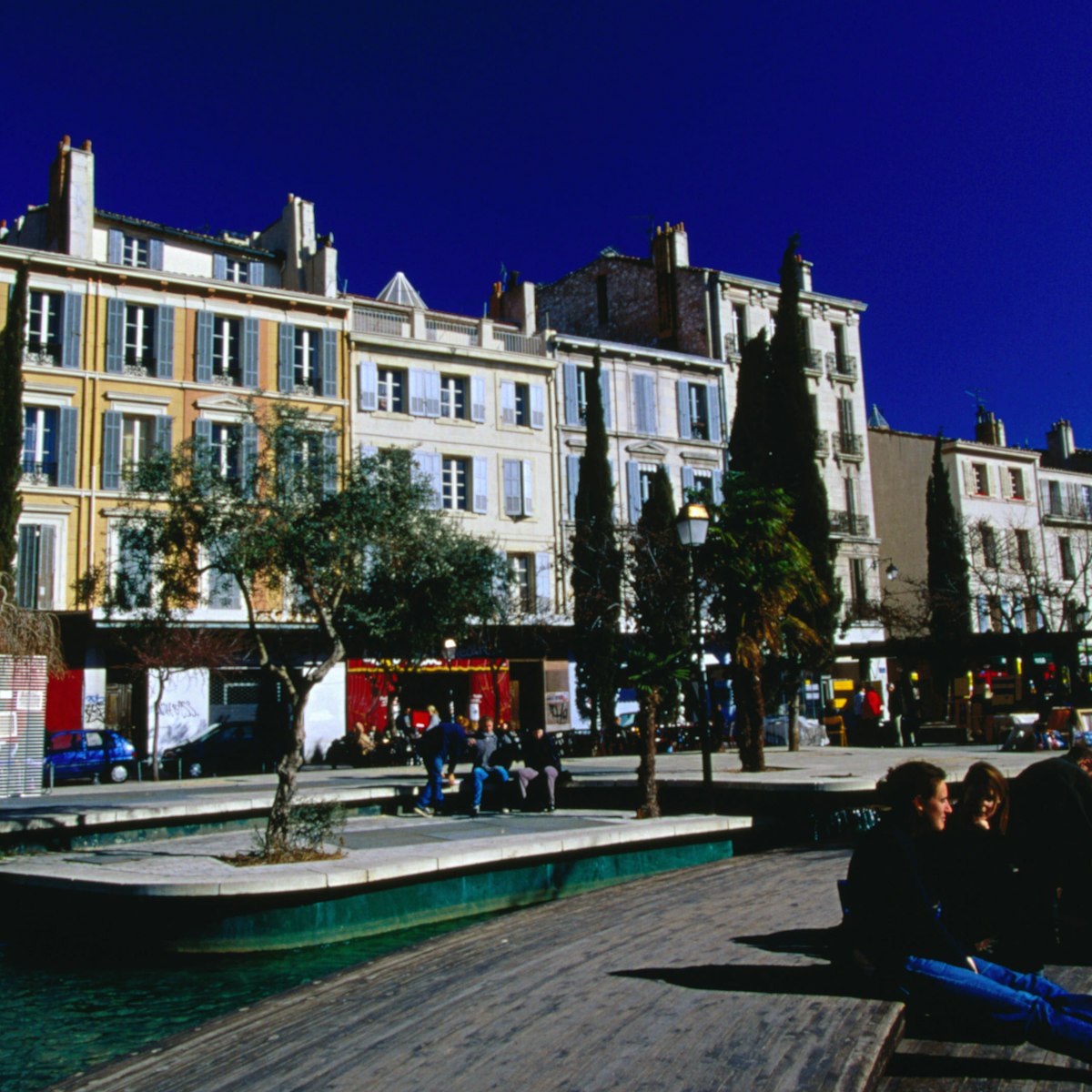
Cours Julien
Marseille's most vibrant bohemian quarter centres on Cours Julien, an elongated concrete square shaded by palm trees. It’s lined with great bars, cafes…
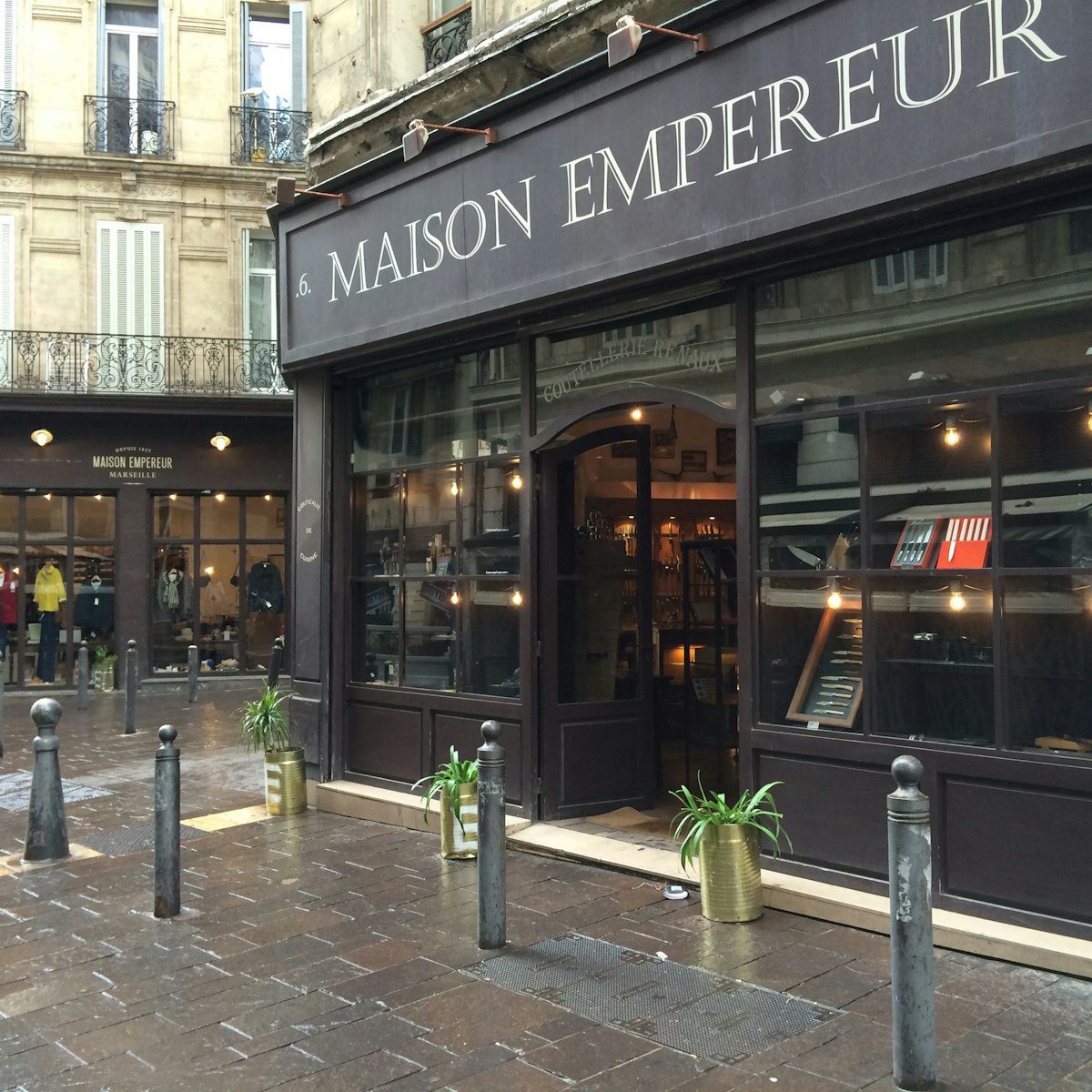
Maison Empereur
If you only have time to visit one shop in Marseille, make it this one. Run by the same family since 1827, France’s oldest hardware store remains a one…
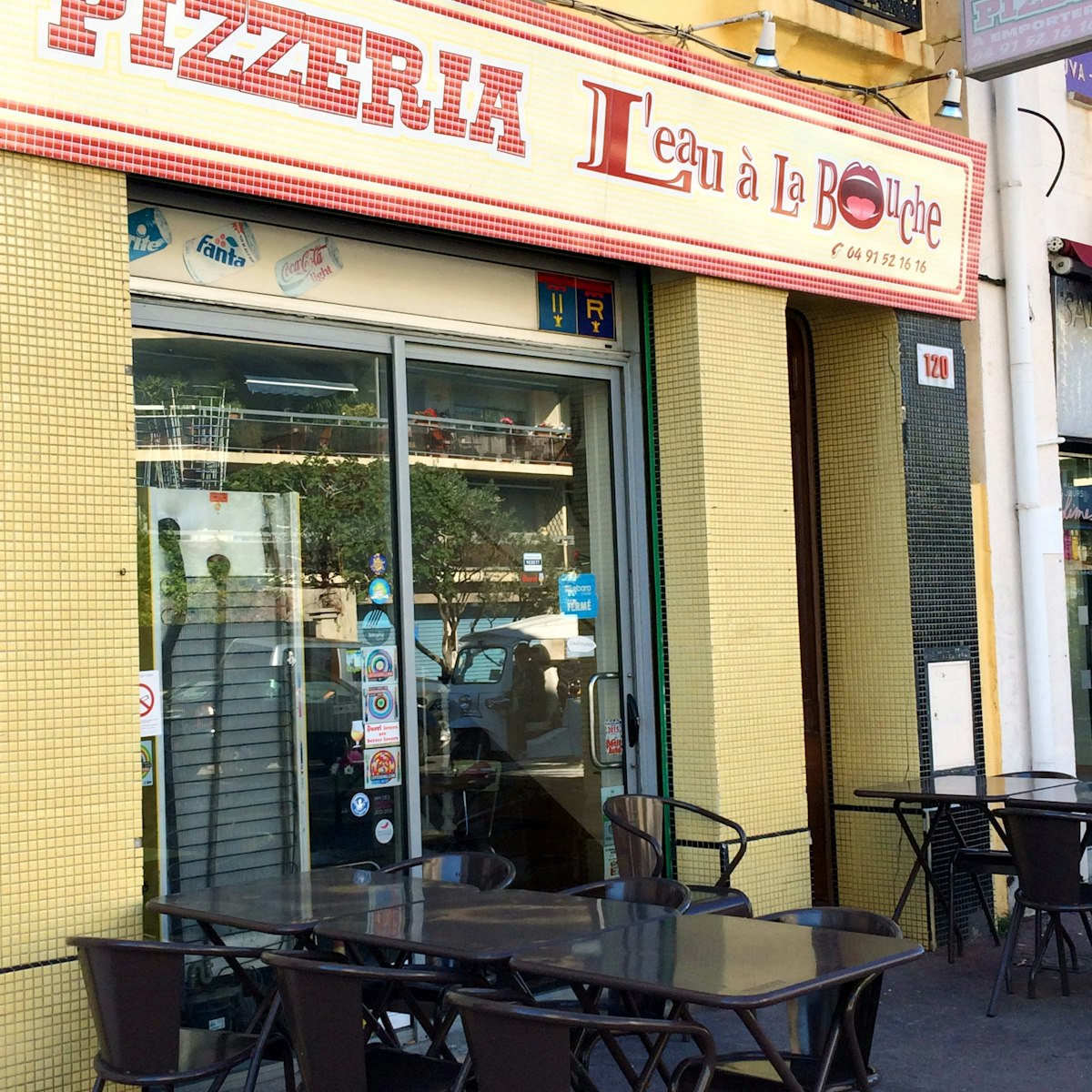
L' Eau a la Bouche
You haven’t had pizza until you’ve eaten at chef Rodolphe Bodikian’s mouth-watering pizzeria. Scattering unusual ingredients – such as sobrasada (spicy…

Musée d’Art Contemporain
Creations of Marseille-born sculptor César Baldaccini (1921–98) jostle for space with works by Christo, Andy Warhol, Jean-Michel Basquiat and Nice New…

Marseille’s creative chameleon and the heart of the cours Julien scene, Waaw ('What an Amazing World') has everything you could possibly want for a night…

Pizzeria La Bonne Mère
Reservations are essential at this fantastic pizzeria in the lee of Basilique Notre-Dame de la Garde. La Bonne Mère uses only the freshest organic and…
10 free things to do in Marseille, from seaside treks to sunset shows

Vallon des Auffes
Nestled around this picture-postcard fishing village, a remnant of old maritime Marseille long since swallowed by modern sprawl, are traditional cabanons …

Plage des Catalans
The small, bustling, beach-volleyball-busy Plage des Catalans is the closest stretch of sand to the Vieux Port.

Musée Cantini
Donated to the city by the sculptor Jules Cantini on his death in 1916, this 17th-century mansion-turned-museum conceals some superb art behind its…

La Friche La Belle de Mai
This 45,000-sq-metre former tobacco factory is now a vibrant arts centre with a theatre, cinema, bar, bookshop, artists’ workshops, multimedia displays,…
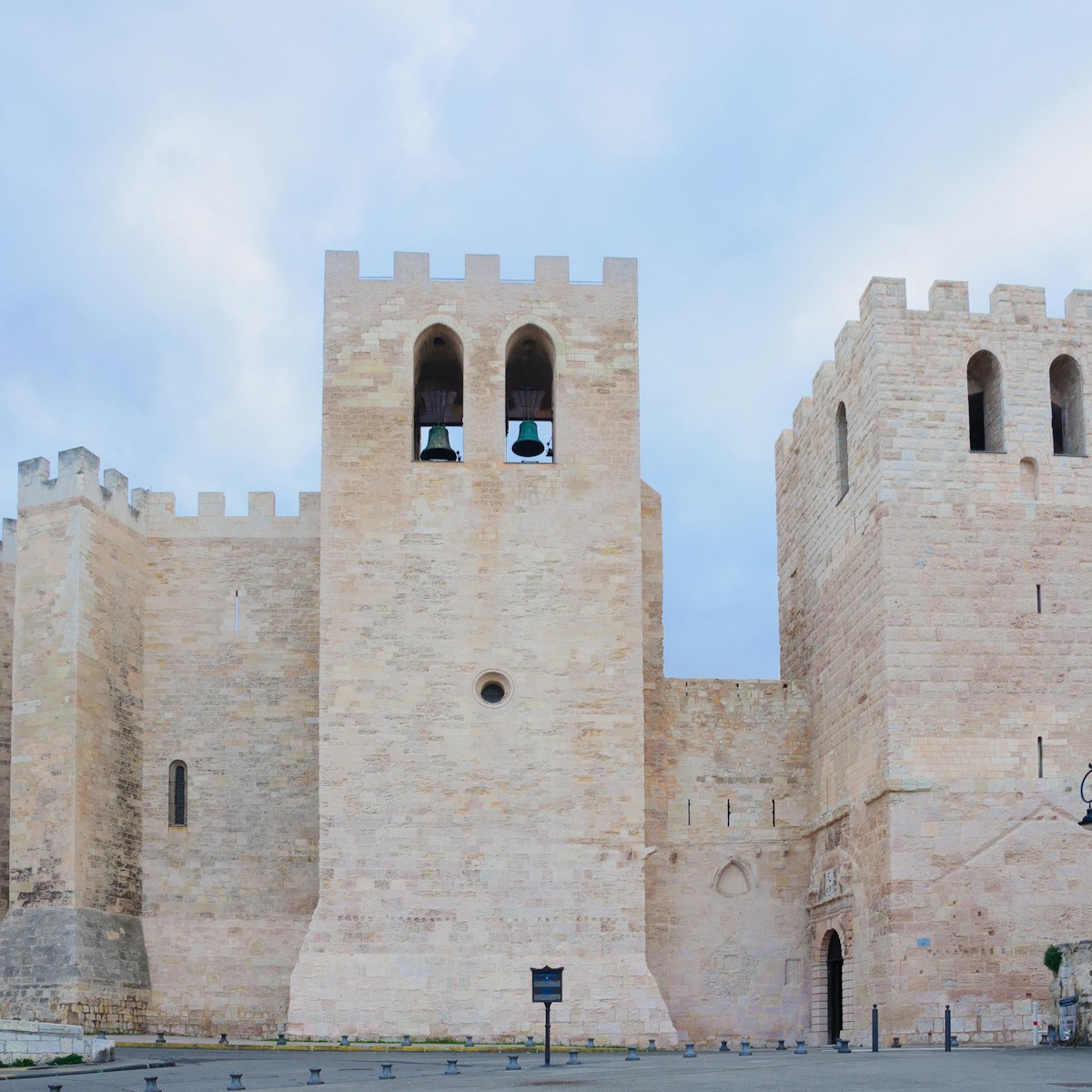
Abbaye St-Victor
To the west of the Vieux Port lies Abbaye St-Victor, the birthplace of Christianity in Marseille, built on a 3rd century BC necropolis. It's €2 to visit…
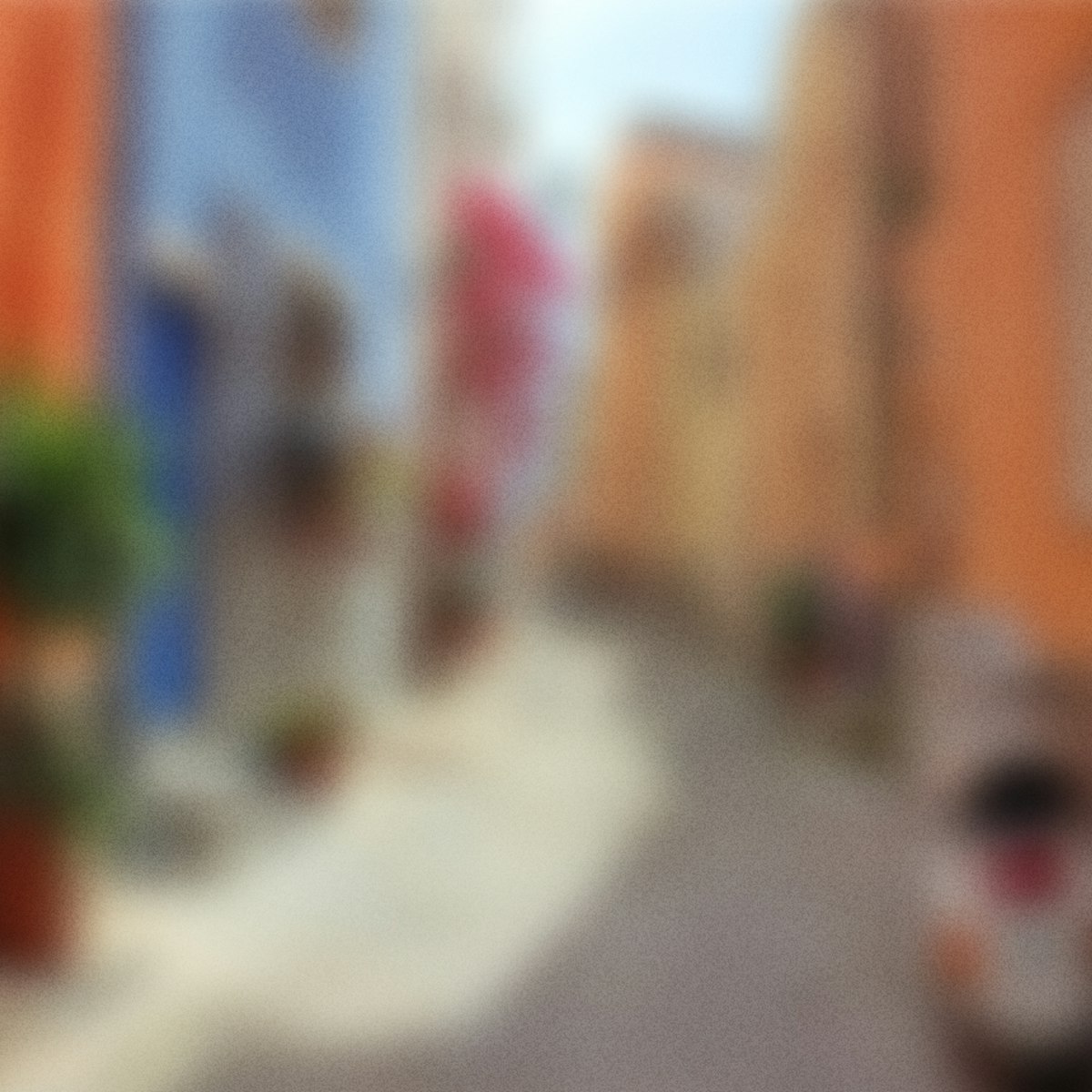
Marseille Provence Greeters
A great idea: free walking tours led by locals, covering street art, history, food shops, football culture and lots more. Sign up in advance online and…

Cathédrale de Marseille Notre Dame de la Major
Standing guard between the old and new ports is the striking 19th-century Cathédrale de la Major. After its foundation stone was laid by Napoleon III in…

Fort St-Nicolas
Guarding the southern side of Marseille’s harbour (and threatening its sometimes rebellious citizens, who attempted to destroy it during the Revolution)…
Planning Tools
Expert guidance to help you plan your trip.
Things to Know
Contemporary Marseille is the place to be right now. From health and saftey to etiquette, here’s what you need to know to get the best out of your visit.
Best Neighborhoods
Here's a look at Marseille's most interesting enclaves, and what to expect in each one.
These are the best day trips within an hour of Marseille by bus, train, or bike.
Money and Costs
Follow these tips on transport, meals, low-cost sightseeing and other essentials to get more for less on your next trip to Marseille.
Transportation
Marseille’s reputation as a frenetic, fast-paced port city is not unwarranted, but the best way to get around is often by foot.
Free Things to Do
With savvy planning and smart intel, visitors can even tap into France’s second-largest city, Marseille, without spending a cent.
As you discover the allure of Marseille, drop by these independent retailers, five of the city’s best.
Plan with a local
Experience the real France
Let a local expert craft your dream trip.

Latest stories from Marseille
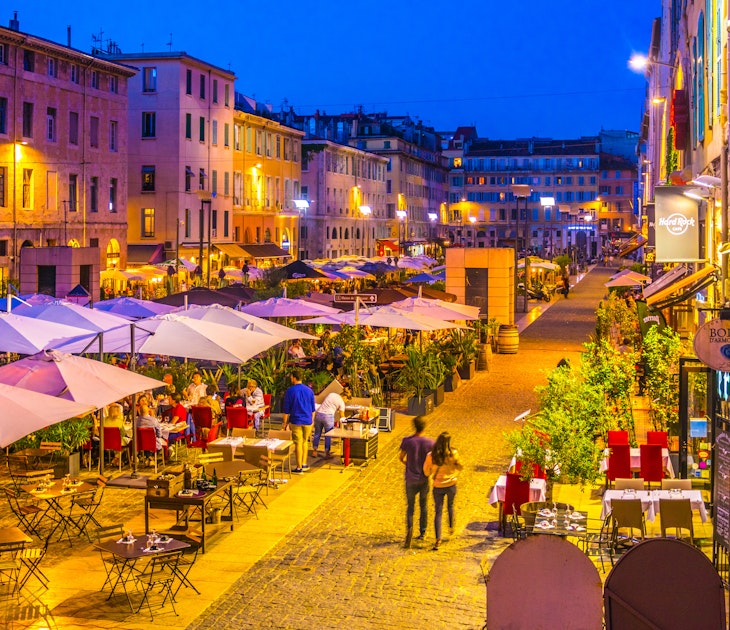
Jan 13, 2024 • 10 min read
Here are the best things to do in Marseille to really get under its salty, weathered, mistral-whipped skin.

Apr 3, 2023 • 5 min read
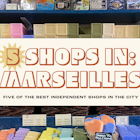
Mar 28, 2023 • 4 min read
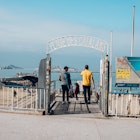
Nov 15, 2022 • 1 min read

Nov 15, 2022 • 11 min read
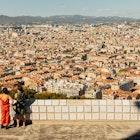
Sep 27, 2022 • 7 min read

Sep 13, 2022 • 6 min read
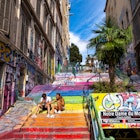
Jun 22, 2022 • 5 min read
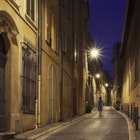
Jun 16, 2022 • 7 min read
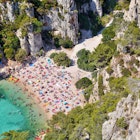
May 19, 2022 • 6 min read
in partnership with getyourguide
Book popular activities in Marseille
Purchase our award-winning guidebooks.
Get to the heart of Marseille with one of our in-depth, award-winning guidebooks, covering maps, itineraries, and expert guidance.
- International edition
- Australia edition
- Europe edition
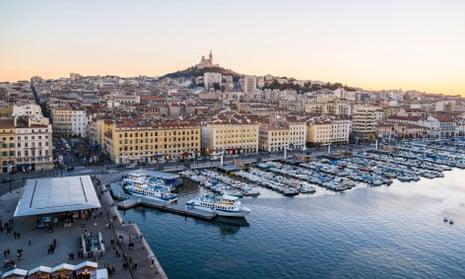
A local's guide to Marseille: 10 top tips
Transformed but not gentrified since its year as Capital of Culture in 2013, France’s second city remains a vibrant cultural, ethnic and gastronomic melting pot
Alexandre Mazzia’s AM
Alexandre is a modernist chef who I admire a lot, and his restaurant is worth a gourmet splash out, especially at lunchtime (midday tasting menus from €39-92). He opened AM four years ago and was awarded a Michelin star in 2016. A meal here is very much a surprise: no written menu, just tasting selections that can run to 10 servings, but actually include 20-30 tiny dishes. Alexandre was born in the Congo, and incorporates surprising global ingredients in his cuisine – tapioca from Africa, kumbawa fruits, satay and sake from Asia – but also the wonderful fish and seafood we have in the Mediterranean.
Pizza at La Bonne Mère
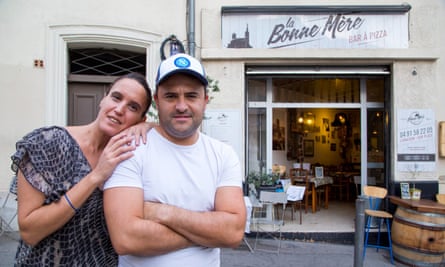
We’ve been passionate about pizza here ever since the 1950s, when the town hall authorised pizza trucks with wood-fired ovens – early street food. There’s a pizzeria on every street corner, including legendary addresses such as Chez Etienne and Chez Sauveur , known for the classic thin, crispy tomate, anchois, olive . But I have recently discovered La Bonne Mère , a tiny place behind Notre-Dame de la Charité. Young owners Jeremy and Mahéva are purists, serving a small but tasty selection (from €12). Pizzas made with organic flour and juicy buffalo mozzarella are cooked in a wood-fired oven. I like their speciality Bonne Mère with extra anchovies. Booking essential.
Food shopping
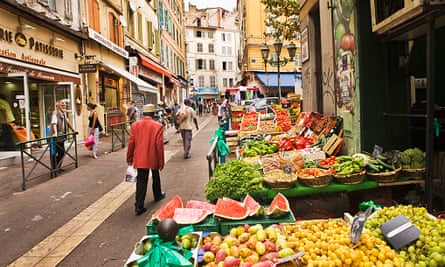
Le Marché des Capucins , in a maze of narrow streets, is the foodie heart of Marseille. Tourists will find fresh, cheap fruit, vegetables and picnic supplies. I have always found inspiration from its exotic food stores, such as Saladin , whose spice emporium is as well stocked as Marrakech’s souk. Up the street, check out Maison Empereur , a labyrinth dating from 1827, with every kitchen gadget under the sun. For lunch, try a €6 plate of grilled sardines, Algerian salads and chorba soup at the street-corner Comptoir des Beaux Arts, or join a more chic crowd at L’Epicerie l’Ideal , a new cafe-deli recently opened by Julia Sammut, from France’s influential Le Fooding guide.
Swim in a calanque
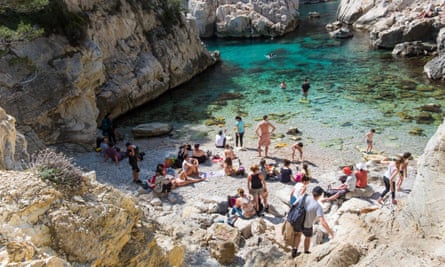
It doesn’t take long to get out of our city to the calanques , wild, gorge-like creeks along the coast as far as Cassis. The nearest calanques, Sormiou and Callelongue, are half an hour away, with quiet beaches and nature trails. But I would recommend the less accessible but spectacular Calanque de Sugiton . Take bus 21 to Marseille University’s Luminy campus for a dramatic and strenuous trek of over an hour. Even better, take a boat tour that visits several calanques before dropping anchor in Sugiton for a swim in the turquoise waters. Half-day trips depart from the Vieux-Port (€32pp) , visite-des-calanques.com
Patisserie and picnic

Clément Higgins is a talented young baker who recently opened Pâtisserie Bricoleurs de Douceurs , a modern bakery-boutique in an old garage south of the city. Don’t expect baguettes and sandwiches – Clément concentrates on sweet stuff, producing just seven fun, inventive pastries, tarts and gateaux each day, inspired by local seasonal fruits, with no colourants or preservatives. Don’t miss his praline Marseille-Brest, a contemporary take on the classic Paris-Brest choux creation, and the succulent Peach Me I’m Famous. There is a small salon de thé , but a better plan, after buying a selection of pastries (€5 each), is to walk down to the seafront, with its numerous steps leading down to huge rocks and tiny beaches … perfect for a picnic.
Funky food kiosk
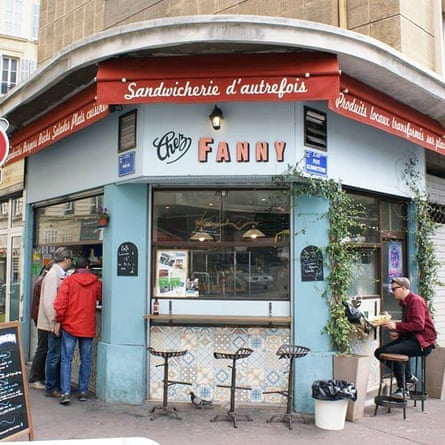
Fanny opened her eponymous snack bar in the historic Panier neighbourhood when she was 21. Everything is prepared fresh each morning, though she admits to being hopeless with recipes: “I can’t do the same dish two days running, as it always comes out different.” So one day she might cook a traditional beef daube, the next a vegetarian tagine, then pasta with clams. She dubs the kiosk sandwicherie d’autrefois (old-style), so while burgers may well be on the menu – you can’t ignore what everyone wants to eat – she makes them her own way, with, say, organic goat’s cheese or homemade tapenade. The plat du jour is €6, either at the counter or in a cardboard container.
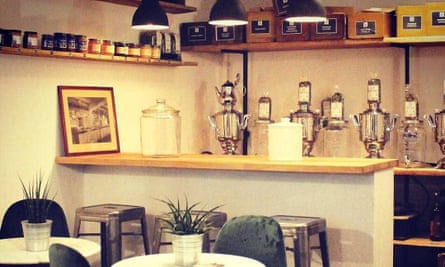
Founded in 1815 L’Herboristerie du Père Blaize is a medicinal herbalist, and is an institution, stocking over 1,000 dried herbs, plants, essential oils and spices. When I was growing up, my schoolmates and I would get dragged to this strange, aromatic apothecary by our grandmothers, who came here for magic potions to cure every ailment under the sun. Ten years ago, I saw that people were drinking less alcohol, so I collaborated with Père Blaize to create a range of “Herbes de Vifs” – a modern cocktail of infusions that can be drunk hot or chilled, neat, or mixed with fruit or vegetable extracts.
And a few months ago, the Herboristerie itself opened its own Tisanerie, where you can choose and taste your own detox concoctions, under the guidance of Vincent Eliot, who used to be my barman.

Friche la Belle de Mai has been around a long time now, but it still dominates Marseille’s alternative arts and culture scene. Located in one of the city’s poorest neighbourhoods, just behind Saint-Charles train station, this friche , an urban regeneration project, sprawls over what was once an enormous cigarette factory producing France’s emblematic Gitanes and Gauloises cigarettes. You can find avant-garde art exhibitions here, a Saturday morning farmers’ market, free outdoor cinema screenings, a huge skateboard park and graffiti artists, and everything from jazz to techno concerts. In summer, the whole of the rooftop is opened up for performances, picnics and parties.
They have an excellent canteen, Les Grandes Tables, which hosts memorable one-off events – such as when we organised the first Le Fooding extravaganza in Marseille, bringing together innovative chefs and regional farm producers.
The best bars
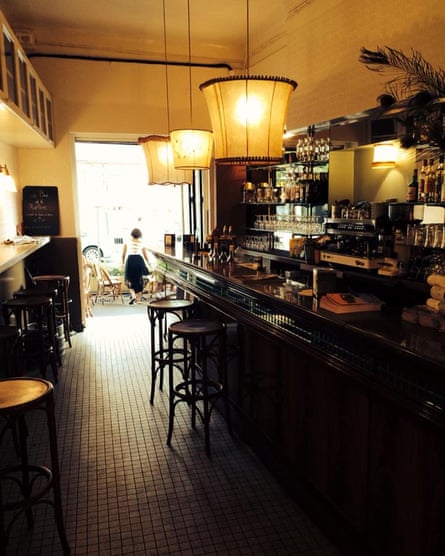
The Endoume is the most interesting quarter in Marseille right now, throwing off its old, sleazy reputation dating back to the days of The French Connection movie. Although it has become one of the city’s trendiest addresses, there is still a real neighbourhood atmosphere, typified by the rebirth of the historic La Relève bar.
I remember when this was a real dive. Now there are craft beers and a selection of organic and natural wines. The place comes to life for early-evening apéro , packed out from 7pm with a fun, young crowd from all over the city. However, I would also still say that no visitor to Marseille should miss the cafe terraces of Place de Lenche in the Panier quarter, where Le Barjac serves mojitos and caipirinhas for €5, while a generous shot of Ricard is still only €2, with no extra charge for sitting outside.
Cantini museum
Marseille now has a brilliant selection of world-class museums, from the avant-garde Mucem to La Vieille Charité , housed in a former 17th-century almshouse But this is the new, modern Marseille; when I was growing up, pretty much the only museum kids were taken to was Cantini , right in the city centre. It impressed me enormously at the time: an immense mansion originally constructed as the headquarters of an African trading company, with a remarkable collection of 20th-century art, including works by Max Ernst and Miró, Picasso, Matisse, Balthus and Francis Bacon. Now I suggest friends visit it as somewhere under the radar, away from the crowds, where you can stand in front of a canvas without being surrounded by a scrum of people.
Gérald Passedat, chef at Le Petit Nice , was interviewed by John Brunton
Getting there EasyJet and Ryanair fly to Marseille from several UK airports; Eurostar train travel via Paris costs from £68 one-way. Where to stay Two stylish but affordable B&Bs near the train station are Casa Ortega (doubles from €90 B&B) and Pension Edelweiss (doubles from €85 B&B).
What’s on The traditional Foire aux Santons ( santons are the terrracotta figurines used in Provençal crib scenes) runs from 18 Nov-31 December at Marseille’s Vieux Port.
Further information marseille-tourisme.com .
- Marseille holidays
- A local's guide
- City breaks
- Short breaks
- Food and drink
- France holidays
- Europe holidays
Comments (…)
Most viewed.
Cookies on GOV.UK
We use some essential cookies to make this website work.
We’d like to set additional cookies to understand how you use GOV.UK, remember your settings and improve government services.
We also use cookies set by other sites to help us deliver content from their services.
You have accepted additional cookies. You can change your cookie settings at any time.
You have rejected additional cookies. You can change your cookie settings at any time.
- Passports, travel and living abroad
- Travel abroad
- Foreign travel advice
Warnings and insurance
The Foreign, Commonwealth & Development Office (FCDO) provides advice about risks of travel to help British nationals make informed decisions. Find out more about FCDO travel advice .
Before you travel
No travel can be guaranteed safe. Read all the advice in this guide as well as support for British nationals abroad which includes:
- advice on preparing for travel abroad and reducing risks
- information for women, LGBT and disabled travellers
Follow and contact FCDO travel on Twitter , Facebook and Instagram . You can also sign up to get email notifications when this advice is updated.
Travel insurance
If you choose to travel, research your destinations and get appropriate travel insurance . Insurance should cover your itinerary, planned activities and expenses in an emergency.
Related content
Is this page useful.
- Yes this page is useful
- No this page is not useful
Help us improve GOV.UK
Don’t include personal or financial information like your National Insurance number or credit card details.
To help us improve GOV.UK, we’d like to know more about your visit today. We’ll send you a link to a feedback form. It will take only 2 minutes to fill in. Don’t worry we won’t send you spam or share your email address with anyone.
Winter is here! Check out the winter wonderlands at these 5 amazing winter destinations in Montana
- Travel Destinations
Traveling To Marseille? Here Are 20 Things To Know Before You Go
Published: November 3, 2023
Modified: December 28, 2023
by Camel Omalley
- Plan Your Trip
- Travel Guide
- Travel Tips
Introduction
Marseille, located on the southeastern coast of France, is a vibrant and mesmerizing city that offers a unique blend of old-world charm and modern allure. Known for its rich history, stunning architecture, and diverse cultural heritage, Marseille is a destination that appeals to all types of travelers.
As the second-largest city in France, Marseille boasts a bustling atmosphere, a thriving art scene, and a culinary landscape that will tantalize your taste buds. Whether you’re strolling along the picturesque Old Port, exploring ancient ruins, or indulging in mouthwatering French cuisine, Marseille is a city that never fails to captivate its visitors.
In this article, we will provide you with 20 essential things to know before you embark on your Marseille adventure. From practical information about transportation, accommodations, and safety, to insider tips on local attractions, hidden gems, and cultural etiquette, we’ll equip you with everything you need to ensure a memorable and hassle-free trip.
So, whether you’re planning a short weekend getaway or a longer exploration of the city, read on to discover the must-know facts and tips about Marseille, and get ready to immerse yourself in the magic of this vibrant French city.
Location and Overview
Marseille is situated on the Mediterranean coast in the Provence-Alpes-Côte d’Azur region of France. It is the capital of the Bouches-du-Rhône department and enjoys a strategic location that has shaped its history and identity. As a major port city, Marseille has long been a gateway for trade and cultural exchange, resulting in a rich and diverse heritage.
With its picturesque coastline and hilly landscape, Marseille offers breathtaking views of the sea and the iconic Notre-Dame de la Garde, a basilica that stands watch over the city. The Old Port, known as Vieux Port, serves as the heart of Marseille, lined with colorful buildings, bustling seafood markets, and charming cafes.
Marseille is not only a city of historical significance but also a modern metropolis. The city has undergone significant redevelopment in recent years, with contemporary architecture and cultural spaces adding a new dynamic to its urban landscape. This fusion of ancient and modern elements makes Marseille a truly captivating destination.
Marseille enjoys a Mediterranean climate, characterized by mild winters and hot summers. The city experiences a high number of sunny days, which makes it an ideal destination for outdoor activities and beach lovers.
Whether you are interested in exploring historical landmarks, indulging in delectable cuisine, or simply soaking up the vibrant atmosphere of a bustling city, Marseille has something for everyone. So, get ready to embark on a journey through time and be enchanted by the beauty of Marseille.
Best Time to Visit
Marseille boasts a Mediterranean climate, making it an appealing destination throughout the year. However, the best time to visit Marseille depends on your preferences and the activities you plan to indulge in during your trip.
The peak tourist season in Marseille falls between June and August when the weather is warm and sunny, and the city comes alive with festivals and events. This is the perfect time for beach lovers to enjoy the sparkling Mediterranean waters and indulge in various water sports. However, it’s also the busiest time, with larger crowds and higher accommodation prices.
If you prefer milder temperatures and fewer tourists, consider visiting Marseille during the spring (April to May) or fall (September to October). During these seasons, the weather is pleasant, and you can explore the city’s attractions without the overwhelming crowds. Plus, you might even score some great deals on accommodations and flights.
Winter (December to February) in Marseille is relatively mild, with cooler temperatures and occasional rainfall. While the beach may not be the ideal spot during this time, you can still explore the city’s indoor attractions, museums, and art galleries. Additionally, Marseille has a vibrant Christmas market and celebrates various holiday events, adding a festive touch to your visit.
Overall, Marseille is a year-round destination, and the best time to visit depends on your personal preferences. Whether you’re seeking lively beach days, cultural festivals, or quieter exploration, Marseille has something to offer in every season. Plan accordingly, and get ready to experience the beauty and charm of the city in your chosen timeframe.
Language and Communication
The official language of Marseille, and of France as a whole, is French. While visiting Marseille, you will likely encounter locals who speak only French. However, in popular tourist areas and establishments, you may find people who speak English, especially in hotels, restaurants, and tourist information centers.
It is always appreciated to make an effort to communicate in French, even if it’s just basic phrases. Polite greetings like “Bonjour” (Hello) and “Merci” (Thank you) can go a long way in establishing friendly interactions with locals. Learning a few common phrases will not only show respect for the local culture but can also make your travel experience more enjoyable.
If you’re not fluent in French, there are also several translation apps and phrasebooks available to assist you during your stay. These tools can help bridge the language gap and facilitate communication in various situations, such as ordering meals, asking for directions, or purchasing tickets.
Additionally, it’s a good idea to familiarize yourself with the local customs and etiquette. French people typically appreciate politeness and will respond positively if you make an effort to adapt to their social norms. Remember to greet with a handshake or “faire la bise” (cheek-kissing) if appropriate, and always say “s’il vous plaît” (please) and “au revoir” (goodbye) when entering or leaving a place.
Overall, while English can be useful in tourist areas, it’s beneficial to learn a few basic French phrases and understand the local customs to enhance your experience and foster a positive connection with the people of Marseille.
Currency and Money Exchange
The currency used in Marseille, as well as in the rest of France, is the Euro (€). It is recommended to have some cash on hand for small expenses, such as buying snacks from street vendors or using public transportation. Credit cards are widely accepted in most establishments, including hotels, restaurants, and shops. However, it’s always a good idea to carry some cash with you for emergencies or places that may not accept cards.
When it comes to money exchange, Marseille has a plentiful supply of banks and exchange offices where you can convert your currency into Euros. Banks usually offer competitive rates, but they may charge a service fee. Exchange offices, located in tourist areas, may provide more convenient hours of operation, but their rates may be slightly less favorable.
It’s important to note that withdrawing money from ATMs is usually the most convenient and cost-effective way to obtain local currency. ATMs can be found throughout the city, and you can use international debit or credit cards to withdraw cash. However, it’s advisable to inform your bank in advance of your travel plans to avoid any issues with card usage.
It’s also worth mentioning that tipping in Marseille is not compulsory, as it is included in the service charge. However, if you receive exceptional service or want to show appreciation, leaving a small tip is always welcomed. As a general guideline, rounding up the bill or leaving up to 10% of the total amount is considered customary.
Lastly, be cautious of your belongings and ensure the safety of your money. Avoid displaying large sums of cash in public and be vigilant when using ATMs. It’s advisable to keep your money and important documents secure in a money belt or hidden pouch while exploring the city.
By being prepared and informed about currency and money exchange, you can navigate Marseille with ease and enjoy your trip without any financial concerns.
Safety and Security
Marseille is a generally safe city, but like any other urban area, it’s important to remain vigilant and take necessary precautions to ensure a safe and enjoyable trip. Here are some tips to enhance your safety and security while in Marseille:
- Stay aware of your surroundings, especially in crowded tourist areas and public transportation hubs.
- Avoid displaying valuable items and keep your belongings secure, especially in crowded places.
- Be cautious of pickpockets and keep your purse or wallet close to your body.
- Use well-lit and busy streets when walking at night, and consider traveling in groups if possible.
- Follow local regulations and instructions, particularly related to public health and safety.
- Keep a photocopy of your passport and important documents in a safe place, separate from the originals.
- Ensure your accommodation has secure locks and use the in-room safe to store your valuables.
- Stay up-to-date on travel advisories and be aware of any potential risks or disturbances in the city.
It’s also a good idea to have emergency contact numbers, including the local police and emergency services, saved in your phone or written down in case of any unforeseen circumstances.
While incidents of violent crime are rare in Marseille, it’s important to exercise caution and use common sense to minimize any potential risks. By staying alert, adhering to safety guidelines, and being aware of your surroundings, you can have a safe and enjoyable experience in Marseille.

Transportation in Marseille
Getting around Marseille is relatively easy, thanks to its well-connected transportation system. Here are some options for navigating the city:
- Public Transportation: Marseille has an efficient public transportation network, including buses, trams, and the metro. The metro is particularly convenient for traveling within the city center, while buses and trams cover a wider area. You can purchase tickets at metro stations, tabacs (tobacco shops), or using the RTM app.
- Bicycle Rental: Marseille offers a bike-sharing system called “Le Vélo.” You can rent a bike for short periods and explore the city on two wheels. Just look for the bike stations located throughout Marseille.
- Taxis and Rideshares: Taxis are available throughout the city, and you can hail them on the street or find them at designated taxi stands. Ride-hailing services like Uber are also available in Marseille, providing a convenient and reliable transportation option.
- Walking: Marseille’s compact city center is best explored on foot, allowing you to soak in the vibrant street life and discover hidden gems. Many popular attractions, such as the Old Port and the Panier neighborhood, are within walking distance of each other.
- Driving: If you plan to rent a car, it’s important to note that driving in Marseille can be challenging, especially in the city center with its narrow streets and limited parking options. However, having a car can be advantageous for exploring places outside the city or for day trips to nearby attractions.
It’s also worth knowing that Marseille is well-connected to other cities in France and Europe through its international airport, Marseille Provence Airport. From the airport, you can easily reach the city center by shuttle buses, trains, or taxis.
Planning your transportation in advance, considering the proximity of attractions, and utilizing a combination of public transportation, walking, and occasional taxis or rideshares can enhance your overall travel experience in Marseille.
Accommodation Options
Marseille offers a wide range of accommodation options to suit every budget and preference. From luxurious hotels to budget-friendly hostels and cozy guesthouses, here are some options to consider when selecting your accommodation in Marseille:
- Hotels: Marseille is home to a variety of hotels, ranging from upscale establishments with stunning sea views to boutique hotels nestled in historic neighborhoods. These hotels offer comfortable amenities, including restaurants, bars, and sometimes even spa facilities.
- Apartments: Renting an apartment is a popular option for those looking for more spacious and independent accommodation. There are several websites and platforms where you can find apartments for short-term rentals in Marseille.
- Hostels: Marseille has a selection of budget-friendly hostels, perfect for solo travelers or those on a tight budget. Hostels offer shared dormitory-style rooms or private rooms, along with common areas where you can socialize with fellow travelers.
- Guesthouses: If you prefer a more intimate and personalized experience, consider staying in a guesthouse. These smaller accommodations offer a homely atmosphere and personalized service, often operated by locals who can provide insider tips and recommendations.
- Bed & Breakfasts: Marseille has charming bed and breakfast establishments where you can enjoy a cozy stay and a hearty breakfast to start your day. These accommodations often showcase the local charm and hospitality.
When choosing your accommodation, factors such as location, amenities, and proximity to attractions should be taken into consideration. The Vieux Port area and the historic Panier neighborhood are popular choices for their central locations and vibrant atmosphere. Additionally, Marseille offers a variety of accommodations near the beach, providing easy access to the sun, sand, and sea.
It’s advisable to book your accommodation in advance, especially during the peak tourist season, to secure the best deals and availability. Online travel platforms and booking websites can help you explore the different options and read reviews from other travelers to make an informed decision.
With a wide range of accommodation choices available, you can find the perfect place to stay in Marseille that suits your preferences and enhances your overall travel experience.
Must-See Attractions
Marseille is a city filled with captivating attractions and landmarks that showcase its rich history and cultural heritage. Here are some must-see attractions to add to your itinerary when visiting Marseille:
- Notre-Dame de la Garde: Perched on a hilltop, this iconic basilica offers panoramic views of Marseille and the Mediterranean Sea. Its stunning architecture and intricate interiors make it a must-visit attraction.
- The Old Port (Vieux Port): This historic harbor is the heart of Marseille, lined with colorful buildings, fishing boats, and lively cafes. Take a stroll along the waterfront and soak in the vibrant atmosphere.
- Le Panier: Marseille’s oldest neighborhood, Le Panier, is known for its narrow streets, charming squares, and vibrant street art. Explore its winding alleys and discover hidden gems, including boutiques, art galleries, and cafes.
- MuCEM: The Museum of European and Mediterranean Civilizations, located on the waterfront, is an architectural masterpiece. It explores the history and cultural diversity of the Mediterranean region through its exhibits and temporary exhibitions.
- Palais Longchamp: This intricate monument boasts beautiful gardens, a majestic fountain, and the Museum of Fine Arts. It offers a serene escape from the bustling city center.
- Château d’If: This famous island fortress, located just off the coast of Marseille, is a must-visit for fans of Alexandre Dumas’ “The Count of Monte Cristo.” Take a ferry to explore the prison cells and enjoy stunning views of Marseille from the island.
- Calanques National Park: Just outside Marseille, this national park offers breathtaking natural beauty. Hike among stunning limestone cliffs, swim in crystal-clear waters, and enjoy the untouched Mediterranean landscape.
- Marseille Cathedral (Cathédrale Sainte-Marie-Majeure de Marseille): This grand cathedral showcases a blend of Romanesque and Gothic architectural styles. Explore its intricate details and climb to the rooftop for panoramic views.
These are just a few highlights of the many attractions Marseille has to offer. Don’t forget to wander through the vibrant street markets, visit museums, and explore the city’s neighborhoods to truly immerse yourself in the vibrant culture and charm of Marseille.
Hidden Gems in Marseille
Marseille is not only famous for its well-known attractions but also hides a treasure trove of hidden gems waiting to be discovered. Here are some lesser-known yet remarkable places to explore during your visit to Marseille:
- Le Vallon des Auffes: This picturesque fishing village tucked away from the city center offers a tranquil escape. Enjoy fresh seafood at waterfront restaurants and take in the charming atmosphere of this hidden gem.
- La Cité Radieuse: Designed by renowned architect Le Corbusier, this iconic residential building is a modernist masterpiece. Explore its unique design and enjoy stunning views from the rooftop terrace.
- The Corniche: Take a scenic drive along the coastal road, known as the Corniche, and enjoy breathtaking views of the sea and Marseille’s stunning coastline.
- Gare de Marseille-Saint-Charles: This historic train station is worth a visit, even if you’re not catching a train. Admire its grand architecture and soak in the vibrant atmosphere of travelers coming and going.
- Vallon des Carmes: Escape the hustle and bustle of the city at this peaceful garden oasis. With lush greenery, a small waterfall, and hidden benches, it’s the perfect spot for a quiet retreat.
- The Panier’s Street Art: The Panier neighborhood is not only known for its historical charm but also for its vibrant street art scene. Take a self-guided tour to discover colorful murals and graffiti adorning the walls of the neighborhood.
- Roucas-Blanc: This neighborhood offers stunning views of the sea and the magnificent Château d’If. Explore its narrow streets and visit the local shops and cafes for a more relaxed and authentic experience.
- Marseille’s Secret Passages: Explore the hidden passages (Passages Couverts) in Marseille, such as the Passage de Lorette or Passage de la Baleine. These covered walkways transport you back in time, with charming shops and cafes tucked away.
Venturing off the beaten path and exploring these hidden gems will provide a deeper insight into the local culture and add an extra layer of enchantment to your Marseille experience.
Beaches in Marseille
Marseille is blessed with a stunning coastline and several beautiful beaches where you can relax, soak up the sun, and cool off in the crystal-clear waters of the Mediterranean Sea. Here are some top beaches in Marseille to visit:
- Plage du Prado: Located in the Prado area, this sandy beach stretches for several kilometers and offers various facilities, including beach clubs, restaurants, and water sports activities.
- Les Catalans Beach: Situated near the Vieux Port, this charming beach is easily accessible and offers a peaceful retreat from the city center. Enjoy its calm waters and stunning views of the Château d’If.
- Plage de la Pointe Rouge: This lively beach is popular amongst both locals and tourists. With its lively promenade, water sports rentals, and beachfront restaurants, it’s an ideal spot for a day of sun and relaxation.
- Plage du David: Nestled between rocky cliffs, this secluded beach offers a tranquil escape. Its clear waters are perfect for swimming and snorkeling, and the surrounding cliffs provide shade during hot summer days.
- Calanque de Sormiou: While technically not a beach, this stunning inlet is a must-visit destination for nature lovers. Accessible by hiking or by boat, it offers crystal-clear water and breathtaking surroundings.
- Plage du Prophète: Located in the Corniche neighborhood, this sandy beach is known for its calm waters and family-friendly atmosphere. It’s equipped with facilities such as showers, lifeguards, and beachside restaurants.
From sandy beaches with lively vibes to hidden coves with pristine waters, Marseille’s beaches offer something for everyone. Whether you’re looking for water sports, sunbathing, or simply enjoying the natural beauty, a visit to one of Marseille’s beaches is a must during your stay.
Outdoor Activities
Marseille, with its stunning natural landscape and Mediterranean climate, provides ample opportunities for outdoor enthusiasts to engage in exciting activities. Here are some outdoor activities to enjoy in Marseille:
- Hiking in the Calanques: Lace up your hiking boots and explore the Calanques National Park, a stunning natural reserve with steep limestone cliffs, hiking trails, and breathtaking views. Choose from various routes, ranging from easy walks to challenging hikes.
- Boat Tours: Embark on a boat tour to discover the beauty of the Mediterranean coastline surrounding Marseille. Take in the sights of the Calanques, visit nearby islands like Frioul and Maïre, or go on a fishing excursion.
- Water Sports: Try your hand at a range of water sports, such as kayaking, paddleboarding, and sailing, along Marseille’s coastline. Explore hidden coves, navigate through the Calanques’ turquoise waters, or simply enjoy the thrill of being on the sea.
- Rock Climbing: Marseille’s rocky cliffs offer incredible opportunities for rock climbing enthusiasts. With varying levels of difficulty and picturesque views, it’s a great way to challenge yourself and experience the thrill of scaling the cliffs.
- Cycling: Rent a bike and explore Marseille’s many cycle paths, including the scenic Corniche Kennedy. Explore the city’s neighborhoods, ride along the coast, or venture into the countryside for a scenic bike ride.
- Snorkeling and Diving: Discover the rich underwater world of the Mediterranean Sea by snorkeling or diving. Marseille offers several diving spots where you can explore colorful marine life, ancient shipwrecks, and underwater caves.
- Picnicking in Parks: Marseille has numerous parks and green spaces where you can enjoy a leisurely picnic. Parc Borély and Parc Longchamp are popular choices, offering serene settings and beautiful landscapes.
Whether you’re seeking adrenaline-pumping adventures or peaceful outdoor experiences, Marseille has it all. Embrace the natural beauty and take advantage of the city’s abundant opportunities for outdoor activities to make your trip truly memorable.
Cultural Festivals and Events
Marseille is known for its vibrant cultural scene, and throughout the year, the city hosts a variety of festivals and events that showcase its rich heritage and diverse cultural traditions. Here are some of the notable cultural festivals and events in Marseille:
- Marseille Jazz Festival: Held in July, this renowned music festival brings together jazz musicians from all over the world for a series of captivating performances. Enjoy live jazz music in various venues across the city.
- Marseille Provence Festival: Celebrated every year, this multidisciplinary arts festival combines music, dance, theater, and visual arts, showcasing the region’s cultural wealth. It takes place at various venues throughout the city.
- La Fête du Panier: This annual festival celebrates the vibrant Panier neighborhood with street performances, live music, local cuisine, and art exhibitions. Experience the lively and artistic atmosphere of this historic and artistic quarter.
- Fête de la Musique: Celebrated on June 21st, this nationwide music festival takes over the streets of Marseille, offering free concerts and performances by local and international artists. Join the locals in celebrating the joy of music.
- Festival International de Marseille: As one of the most important contemporary dance festivals in France, it showcases innovative dance performances and workshops, attracting renowned artists from around the world.
- Marseille Provence Gastronomie: This food festival celebrates the culinary heritage of Marseille and Provence. Enjoy tastings, workshops, and special menus featuring local flavors and ingredients.
- Carnaval de Marseille: Join the colorful and festive celebration of Carnaval de Marseille, where locals and visitors come together for parades, music, costumes, and traditional festivities.
These are just a few examples of the countless cultural festivals and events that take place in Marseille throughout the year. Check the local event calendars and tourist information websites to plan your visit around these vibrant and exciting celebrations, and immerse yourself in the city’s cultural tapestry.
Shopping in Marseille
Marseille offers a diverse shopping scene, from bustling markets to trendy boutiques and department stores. Whether you’re looking for local specialties, fashionable clothing, or unique souvenirs, you’ll find plenty of options to satisfy your shopping desires. Here are some of the best places to shop in Marseille:
- Les Docks Village: This stylish shopping center, located in a beautifully renovated warehouse, is home to a range of fashion boutiques, design stores, and gourmet shops. Enjoy a unique shopping experience in a trendy setting.
- Centre Bourse: Situated in the heart of Marseille, Centre Bourse is a large shopping mall offering a mix of international brands, local boutiques, and a variety of dining options. From clothing and accessories to electronics and cosmetics, you’ll find it all here.
- Le Panier: Explore the charming streets of Le Panier neighborhood, where you’ll find an array of artisan workshops, craft shops, and galleries. This is the perfect place to discover unique handmade items and support local artisans.
- Marché aux Puces de Marseille: If you’re a vintage enthusiast or enjoy hunting for unique treasures, head to this flea market. Browse through a vast collection of antiques, furniture, collectibles, and vintage clothing.
- La Canebière: Marseille’s main thoroughfare, La Canebière, is lined with shops offering a mix of traditional and modern wares. Explore department stores, fashion boutiques, and specialty shops as you stroll down this bustling street.
- Marché de Noailles: Immerse yourself in a vibrant sensory experience at this lively market. From fresh produce and spices to Middle Eastern and North African products, the market offers a diverse array of culinary delights.
- Designer Boutiques on Rue Paradis: For those looking for high-end fashion and luxury brands, Rue Paradis is the place to be. This upscale street is home to renowned designer boutiques and chic stores.
When shopping in Marseille, don’t forget to explore the local food markets as well. Stock up on delicious regional delicacies, such as cheese, olives, and pastries, to bring a taste of Marseille back home with you.
Marseille is a shopper’s paradise, offering a diverse range of shopping experiences to suit every taste and budget. So, grab your shopping bags and get ready to indulge in some retail therapy during your visit to Marseille.
Local Cuisine and Specialties
Marseille is a gastronomic haven, offering a delightful blend of French, Mediterranean, and Provençal flavors. Known for its fresh seafood, vibrant spices, and rich culinary traditions, Marseille’s local cuisine is a true reflection of the city’s diverse cultural influences. Here are some must-try dishes and specialties to savor during your visit:
- Bouillabaisse: This iconic Marseille dish is a fish stew made with various types of fish and shellfish, simmered with herbs, tomatoes, and saffron. Enjoy this hearty and flavorful dish at one of the city’s traditional seafood restaurants.
- Panisse: Panisse is a delicious chickpea flour fritter that is crispy on the outside and tender on the inside. It’s often served as a side dish or appetizer, perfect for accompanying your meal.
- Anchoïade: Anchoïade is a flavorful dip made with anchovies, garlic, olive oil, and herbs. It’s typically served with crudités or bread and makes for a delicious and savory starter.
- Petits Farcis: Petits Farcis are stuffed vegetables, usually zucchini, eggplant, or bell peppers, filled with a mixture of ground meat, breadcrumbs, and herbs. They are baked until tender and make for a delightful main course or side dish.
- Navettes: These boat-shaped cookies are a Marseille specialty, traditionally enjoyed during the Candlemas holiday. They have a mild orange blossom flavor and a delightful crumbly texture.
- Pastis: Pastis is a popular anise-flavored liqueur that is synonymous with Provence. Enjoy it as an aperitif, either mixed with water to create a refreshing drink or simply on the rocks.
- Calissons: These almond-based candies are a beloved sweet treat in Marseille. The combination of ground almonds, candied fruits, and royal icing creates a unique and irresistible flavor.
- Tapenade: Tapenade is a flavorful spread made from olives, capers, anchovies, garlic, and olive oil. It’s typically enjoyed on bread or crackers and is a delicious appetizer or snack option.
While exploring Marseille, be sure to visit the local markets, such as the colorful Marché du Vieux Port, to sample fresh regional produce, cheeses, oils, and other specialty products. Don’t forget to pair your meals with a glass of local wine, such as a crisp Côtes de Provence rosé, to complete your culinary experience in Marseille.
Indulging in Marseille’s local cuisine and specialties is a must to truly appreciate the city’s vibrant gastronomic culture and savor the flavors of the Mediterranean. Bon appétit!
Drinking and Nightlife
Marseille offers a vibrant nightlife scene with a wide range of bars, clubs, and restaurants to suit all tastes. Whether you’re looking to relax with a drink, dance the night away, or enjoy live music, Marseille has something for everyone. Here’s what you need to know about drinking and nightlife in Marseille:
- Bars and Cafés: Marseille is dotted with numerous bars and cafés where you can socialize and indulge in a refreshing drink. From cozy wine bars to trendy cocktail lounges, you’ll find a diverse selection to cater to your preferences.
- Old Port (Vieux Port): The Old Port area is a popular spot for enjoying a drink while soaking in the lively atmosphere. The waterfront is lined with bars and cafés where you can grab a seat on a terrace and watch the world go by.
- Cours Julien: This vibrant neighborhood is known for its artsy and bohemian vibe, with numerous bars and live music venues. It’s an ideal place to enjoy a few drinks, discover local bands, and immerse yourself in Marseille’s alternative scene.
- Live Music: Marseille has a thriving live music scene, offering everything from jazz and blues to rock and electronic music. Check out local listings and venues like Le Silo or Espace Julien for live music performances.
- Nightclubs: Marseille boasts a variety of nightclubs where you can dance the night away to a mix of international and local DJs. Popular areas for nightlife include the Vieux Port district and the Prado area.
- La Plaine: This bustling square comes alive at night, with its outdoor bars and a vibrant atmosphere. It’s a popular gathering spot for locals and visitors alike, offering a lively and energetic nightlife experience.
- Beach Clubs: During the summer months, Marseille’s beaches are transformed into vibrant beach clubs, offering a unique blend of music, cocktails, and a festive atmosphere. Dance on the sand or relax in a beachfront lounge as you enjoy the cool sea breeze.
It’s worth noting that Marseille has a strong café culture, and it’s common to see locals enjoying a coffee or an apéritif in the afternoon or early evening. It’s a great opportunity to soak in the local ambiance and mingle with the locals.
Whether you’re seeking a relaxed evening at a cozy bar or an energetic night out on the dance floor, Marseille’s nightlife scene has something to offer for everyone. So, get ready to enjoy the city’s vibrant atmosphere and experience the joie de vivre of Marseille’s drinking and nightlife scene.
Etiquette and Customs
When visiting Marseille, it’s helpful to familiarize yourself with the local etiquette and customs to ensure a respectful and enjoyable experience. Here are some key points to keep in mind:
- Greetings and Politeness: French people appreciate polite greetings, so it is customary to say “Bonjour” (hello) or “Bonsoir” (good evening) when entering a shop, restaurant, or any public space. Use “Merci” (thank you) and “S’il vous plaît” (please) when interacting with locals.
- Personal Space and Touching: French people value personal space and typically avoid physical contact with strangers. It is best to refrain from hugging, kissing, or touching someone you have just met, unless it is customary, such as the traditional cheek-kissing when greeting friends or acquaintances.
- Dress Code: Marseille has a relatively casual dress code, but it is advisable to dress modestly when visiting religious sites or formal establishments. Keep in mind that beachwear is appropriate only at the beach or poolside.
- Meal Etiquette: Table manners are important in French culture. Keep your hands on the table during the meal but not your elbows. Wait for everyone to be served before starting to eat and keep your wrists on the table, rather than your hands in your lap.
- Tipping: Tipping in Marseille is not mandatory, as a service charge is usually included in the bill. However, it is customary to round up the bill or leave a small tip as a gesture of appreciation for exceptional service. You can leave 5-10% of the total bill amount if you choose to tip.
- Smoking Regulations: France has implemented strict smoking regulations. Smoking is prohibited in enclosed public spaces, including restaurants, bars, and public transportation. Look for designated smoking areas if you wish to smoke.
- Language: While many locals may speak English, it is polite to make an effort to speak a few basic French phrases. Even if your French is limited, attempting to communicate in French is appreciated and shows respect for the local culture.
- Queuing: In Marseille, as in France, queuing is generally respected. Wait your turn in supermarkets, public transport, or at popular attractions. Cutting in line is considered impolite.
By respecting the local customs and showing a genuine interest in Marseille’s culture, you will have a more pleasant and immersive experience, fostering positive interactions with locals and embracing the French way of life.
Tipping Culture
Tipping in Marseille follows a similar practice to the rest of France. While it is not obligatory, leaving a tip is customary when you receive good service. Here are some guidelines to navigate the tipping culture in Marseille:
- Restaurants and Cafés: In restaurants and cafés, a service charge is typically included in the bill, marked as “service compris.” However, it is customary to round up the bill or leave an additional 5-10% as a gesture of appreciation for excellent service.
- Bars: Tipping in bars is not obligatory, but it’s a common practice to leave a small tip, especially if you receive attentive service or fancy a generous pour of your favorite drink.
- Taxis: While it is not customary to tip taxi drivers in Marseille, rounding up the fare or leaving a small amount as a token of appreciation is considered polite.
- Hotels: In upscale hotels, it is customary to tip hotel staff who provide exceptional service, such as bellhops who assist with luggage or housekeeping staff who go above and beyond to ensure your comfort. Leaving 1–2 euros per service is appropriate.
- Tour Guides and Drivers: If you’re on a guided tour, it is customary to tip the tour guide or driver at your discretion, depending on the quality of the service provided. A tip of 5-10% of the tour cost is a fair guideline.
- Other Services: For other services, such as hairdressers, spa treatments, or massage therapists, tipping is discretionary. Leaving 5-10% of the service cost is a generous gesture if you are satisfied with the service.
Ultimately, tipping in Marseille is a way to show appreciation for excellent service and is an individual choice based on your satisfaction and financial means. Regardless of whether or not you tip, a simple “Merci” (thank you) and a smile will always be appreciated by the service providers.
Health and Medical Facilities
Marseille offers a high standard of healthcare services, ensuring that you are well taken care of in case of medical emergencies or health concerns during your visit. Here is important information about health and medical facilities in Marseille:
- European Health Insurance Card (EHIC): If you are a citizen of the European Union, it is recommended to carry the EHIC, which grants you access to necessary healthcare services at the same cost as locals. However, it’s still advisable to obtain travel insurance as the EHIC might not cover all medical expenses.
- Hospitals and Clinics: Marseille has several well-equipped hospitals and medical clinics that provide quality healthcare services. The main hospital is “Assistance Publique – Hopitaux de Marseille” located at 80 Rue Brochier. In case of emergencies, dial the European emergency number 112 or head to the nearest hospital.
- Pharmacies: Pharmacies in Marseille can assist with non-emergency medical issues and provide over-the-counter medications. Look for a green cross sign indicating a pharmacy. Note that some pharmacies may have limited hours on weekends and holidays, so it’s prudent to check beforehand.
- Health Insurance: It is highly recommended for non-European Union citizens to have comprehensive travel insurance that covers medical expenses, including emergency medical treatment, repatriation, and hospitalization.
- Covid-19 Precautions: In light of the ongoing Covid-19 pandemic, it is advisable to stay informed about the local health guidelines and regulations. Follow social distancing measures, wear face masks where required, and comply with hygiene protocols to protect your health and the well-being of others.
If you have any pre-existing medical conditions or require special medication, it is prudent to carry an ample supply and consult your healthcare provider before your trip. They can provide advice on managing your health while traveling.
Rest assured that Marseille has well-established healthcare facilities and services to address any medical needs that may arise during your visit. Prioritize your health, stay informed, and seek necessary medical assistance if required.
Travel Insurance
Travel insurance is an essential aspect of planning your trip to Marseille. It provides financial protection and peace of mind in case of unexpected events or emergencies during your travels. Here’s why having travel insurance is important:
- Medical Emergencies: Travel insurance covers you in case of medical emergencies, including doctor visits, hospitalizations, and medical evacuation. It ensures that you receive proper care without worrying about exorbitant medical expenses.
- Trip Cancellation or Interruption: Travel plans can change unexpectedly due to various reasons such as illness, accidents, or natural disasters. Travel insurance provides coverage for trip cancellation or interruption, reimbursing you for non-refundable expenses like flights, accommodations, and tour bookings.
- Lost or Delayed Luggage: In the unfortunate event that your baggage is lost, stolen, or delayed, travel insurance can provide compensation for the value of your belongings, helping you replace necessary items until your luggage is returned or replaced.
- Travel Delays and Missed Connections: If you experience travel delays or miss connecting flights due to circumstances beyond your control, travel insurance can offer coverage for additional expenses incurred, such as accommodation, meals, and alternative transportation arrangements.
- Emergency Assistance: Travel insurance often includes 24/7 emergency assistance services, providing a helpline to assist you in emergencies, such as finding medical providers, arranging transportation, or offering guidance in unforeseen situations.
Before purchasing travel insurance, review the policy carefully to understand the coverage, including limitations, exclusions, and any additional options or upgrades available. It’s important to choose a policy that suits your specific needs and provides adequate coverage for the activities you plan to engage in during your trip.
Remember to keep a copy of your travel insurance policy handy, along with emergency contact details, so that you can access it easily if needed. It is wise to carry a digital or physical copy of your insurance information with you throughout your journey.
While travel insurance adds an additional cost to your trip, it provides invaluable protection and financial security, allowing you to enjoy your time in Marseille with confidence and peace of mind.
Important Phrases for Travelers
Learning a few key phrases in French can greatly enhance your experience as a traveler in Marseille. While many locals may speak English, making an effort to communicate in their language will be appreciated and help you navigate daily interactions. Here are some essential phrases to know:
- Bonjour: Hello
- Merci: Thank you
- S’il vous plaît: Please
- Excusez-moi: Excuse me
- Parlez-vous anglais? Do you speak English?
- Je ne comprends pas: I don’t understand
- Où est…? Where is…?
- Combien ça coûte? How much does it cost?
- L’addition, s’il vous plaît: The bill, please
- Je voudrais: I would like…
- Je suis perdu(e): I am lost
- Au revoir: Goodbye
Remember to use these phrases with a smile and a polite demeanor. Locals will appreciate your effort and willingness to communicate in their language, even if your pronunciation isn’t perfect. Additionally, carrying a pocket-sized phrasebook or using language translation apps can be helpful when faced with language barriers.
Engaging in simple conversations, greeting locals in their language, and showing respect for the local customs and culture will go a long way in creating positive connections and enhancing your overall experience in Marseille.
Marseille, with its breathtaking beauty, rich history, and vibrant culture, is a destination that should not be missed. As you embark on your journey to Marseille, remember these essential tips and insights to make the most of your visit.
From understanding the local customs and etiquette to exploring the hidden gems and indulging in the local cuisine, immersing yourself in the charm of Marseille will create unforgettable memories. Remember to plan your trip according to the best time to visit, and make sure you have travel insurance to provide financial protection during your stay.
When wandering through the historic streets and vibrant neighborhoods, embrace the opportunity to communicate with locals in their language. Even if your French skills are limited, a few basic phrases will go a long way in bridging cultural gaps and fostering meaningful connections.
Whether you’re exploring the ancient landmarks, lounging on the beautiful beaches, or savoring the delicious local cuisine, Marseille offers a myriad of experiences that will leave you captivated. Remember to respect the local customs, stay safe, and have a sense of adventure as you navigate this enchanting city.
Bon voyage and enjoy your journey through the wonders of Marseille!

- Privacy Overview
- Strictly Necessary Cookies
This website uses cookies so that we can provide you with the best user experience possible. Cookie information is stored in your browser and performs functions such as recognising you when you return to our website and helping our team to understand which sections of the website you find most interesting and useful.
Strictly Necessary Cookie should be enabled at all times so that we can save your preferences for cookie settings.
If you disable this cookie, we will not be able to save your preferences. This means that every time you visit this website you will need to enable or disable cookies again.

Is Marseille in France Safe?
Marseille has a higher crime rate than other French cities, with risks of petty theft and muggings , especially around tourist hotspots. Violent crime is relatively low but disputes can escalate quickly. Travelers should remain vigilant and avoid isolated areas, especially at night. The city has seen sporadic civil unrest and terrorist threats , though the overall risk is moderate. Adequate medical facilities are available for most routine issues.
Download Vigilios
Your Pocket-Sized Travel Safety Guide

Safety & Security
Marseille, a vibrant port city in southern France, is generally safe for travelers. However, it's essential to exercise caution and be aware of potential risks.
Petty Crime : Pickpocketing and bag snatching are common, especially in crowded areas like the Old Port, public transportation, and tourist hotspots. Remain vigilant and keep valuables secure.
Violent Crime : While rare for tourists, violent crimes like muggings and robberies can occur, particularly in certain neighborhoods like the northern suburbs. Avoid isolated areas at night.
Scams : Be wary of common scams like fake petitions, friendship bracelet sellers, and individuals offering to help with luggage or directions.
Civil Unrest : Marseille has experienced occasional protests and demonstrations, which can turn disruptive or violent. Monitor local news and avoid large gatherings.
Terrorism : Like other major European cities, Marseille faces a potential risk of terrorist attacks. Remain vigilant in crowded public spaces and follow the advice of local authorities.
While exercising reasonable precautions, most travelers can enjoy Marseille's vibrant culture and attractions without significant safety concerns. Staying alert and avoiding high-risk areas can help mitigate potential risks.
Health & Medical
Marseille is generally a safe destination for travelers in terms of health risks. However, there are a few important considerations:
Vaccinations : Ensure routine vaccinations are up-to-date, including measles, mumps, rubella (MMR), diphtheria, tetanus, and polio. Hepatitis A and B vaccines are also recommended for some travelers.
Air Pollution : Marseille experiences periods of high air pollution, particularly during summer months. Those with respiratory conditions should take precautions and monitor air quality advisories.
Insect-Borne Diseases : While the risk is low, there have been occasional cases of West Nile virus and other mosquito-borne diseases reported in the region. Use insect repellent and cover exposed skin during peak mosquito hours.
Medical Facilities : Marseille has excellent medical facilities, including several major hospitals and clinics. However, medical costs can be expensive for uninsured travelers, so ensure you have adequate travel health insurance coverage.
Water Quality : Tap water is generally safe to drink in Marseille, but bottled water is also widely available. Avoid drinking from natural water sources.
Food Safety : Follow standard food and water precautions to avoid traveler's diarrhea and other foodborne illnesses. Stick to well-cooked foods from reputable establishments.
While Marseille poses minimal health risks for most travelers, it's always advisable to consult a travel health professional before your trip and take necessary precautions based on your individual health needs and travel plans.
Natural Disasters
Marseille, located in the south of France, experiences a Mediterranean climate with mild winters and hot, dry summers. While the risk of major natural disasters is relatively low, travelers should be aware of the following potential hazards:
Wildfires : The hot and dry summer months increase the risk of wildfires in the surrounding areas. Travelers should exercise caution and follow local advisories during periods of high fire risk.
Flooding : Heavy rainfall, particularly in the autumn and winter months, can lead to localized flooding in low-lying areas of the city. Avoid walking or driving through flooded areas.
Earthquakes : While not a major seismic hotspot, Marseille is located in a region with some earthquake activity. Tremors are generally mild, but travelers should familiarize themselves with safety procedures in case of a stronger quake.
Heatwaves : Summer temperatures in Marseille can reach extreme levels, posing a risk of heat-related illnesses, especially for vulnerable individuals. Stay hydrated and seek shade or air-conditioning during the hottest parts of the day.
Storms and High Winds : Occasional storms and strong winds can disrupt outdoor activities and transportation. Monitor weather forecasts and follow local advisories during severe weather events.
Overall, the risk of major natural disasters in Marseille is relatively low compared to other regions. However, travelers should remain vigilant, follow local advisories, and take necessary precautions to ensure a safe and enjoyable visit.
Transportation
Public transportation in Marseille is generally safe and reliable, with an extensive network of buses, trams, and metro lines. However, some precautions should be taken:
Petty Crime : Be vigilant against pickpockets and bag snatchers, especially on crowded buses and metro trains. Keep valuables secure and out of sight.
Late Night Travel : Avoid using public transportation late at night or in isolated areas. Consider taking a taxi or rideshare service instead.
Road Safety : Exercise caution when crossing streets, as drivers may not always yield to pedestrians. Use designated crosswalks and follow traffic signals.
Taxis : Only use licensed taxis or reputable rideshare services. Avoid unmarked vehicles offering rides, as they may be unlicensed or involved in scams.
Rental Cars : If renting a car, familiarize yourself with local traffic laws and driving customs. Secure valuables and never leave them visible in the vehicle.
While Marseille's public transportation system is generally reliable, it's advisable to plan routes in advance and remain vigilant for potential safety risks. Exercising common sense and taking basic precautions can help ensure a safe and enjoyable travel experience.
Cultural Norms
Marseille, a vibrant city in southern France, boasts a rich cultural tapestry influenced by its Mediterranean roots and diverse communities. As a traveler, respecting local customs and traditions is essential for an enriching experience.
Dress Code : While casual attire is generally acceptable, it's advisable to dress modestly when visiting religious sites or attending cultural events. Covering shoulders and knees is recommended.
Religious Observances : Marseille has a significant Muslim population, and during Ramadan, visitors should be mindful of local customs, such as avoiding eating, drinking, or smoking in public during daylight hours.
Language : While English is widely spoken in tourist areas, learning a few basic French phrases can go a long way in showing respect and facilitating communication with locals.
Local Festivals : Marseille hosts numerous festivals throughout the year, including the Fête de la Musique (Music Festival) in June and the Fête des Navettes (Bread Festival) in December. Participating in these events offers a unique opportunity to immerse yourself in the local culture.
Marseille Accent : The distinct Marseille accent, known as the Marseillais , is a source of pride for locals. Embracing and appreciating this unique linguistic heritage can foster a deeper connection with the city's identity.
Emergency Services
Marseille has a well-established emergency services infrastructure to assist travelers in case of emergencies. The city's emergency medical services are reliable and equipped to handle various situations. However, the availability and quality of services may vary in different areas.
Emergency Medical Services : Marseille has several public and private hospitals, clinics, and ambulance services that provide emergency medical care. The larger hospitals, such as Hôpital de la Timone and Hôpital Nord, have well-equipped emergency departments.
Fire and Rescue Services : The city's fire department, known as the Bataillon de Marins-Pompiers de Marseille, is responsible for fire emergencies, rescue operations, and other emergency situations. They have a good response time and are well-trained.
Police and Security Services : The French National Police (Police Nationale) and the Municipal Police (Police Municipale) are responsible for maintaining law and order in Marseille. They can assist travelers in case of emergencies, such as theft, assault, or other criminal incidents.
Tourist Assistance Services : While there are no dedicated tourist-specific emergency services, the city's tourism office and some hotels may provide assistance or guidance to travelers in case of emergencies or urgent situations.
It's advisable for travelers to familiarize themselves with the emergency services available in their area and to have contact information readily available. Additionally, travelers should exercise caution and take necessary precautions to minimize the need for emergency services.
Frequently Asked Questions

Is Marseille safe for tourists?
Marseille is generally safe for tourists, but caution is advised in certain areas. Pickpocketing and petty crime can occur, so remain vigilant, especially in crowded areas and at night. Avoid isolated areas and use licensed taxis. Follow common-sense safety precautions.
Is Marseille safe for solo female travelers?
Solo female travelers should exercise caution in Marseille, especially at night. Avoid isolated areas, use licensed taxis, and be aware of your surroundings. Dress modestly and avoid drawing unnecessary attention. However, with proper precautions, Marseille can be enjoyed safely.
Is Marseille safe for families?
Marseille is generally family-friendly, with plenty of attractions and activities for children. However, be cautious in crowded areas and tourist hotspots, where pickpocketing can occur. Use licensed taxis or public transportation, and keep children close at all times.
Is Marseille LGBTQ+ friendly?
France is generally LGBTQ+-friendly , with same-sex marriage and anti-discrimination laws in place. However, public displays of affection may draw unwanted attention in some areas. Exercise discretion and be aware of your surroundings.
Do you need a visa to go to Marseille?
Citizens of most Western countries, including the United States, Canada, and the European Union, do not need a visa for stays up to 90 days in France. However, a valid passport is required for all visitors. Check with your embassy or consulate for specific visa requirements.
Can you drink tap water in Marseille?
Tap water in Marseille is safe to drink and meets all quality standards. However, some visitors may prefer bottled water due to the slightly different taste. Avoid drinking from public fountains or other untreated sources.
What is the currency in Marseille?
The official currency in Marseille, France, is the Euro (EUR) . Credit cards are widely accepted, but it's advisable to carry some cash for smaller purchases and tips.
France Travel Advisory
The following government travel advisories provide additional helpful resources for your destination to stay safe and informed.
- 🇺🇸 Travel Advisory by the United States Government
- 🇨🇦 Travel Advisory by the Government of Canada
- 🇬🇧 Travel Advisory by the U.K. Government
- 🇦🇺 SmartTraveller - Travel Advisory by the Australian Government
Related Content
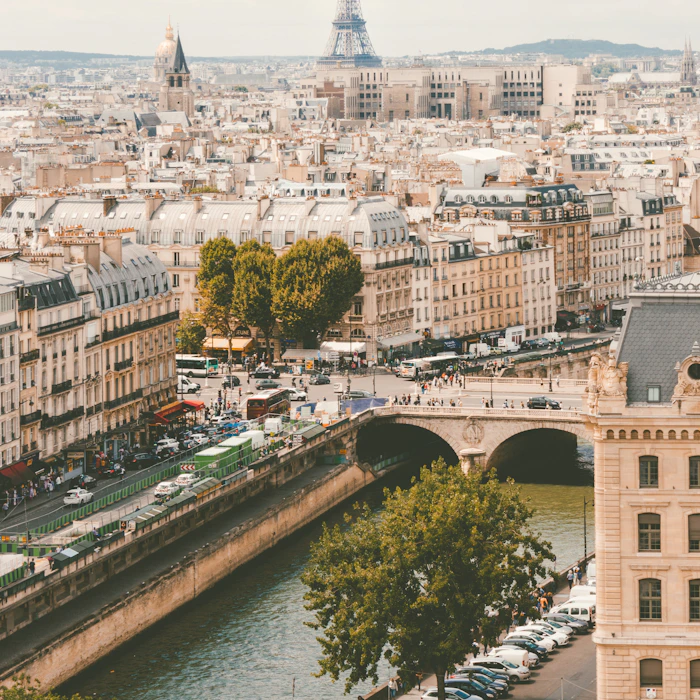
🇫🇷 France
France is generally safe for tourists, but petty crime like pickpocketing and bag snatching is common in major cities and tourist areas. Terrorism remains a risk, with occasional attacks targeting public spaces. Civil unrest can disrupt travel plans, so monitor news and avoid protests. While violent crime is relatively low, be cautious in isolated areas, especially at night. Familiarize yourself with local laws and customs to avoid cultural misunderstandings.
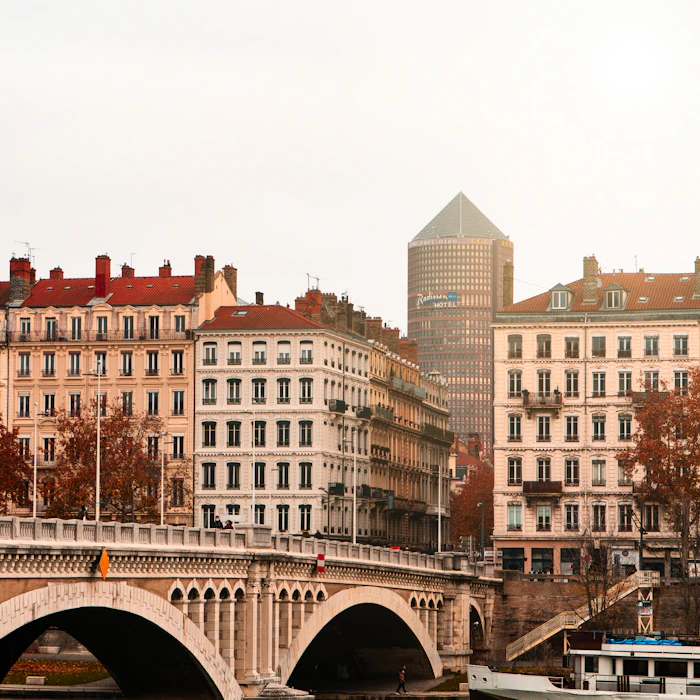
🇫🇷 Lyon, France
Lyon is generally a safe city for travelers, with low violent crime rates . However, be vigilant against petty crimes like pickpocketing in crowded areas and on public transport. Protests and civil unrest occasionally occur, so avoid demonstrations. Lyon has excellent medical facilities , but some vaccinations may be recommended depending on your travel plans. Overall, Lyon is a secure destination with a few reasonable precautions.
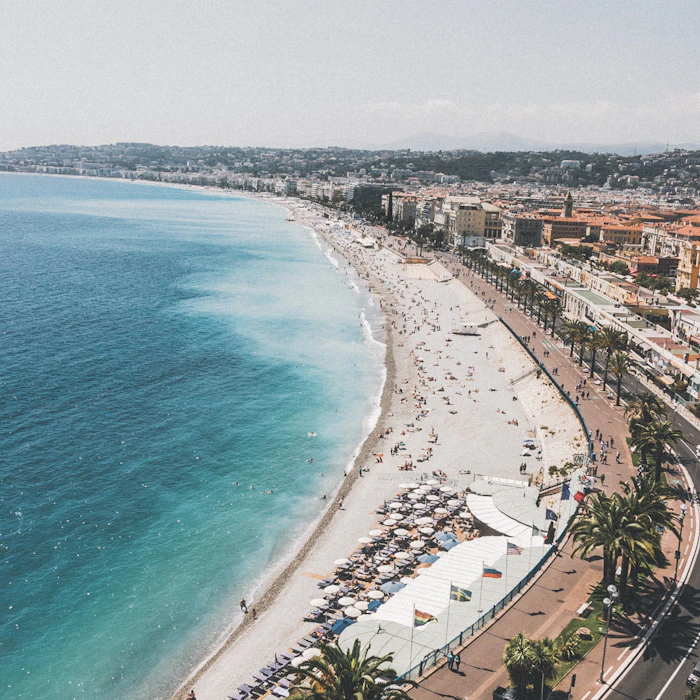
🇫🇷 Nice, France
Nice is generally safe for tourists, but petty crime like pickpocketing is common in crowded areas. While violent crime is rare, terrorist threats remain a concern in France. The city has good medical facilities, but travelers should take precautions against mosquito-borne diseases . Natural disasters are not a major risk, but flooding can occur during heavy rains. Public transportation is reliable, but road safety requires caution due to aggressive driving.
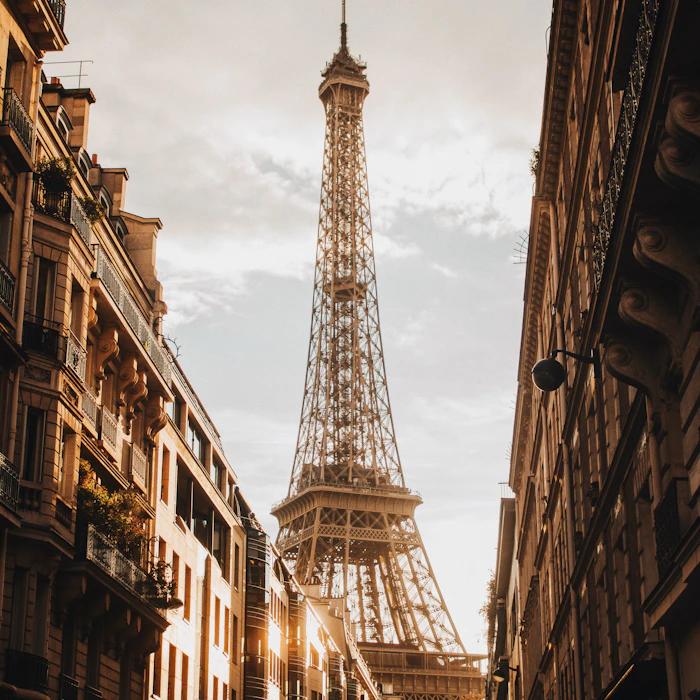
🇫🇷 Paris, France
Paris is generally safe for tourists, but petty crimes like pickpocketing and bag snatching are common in crowded areas. Remain vigilant in tourist hotspots and on public transportation. While the risk of terrorism exists, it's relatively low . Violent crime rates are also low , but disputes and scams occasionally target tourists. Avoid confrontations and exercise caution, especially at night in certain neighborhoods.
Download the App
Map, insights & support - vigilios is your personal safety companion.

The Best Time to Visit Marseille, France for Weather, Safety, & Tourism
The best times to visit Marseille for ideal weather are
April 9th to June 24th
August 13th to november 4th.
based on average temperature and humidity from NOAA (the National Oceanic and Atmospheric Administration). Read below for more weather and travel details.
Marseille Travel Guide
Temperature.
- Perceived Temperature
- Rain and snow
- Humidity and wind
- The busiest and least popular months
- Overall travel experience by time of year
Other Marseille Travel Info
Weather in marseille.
Average temperatures in Marseille vary greatly. Considering humidity, temperatures feel nice most of the year, excluding some cold weeks in the winter, with a very low chance of rain or snow throughout the year. The area is somewhat temperate — in the 52nd percentile for pleasant weather — compared to tourist destinations worldwide. Weeks with ideal weather are listed above . If you’re looking for the very warmest time to visit Marseille, the hottest months are July, August, and then June. See average monthly temperatures below. The warmest time of year is generally late July where highs are regularly around 87.7°F (30.9°C) with temperatures rarely dropping below 67.5°F (19.7°C) at night.
Marseille Temperatures (Fahrenheit)
Marseille temperatures (celsius), “feels-like” temperatures.
The way we experience weather isn’t all about temperature. Higher temperatures affect us much more at higher humidity, and colder temperatures feel piercing with high winds. Our perceived temperatures factor in humidity and wind chill to better represent how hot or cold the day feels to a person.
Marseille Perceived Temperature (F)
Marseille perceived temperature (c), average marseille temperatures by month.
Daily highs (averaged for the month) usually give the best indication of the weather. A significantly lower mean and low generally just means it gets colder at night.
Show Fahrenheit
Show celsius, precipitation (rain or snow).
If dry weather is what you’re after, the months with the lowest chance of significant precipitation in Marseille are July, August, and then June. Note that we define “significant precipitation” as .1 inches or more in this section. The lowest chance of rain or snow occurs around mid June. For example, on the week of June 18th there are no days of precipitation on average. By contrast, it’s most likely to rain or snow in late October to early November with an average of 2 days of significant precipitation the week of October 29th.
Chance of Precipitation
The graph below shows the % chance of rainy and snowy days in Marseille.
Snow on the Ground
The graph below shows the average snow on the ground in Marseille (in).
Average Rain and Snow by Month
Show inches, show centimeters, humidity and wind.
Marseille has some slightly muggy months, with moderately humid months on the other side of the year. The least humid month is July (44.5% relative humidity), and the most humid month is December (66.3%).
Wind in Marseille is usually moderate . The windiest month is May, followed by July and March. May’s average wind speed of around 10 knots (11.5 MPH or 18.5 KPH) is considered “a gentle breeze.” Maximum sustained winds (the highest speed for the day lasting more than a few moments) are at their highest in mid May where average top sustained speeds reach 20.7 knots, which is considered a fresh breeze.
Relative Humidity (%)
The graph below shows the average % humidity by month in Marseille.
The graph below shows wind speed (max and average) in knots.
Average Wind Speeds
Show wind speeds.
All wind speeds are in knots. 1 knot = 1.15 MPH or 1.85 KPH.
Show Relative Humidity by Month
Is it safe to travel to marseille.
Our best data indicates this area is somewhat safe. As of Dec 04, 2023 there are travel warnings for France; exercise a high degree of caution. Check this page for any recent changes or regions to avoid: Travel Advice and Advisories . This advisory was last updated on Nov 20, 2023.
The Busiest and Least Crowded Months
The busiest month for tourism in Marseille, France is June, followed by July and May. Prices for hotels and flights will be most expensive during these months, though you can save if you purchase well in advance. Tourists are unlikely to visit Marseille in November. Those willing to visit at these times will likely find it the least expensive month.
Estimated Tourism by Month
Most popular months to visit, overall marseille travel experience by season, spring (march through may).
Humidity and temperatures combine to make this season feel moderate. Highs range from 78.4°F (25.8°C) and 58.3°F (14.6°C) with warmer temperatures in the later months. Rain is rare with 3 to 4 days of significant precipitation per month. Spring is the second busiest for tourism, which makes it a good time for those looking for things to do.
Summer (June through August)
The middle-year months have very comfortable weather with high temperatures that are quite warm. These months see the least precipitation with 1 to 3 days of precipitation per month. June – August is the busiest season for tourism in Marseille, so lodging and other accommodations may cost more than usual.
Fall (September through November)
Fall daily highs range from 82.2°F (27.9°C) and 56.1°F (13.4°C), which will feel comfortable given the humidity and wind. It rains or snows a significant amount: 3 to 6 days per month. Tourism is the slowest during these months due to the weather, so hotels may be affordably priced.
Winter (December through February)
Weather is too cold this time of year in Marseille to be enjoyable for warm weather travelers. The average high during this season is between 59.3°F (15.2°C) and 51.4°F (10.8°C). On average, it rains or snows a fair amount: 3 to 5 times per month. These times of year are fairly slow with tourists.
Best Times to Travel › France › Marseille, France
Similar Destinations
- Biarritz City Centre, France
- Noailles, France
- La Castellane, France
- 5th Arrondissement, France
- Quartier du Panier, France
- Bordeaux City Centre, France
- Les Chartreux, France
- Le Pharo, France
- Roucas-Blanc, France
- Nimes City Centre, France
Popular Destinations
- San Francisco, CA, US
- Kaohsiung, Taiwan
- Warsaw, Poland
Book your individual trip , stress-free with local travel experts
- roughguides.com
- the-cote-dazur
- Travel guide
- Itineraries
- Local Experts
- Travel Advice
- Accommodation
Plan your tailor-made trip with a local expert
Book securely with money-back guarantee
Travel stress-free with local assistance and 24/7 support
My niece and I attended this terrific workshop. We learned a lot and had tons of fun. The bread and pastries were amazing. It was great to get behind the s...
In recent years Marseille has undergone a renaissance. France’s greatest port has shaken off much of its old reputation for sleaze and danger to attract a wider range of visitors. What they discover is an earthy, vibrant city, where the attractions of a metropolis meet those of the coast, its hitherto down-at-heel appearance scrubbed up since its stint as European Capital of Culture 2013. The march of progress is not relentless: occasionally last year’s prestige civic project still becomes this year’s broken, bottle-strewn fountain. But that’s Marseille. If you don’t like your cities gritty, it may not be for you. See beyond the intermittent squalor, though, and chances are you will warm to this cosmopolitan, creative place.
The Vieux Port
Tailor-made travel itineraries for france, created by local experts.

14 days / from 3829 USD
An active walking tour out of the way in France
Your trip starts with an in-depth introduction to France in Paris: several unique day excursions connect you with local Parisians to show you their city and way of life. Afterwards continue south to start a few days walking journey through Southern France before ending around Avignon.

10 days / from 2392 USD
Southern France – Walks in the Alpilles and Lavender fields
Start your tour in the coastal city of Marseille, exploring Cassis on the way. Around the Alpilles in Provence, you will be provided with detailed walking materials to explore the area on foot, from both Les Baux and St Remy. End your tour in famous Avignon.

12 days / from 2924 USD
Tasting Eastern France
A delicious yet active journey through Eastern France. Start your trip in Lyon with some unique food tours before setting off on a 4-day walk across the Beaujolais region. Almost every day ends with a wine tasting in your guesthouse, soothing for body and soul.
Brief history
Founded by the Greeks some two and a half millennia ago, the most renowned and populated metropolitan area in France after Paris and Lyon has both prospered and been ransacked over the centuries. It has lost its privileges to French kings and foreign armies, recovered its fortunes, suffered plagues, religious bigotry, republican and royalist terror and had its own Commune and Bastille-storming. It was the march of Marseillaise revolutionaries to Paris in 1792 that gave the Hymn of the Army of the Rhine its name of La Marseillaise , later to become the national anthem. Occupied by the Germans during World War II, it became a notably cosmopolitan place in the postwar years, when returning pieds noirs (European settlers from Algeria) were joined by large communities of Maghreb origin and by migrants from the Comoros archipelago, a former French colony in the Indian Ocean.
The cafés around the Vieux Port , where glistening fish are sold on the quay straight off the boats, are wonderful spots to observe the city’s street life. Particularly good in the afternoon is the north (Le Panier) side, where the terraces are sunnier and the views better. A free ferry shuttles across the port from the hôtel de ville on the north side to the quai de Rive Neuve opposite. Immediately to the north of the Vieux Port beyond the Fort St-Jean, the Esplanade du J4 is the focus of a new cultural quarter.
Two fortresses guard the harbour entrance. The construction of St-Nicolas , on the south side of the port, represented the city’s final defeat as a separate entity: Louis XIV ordered the new fort to keep an eye on the city after he had sent in an army, suppressed the city’s council, fined it, arrested all opposition and set ludicrously low limits on Marseille’s subsequent expenditure and borrowing.
Discover more places in France
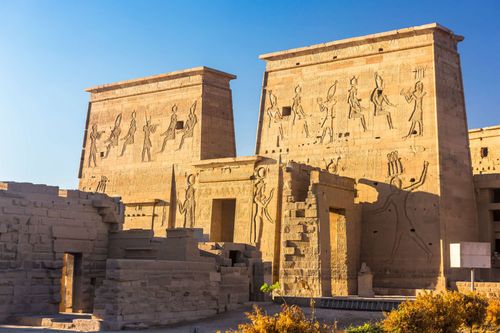
- Travel Guide Morocco
- Travel Guide Namibia
- Travel Guide South Africa
- Travel Guide China
- Travel Guide India
- Travel Guide Indonesia
- Travel Guide Japan
- Travel Guide Laos
- Travel Guide Malaysia
- Travel Guide Myanmar (Burma)
- Travel Guide Nepal
- Travel Guide Philippines
- Travel Guide Singapore
- Travel Guide South Korea
- Travel Guide Sri Lanka
- Travel Guide Taiwan
- Travel Guide Thailand
- Travel Guide Australia
- Travel Guide Fiji
- Travel Guide New Zealand
- Travel Guide Belize
- Costa Rica Travel Guide
- Travel Guide Cuba
- Travel Guide Guatemala
- Travel Guide Honduras
- Travel Guide Jamaica
- Travel Guide Nicaragua
- Travel Guide Panama
- Travel Guide Puerto Rico
- Travel Guide Trinidad and Tobago
- Travel Guide Albania
- Travel Guide Austria
- Travel Guide Belgium
- Travel Guide Bosnia-Herzegovina
- Travel Guide Bulgaria
- Travel Guide Cyprus
- Travel Guide Czechia (Czech Republic)
- Travel Guide Denmark
- Travel Guide England
- Travel Guide Estonia
- Travel Guide Finland
- Travel Guide France
- Travel Guide Germany
- Travel Guide Greece
- Travel Guide Hungary
- Iceland Travel Guide
The Rough Guides to France and related travel guides
In-depth, easy-to-use travel guides filled with expert advice.

Find even more inspiration here

Planning your own trip? Prepare for your trip
Use Rough Guides' trusted partners for great rates
written by Rough Guides Editors
updated 26.04.2021
Ready to travel and discover France?
Get support from our local experts for stress-free planning & worry-free travels.
- Travel advice
- Where to stay
France Travel Blog
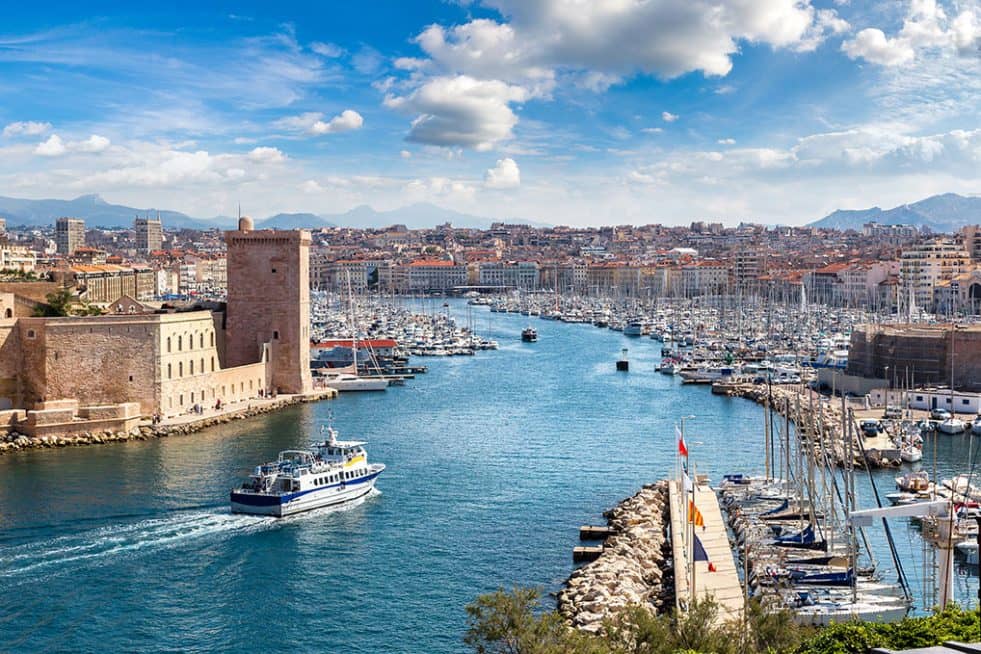
Marseille Travel Guide
Are you planning to visit France without a trip to the city of Marseilles? You might want to check this Marseille Travel Guide and include this breathtaking port city in your itinerary. With a busy harbor and vibrant urban vibe, Marseille emits an irresistible appeal to tourists from all over the world; that is what you might need to feed your travel inclination. Being the country’s oldest city and trailing Paris as the second largest, Marseilles has lots to offer from history and arts to sumptuous cuisines to peachy beaches.
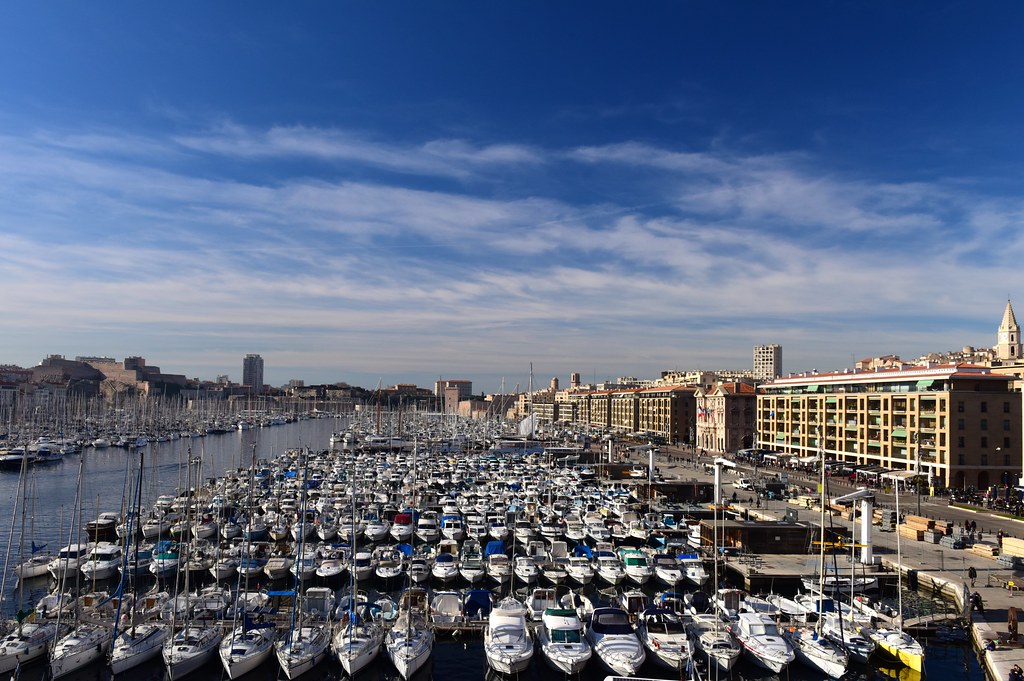
Specially poised, its gorgeous seaside scenery is strikingly beautiful. Whether strolling in an old street or feeling the refreshing breeze that is always imposing, visitors are close to the tranquil blue waters everywhere in the city. Marseille is a culturally diverse and colorful city with a multiethnic heritage soul. Therefore, you will have the chance to experience not French culture alone but a potpourri of cultures. Its sizeable community of North Africans lends credence to this. I hope this Marseille Travel Blog will help you make the most out of your trip.
Here Are Some Marseille Travel Tips for a Fascinating Travel Experience:
Basilique notre-dame de la garde.
Situated in a breathtaking top location, this humongous church stands on the peak of Marseille as its most prominent landmark. From almost anywhere throughout the city, you can see the church’s structure resting where it is. It used to be an observation point in ancient times, and it also housed a pilgrimage chapel. The Basilique Notre-Dame de la Garde today is a beacon for the faithful, with an incredible glided Madonna crowning the belfry.
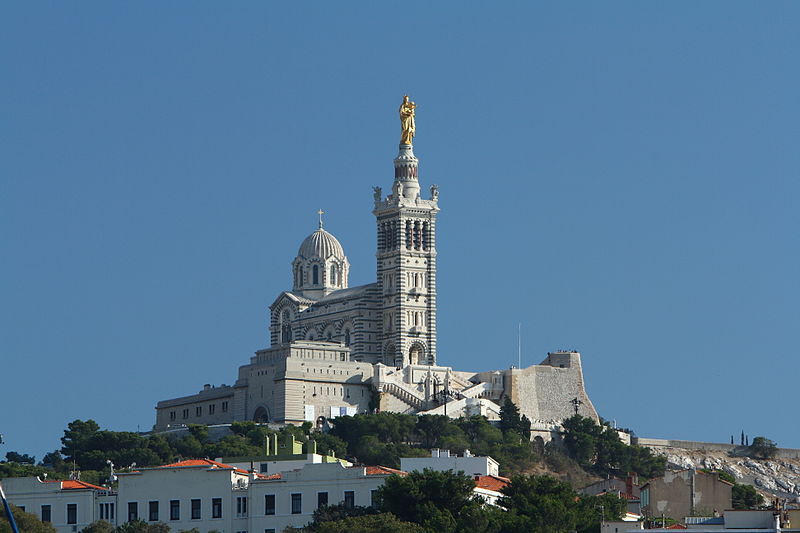
It was built between 1853-1864, lavishly styled with Neo-Byzantine interior of light and dark marble arches that support glided mosaic cupolas. In its crypt, you will find votive tablets and model aircraft given by aviators. After viewing the magnificence of the interior, visitors can also spend some time on the fantabulous terrace. The panorama extends from the red tops of Marseille’s buildings and the harbor to the Frioul Islands in the Mediterranean Sea; thereby offering a splendid view.
>>Also Read: Must-See Cathedrals in France
Witness History at The Vieux Port (Old Harbor)
The Vieux Port is the symbol of Marseille’s origin. It is where the city started off as a Greek port around 600BC. Circumvented by calm, serene blue waters, the Old Port is situated in the West of Marseille near the Canebière Boulevard. A walk around this old harbor will give visitors a rare feel for the city’s lively Mediterranean atmosphere.
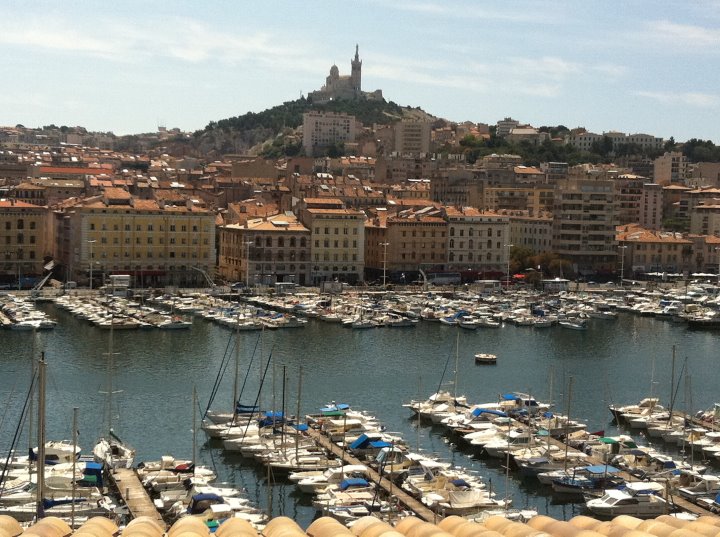
The thriving waterfront is also regarded as the main attraction for visitors, and as many say, this area is the best place to find bouillabaisse. That is a flavorful seafood stew that is all a specialty of Marseille. Quai des Belges, on the east side of the harbor, hosts a fish market every morning. Used to be a major commercial port, today Vieux Port is majorly used by sports craft and fishing boats. And if Château d’If and the Calanques near Cassis are on your itinerary, the Old Port is a perfect launching point for ferries to sail to.
>> Day Trips From Marseille
Hear the Heartbeat of Le Panier (Old Town)
Brilliantly positioned on a hillside atop the Vieux Port is the Old Town. This lively neighborhood is often referred to as the historic center and cultural heart of Marseille. Inhabited since the Greeks settled there in 600BC, Le Panier is the city’s oldest quarter. With its steep, narrow winding streets and quaint pastel buildings, this quarter gives a peep into the enticing character of Marseille.
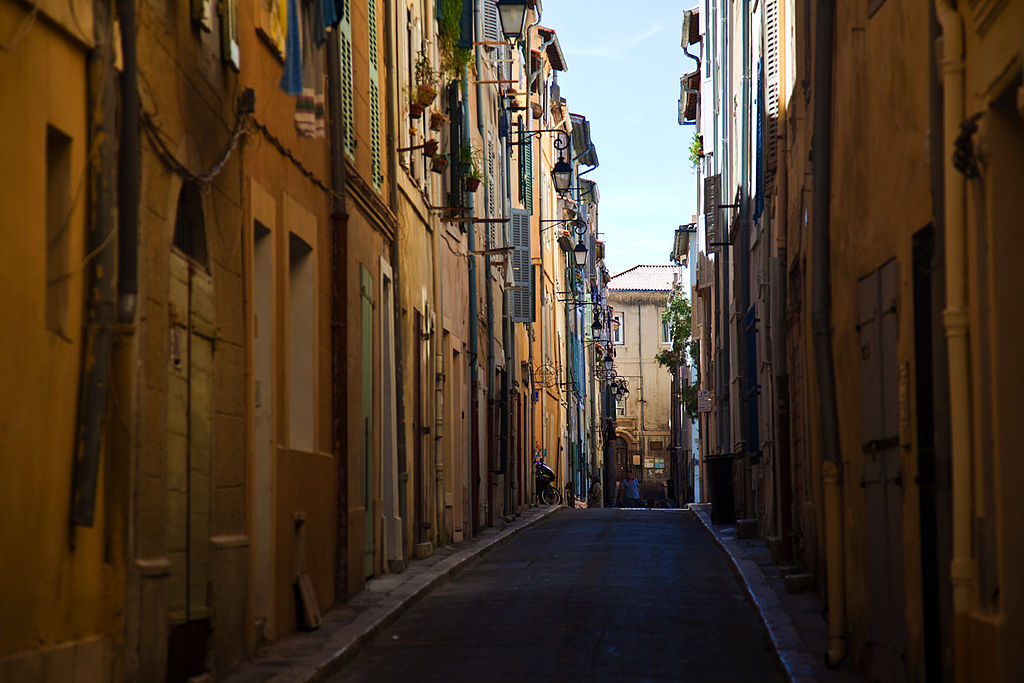
It used to be a working-class area but gentrified now. However, it still preserves many of its unique Algerian cuisine, art galleries, local artisan boutiques, and gourmet food shops. As a thriving residential area, its typical houses have shuttered window and lines of laundry that suggests family abode. Visitors to the Old Town can begin a walking tour on the north side of the Vieux Port harbor basin at the Quai du Port and then proceed to the La Canebiere, a bright and active boulevard. You will see several famous monuments like the Genoese-inspired Hôtel de Ville (Town Hall), which was built in the second half of the 17th century. Other landmarks worth seeing are Cathédrale de la Major and the Vieille Charité which boasts of a museum with exquisite modern artworks.
>> Most Famous Monuments in France >> Hotels Near Vieux Port in Marseille >> How To Get From Paris To Marseille
Appreciate Nature at the Calanques National Park
The city’s southern and eastern suburbs are located in an area of amazing natural beauty. The Calanques are rocky white limestone cliffs and creeks that reach astonishing heights and descends sharply to the sea. Whether by land or sea, nature lovers would adore this national park for its unique natural compositions and craggy elegance.
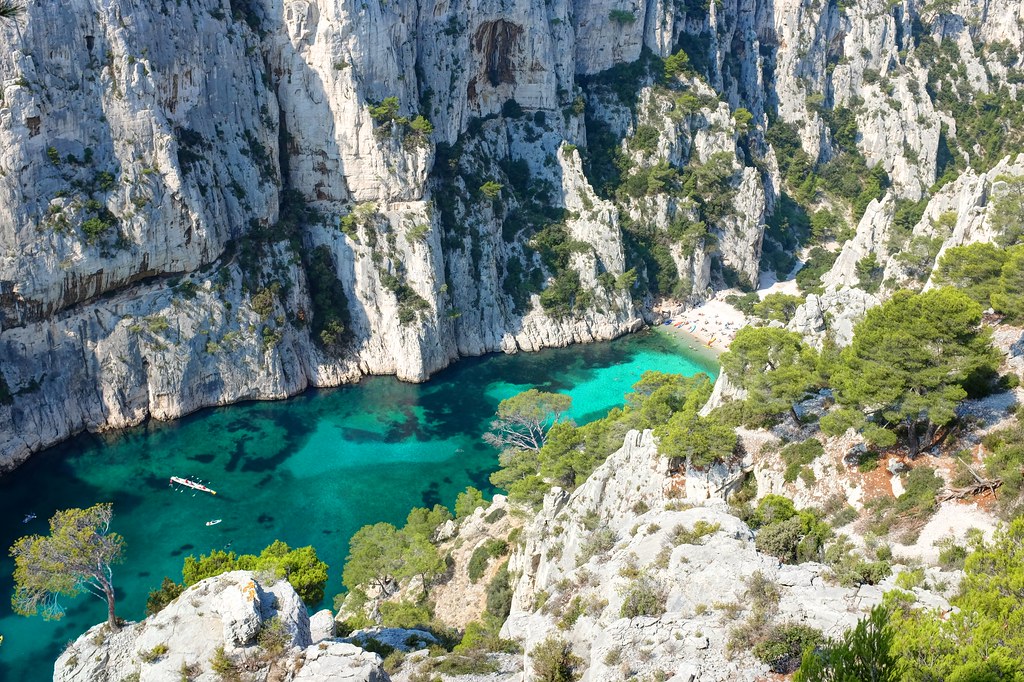
You can hike as well, and if you do, you might need a courage spirit, as the GR 98 from Marseille to Cassis usually takes about 11 hours as it leads you into some tough country. However, the captivating scenery evens up for the toil. Also, some mini-cruises leaves from the old port and guided kayaking adventures. Sounds very much like fun, doesn’t it?
Admire the Stade Vélodrome
Marseille locals and Olympique de Marseille, the city’s major football club, are two inseparable lovers. Make a stop at the city’s football spiritual home, the sublime Stade Vélodrome. Designed by Henri Ploquin in 1937, the stadium has a 67,000-plus capacity. And even before the extensive renovation, it underwent in the build-up to Euro 2016 football tournament, Stade Vélodrome is one of the most gripping football cathedrals in world football.

It is the largest football stadium in France and is protected from the fierce Mistral wind by a huge moving roof. Although a city icon, the stadium has endured cruel treatments from the city and Olympique de Marseille’s fans. You will learn all you need to know the stadium on an hour-long tour. You will also be seeing the dressing rooms, the terraces’ peak, and the pitch-side.
>> Areas To Avoid In Marseille
Stop for a Delicious Bouillabaisse Experience
Add taste to your tours as you indulge Marseille’s very own bouillabaisse. It is a fish and seafood stew that is usually made with lean fish and have little market value but are better when cooked down, like scorpionfish, conger and sea robins. These are stewed with wine, saffron, and olive oil, although the remainder of the recipe varies from one restaurant to another.
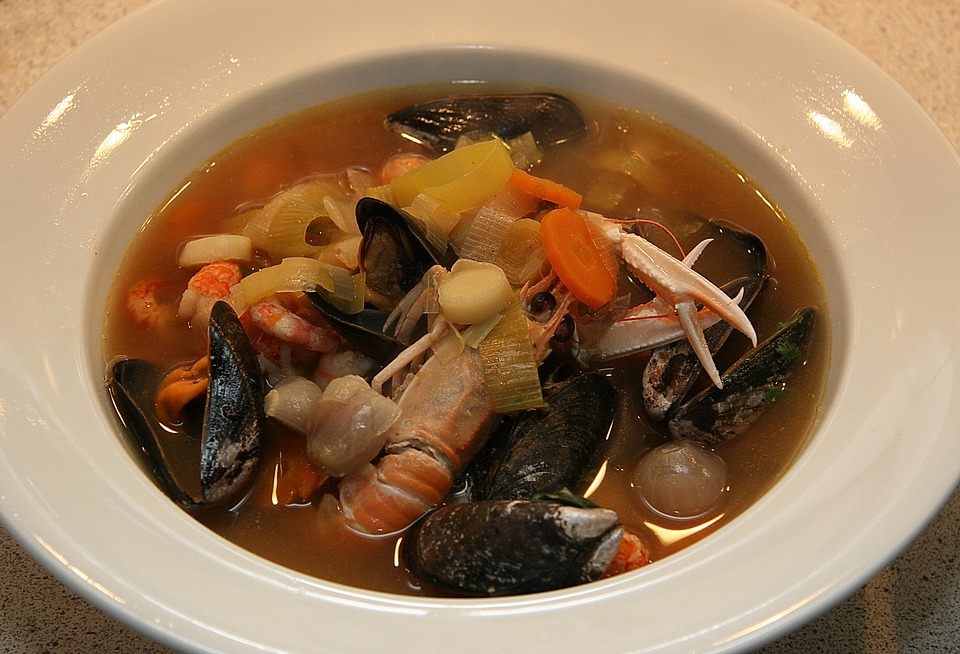
A common feature of this dish is rustic bread smothered with rouille- a type of attractive mayonnaise and immersed in the soup. Bouillabaisse goes best with white wines from the Rhône Valley or Languedoc-Roussillon. And to wrap it up, you can go the French way as you take navettes, cute boast-shaped biscuits in a variety of flavors, from anis to chocolate.
Marseille Hotels
Golden tulip villa massalia.
Located at Place Louis Bonnefon, the Golden Tulip Villa Massalia is a high-standing hotel five minutes from the Prado beach. The hotel offers many luxury services to visitors, to make their stay a momentous one. You can enjoy the outdoor swimming pool, or the oriental spa Le Siwa, which offers massages and beauty cares with natural oils, a sauna, a fitness room, a Jacuzzi, and a hammam.
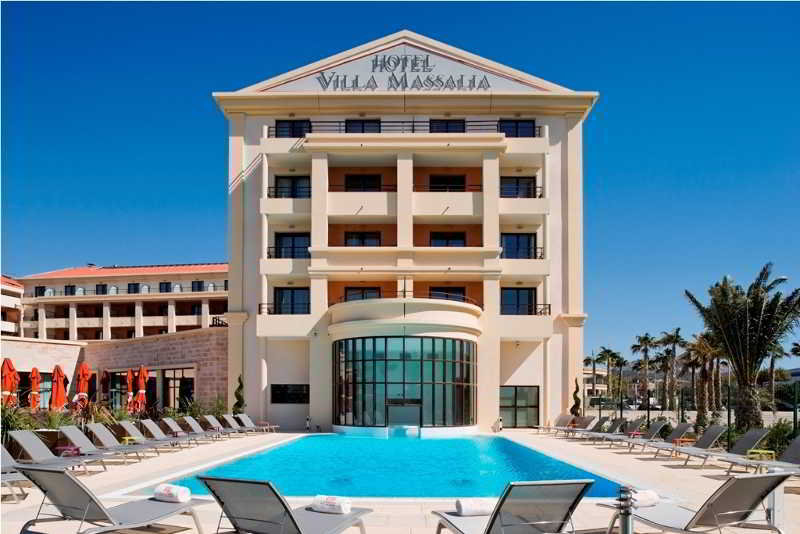
The Golden Tulip also has a brilliant array of gastronomic options. For example, the Yin-Yang restaurant has Mediterranean foods with a view from the terrace overlooking Borély Park, and the Asian bar Chang’An offers cocktails and snacks. In addition, the rooms come with air conditioners, free Wi-Fi and a television. Though not available to every room, on request, you can book a room with a balcony or terrace that has a great view of the sea.
Les Chambres de Jeannette
Situated in the 9th district of the city, and ten minutes away from the Stade Velodrome stadium, Les Chambres de Jeannette offers you home away from you. It welcomes visitors with the hospitality and spontaneity of a guesthouse. Sainte-Marguerite Dromel metro stations are also 200 meters away and give you access to the heart of the city and the Vieux Port in a timely fashion.
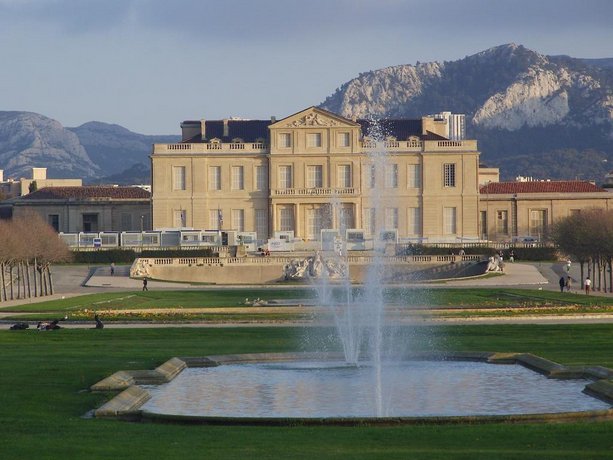
In this hotel, all the rooms come with a soundproof system and the internet is free. Other features are; a television, a private bathroom, and aircon, with a design and modern décor. Some do have a living room as well. The customer experience here is topnotch. As a plus, the hotel’s staff knows the city incredibly well. Hence, they will not hesitate to help if you need it.
The Ryad Boutique Hotel
Looking to change the environment or just in need of premium luxury, Ryad Boutique hotel is the place to be. Located in the first district of Marseille, it is only 10 minutes’ walk away from the Saint Charles railways satiation. This is a Moroccan hotel in every sense of the word: from its interior décor to its restaurant’s menu. The restaurant is usually opened from Thursday to Saturday, and they serve mint tea, fruit juices, and delicacies every day.
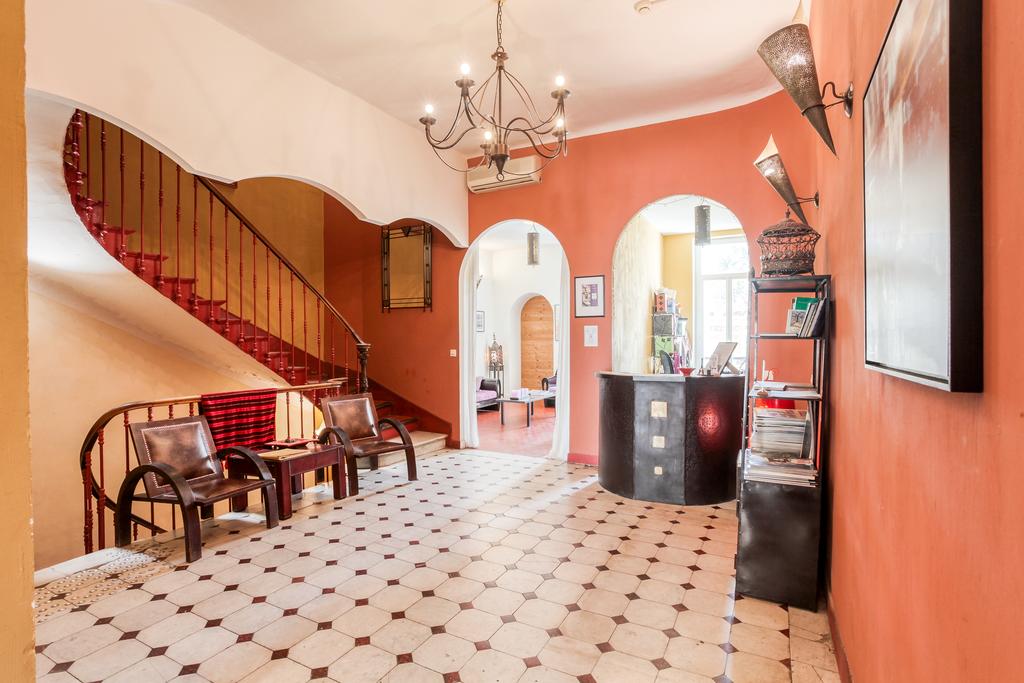
Ryad boutique hotel’s rooms have a unique way to impress visitors with their decorations. The rooms are with air conditioners and a private bathroom. For the bon vivant, they can dine and have a swell time in the hotel’s garden- where nature meets pleasure.
Marseille Beaches
Do relax at beaches in the city which all offer pleasant Mediterranean weather, closeness to the allure of the old port, and a variety of pebbly or sandy beaches. And while other beaches at the French Riviera have more charm than the ones at Marseille, the city’s own is well worth a morning or afternoon of sunbathing or swimming and diving.
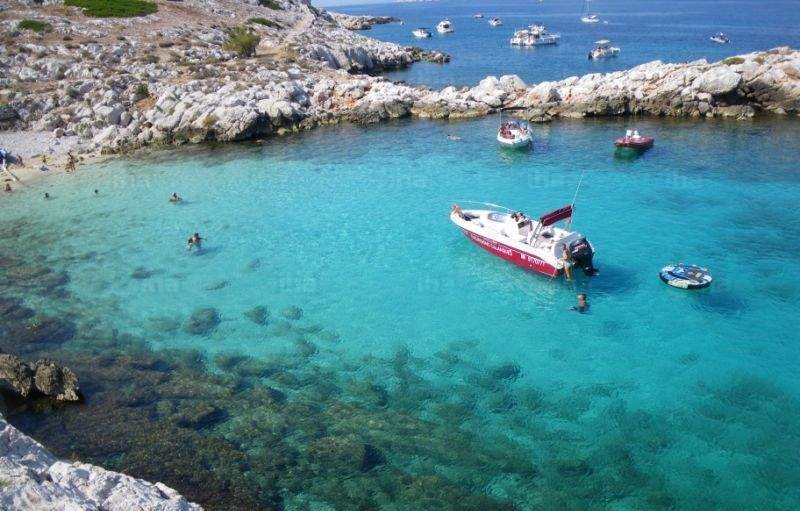
>> Things To Do In Marseille
Below Are Some Of The Best Beaches In Marseille
Plage du prado.
Plage du Prado enjoy the titles of the most popular and the main beach in Marseille. You can take a bus or taxi from the central part of Marseille to convey you to this beautiful and exciting beach. Accommodation ad relaxation is common themes here as you will find bars and restaurants close to the beach. More so, its attention-grabbing credentials won the beach the 2008 FIFA Beach Soccer World Cup hosting right. Major sports events in beach volleyball, football, and other sports have all been hosted on Plage du Prado’s sandy areas in recent times.
Plage Escale Borely
This somewhat pebbly beach south of downtown Marseille in to perfect for lounging around the sand. However, it is the place to visit for windsurfing during summer and surfing during winter. During winter there are usually lovely waves, but there is a lot of competition to catch them. By going there on a weekday, you avoid the crowds who might want the waves too. Showers, restaurants are among amenities in place at Plage Escale Borely.
Plage de la Pointe Rouge
Plage de la Pointe Rouge is one of Marseille’s beautiful sand beaches located in the south of the city. Blessed with a stunning ocean view, it is an idyllic destination for families and children. Here the sand is soft and comfortable as the ocean floor shelves downwards, making the water shallow and warm. In summer, Plage de la Pointe Rouge tends to be full of people as restaurants and food stands are all around the beach. During such times, it is difficult to find a parking space. For lovers of kite-surfing, they can rent a paddle-boat to get on the water. Safety is paramount here; it is why you will see lifeguards around.
Plage des Catalans
This is another beach you will love to visit. It is the closest beach to the Old Port of Marseille, and famous for its convenience. Though close to the buildings of the town, the sand is pleasant. You will find a beach volleyball court, showers, and lifeguards, and restaurants by the roadside. Granted the view is probably not the best of Marseille’s beaches because it is surrounded by roads and buildings. However, you can look out on the ocean and swim in the clear blue waters.
>> Best Beaches in France >> Beaches On The French Mediterranean >> Best Nudist Beaches in France
Marseille Travel Blog – Conclusion
Marseille is the second-largest city in France and is located on the Mediterranean Sea in the province of Provence. It is 771km (479 miles) south of Paris; 187km (116 miles) southwest of Nice and 31km (19 miles) south of Aix-en-Provence. It is one of the most important cities because it is the largest commercial port in France. Marseille is the capital of the Provence-Alpes-Côte d’Azur région and is surrounded by many historical buildings. Despite this, Marseille is a modern city with charming beaches and shopping centers.
Marseille was known as Phocee; this was because of its founders, the Phoceans. The city then became a commercial port having the famous ‘Savon de Marseille’ as one of its products. It also became important as a crossroad for many ships in the Mediterranean.
This is a very elegant city, and now that can easily visit from Paris, it is much more accessible for visitors. As it has always been one of the main points of entry to France, Marseille has attracted many immigrants -mainly from North Africa-, making it into a multicultural melting pot. Marseille has some problems in the past with corruption, the Mafia, crime, racial discrimination, and unemployment, mostly in the poorer, immigrant neighborhoods. Nowadays, though, the city is in a renaissance period and is now one of the most visited cities in France.
Marseille is definitely a city worth visiting. It offers some outstanding architectural pieces, unique cuisine and one of the oldest ports in Europe that you can enjoy. Do not forget to put Marseille in your itinerary for at 2-3 days. There are also a lot of activities you can participate in not available in any other part of France.
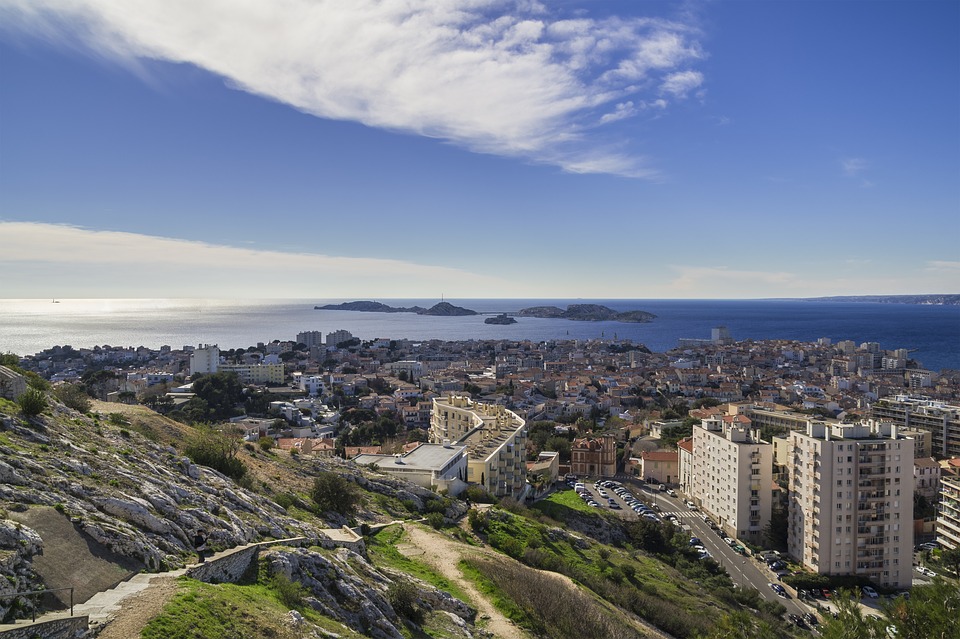
Do you have anything else to add in this Marseille Travel Guide? Leave your comments down below!
Peter is the editor of France Travel Blog. He has traveled to France many times and is ready to share the knowledge in this travel guide for France.
Related Posts
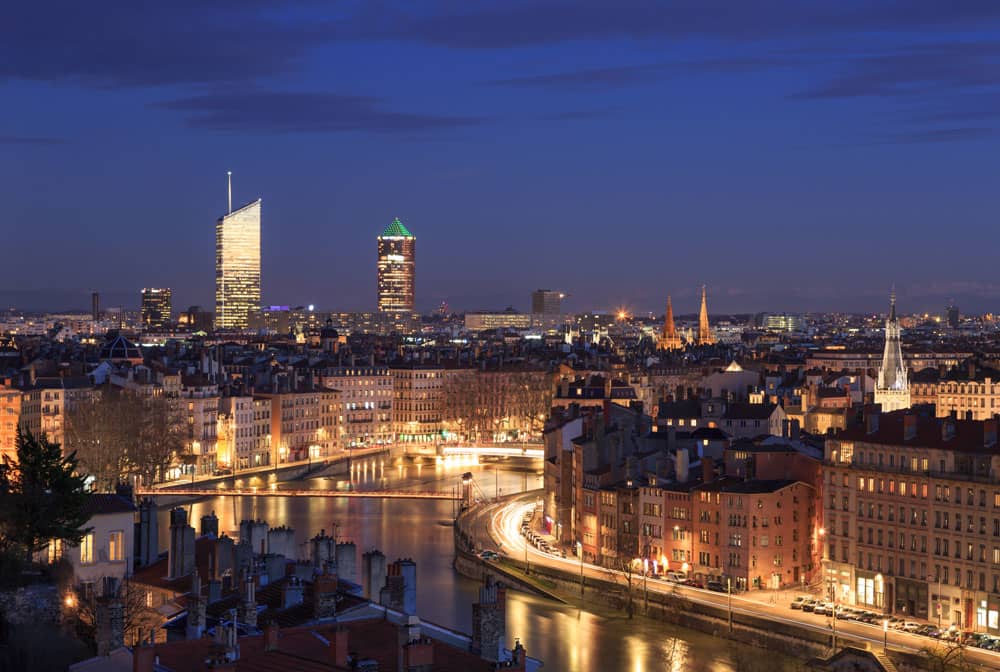
Lyon Travel Guide

Gordes Travel Guide: Tips for Visiting Gordes
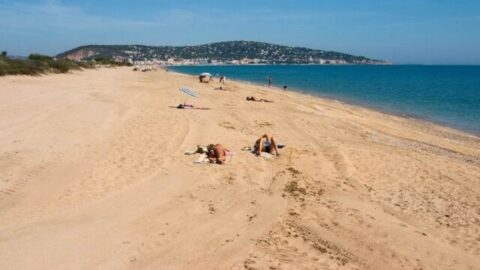
Best Beaches near Sete

10 Places To Visit On Your Next Europe Travel
Recent posts.
- Marseille Unveiled: Immerse Yourself in the Charm of the Mediterranean with a Captivating City Break
- A Beginner’s Guide to Road Cycling
- 5 Things to Look for When Buying Digital Cameras
- How to Take High-Quality Photos: Essential Tips And Composition Rules to Consider
- Can You Drink Tap Water In Paris? (2023)
- Entertainment
- Things To Do
- Travel Guides
- Travel Ideas
Social Links

What is Brittany Known For?

Is Avignon Worth Visiting?

Is Amboise Worth Visiting?

Is Perpignan Safe?

Best Things To Do In Paris
Hit enter to search or ESC to close.
- Skip to main content
- Skip to "About this site"
Language selection
Search travel.gc.ca.
Help us to improve our website. Take our survey !
COVID-19: travel health notice for all travellers
France travel advice
Latest updates: The Need help? section was updated.
Last updated: April 19, 2024 08:45 ET
On this page
Safety and security, entry and exit requirements, laws and culture, natural disasters and climate, france - exercise a high degree of caution.
Exercise a high degree of caution in France due to the elevated threat of terrorism.
Back to top
"Attack emergency" alert
On March 24, 2024, the Prime Minister of France raised the security threat level within the “Vigipirate” plan to “urgence attentat” (“attack emergency”). This is the highest level in the Vigipirate plan, a set of measures to prepare and protect the population and public places. The decision was made following a terrorist attack in Moscow claimed by the Islamic State.
Always be aware of your surroundings when in public places. Be particularly alert during public gatherings and demonstrations.
If you are in France:
- expect enhanced security measures and an increased police presence at the border and in public places
- monitor local media for the most recent information
- follow the instructions of local authorities
Vigipirate plan – Government of France (in French)
Olympic and Paralympic Games
The Olympic Games will take place in Paris from July 26 to August 11, followed by the Paralympic Games from August 28 to September 8, 2024.
Public events will take place across France starting on May 8 and will continue until the opening ceremony.
If you plan to travel to France during this time, plan your travel accordingly.
During the Olympic Games, especially in Paris, you should expect:
- an increased presence of security forces
- major disruptions to traffic and movement
- large crowds and public gatherings
Useful links
- Games-related information and advice for Canadians
- Olympic and Paralympic Games Paris 2024 – official site
There is a threat of terrorism in Europe. Terrorists have carried out attacks in several European cities.
Over the past few years in France, several opportunistic and premeditated attacks have occurred. These have resulted in many deaths and injuries. Further attacks are likely.
Vigipirate plan
The Vigipirate plan is a set of measures established by the French government to prepare and protect the French population, infrastructure and institutions in the event of an attack. The aim is also to allow rapid deployment of intervention measures if necessary.
As part of this plan, the government maintains a 3-level public alert system for terrorism. Changes in the threat level are communicated online and through local and national media.
Operation sentinelle
Operation Sentinelle allows the deployment of military brigades in public places to patrol and deter terrorist acts. Enhanced security measures have been deployed in various strategic locations, including:
- transport hubs
- public places
- tourist locations, especially in Paris
Expect an increased police or military presence in public places, including some tourist locations, particularly in Paris.
Attacks can occur anywhere. Terrorists may target:
- government buildings and those of local authorities
- schools/universities
- places of worship
- places dedicated to culture, such as exhibition galleries, museums, concert halls and theatres
- airports, railway stations and other transportation hubs and networks
- public areas such as tourist attractions, monuments, restaurants, bars, coffee shops, shopping centres, markets, hotels and other sites frequented by foreigners
While in France:
- always be aware of your surroundings when in public places
- be particularly vigilant if attending large gatherings such as sporting events and religious celebrations or other public celebrations
- Information on the terrorist threat in France - Ministry of the Interior (in French)
- How to react in case of a terrorist attack - Government of France (in French)
- Social media accounts of the Ministry of the Interior - Ministry of the Interior (in French)
- Vigipirate – General secretary of defense and national security (in French)
Petty crime
Petty crimes, such as pickpocketing, and purse and mobile phone snatching are common.
Thieves are very skilled. They often act in groups and are often minors. They may use various techniques to divert your attention and steal your belongings.
Thieves are mainly active in large cities and busy places, such as:
- the main tourist sites
- department stores
- restaurants and patios
- hotel lobbies
- public transport, in particular the Paris metro and the Île-de-France regional express network (RER) lines linking the capital to its surroundings
Violent crimes
Violent crimes are rarer, but still occur.
Tourists are sometimes victims of violent attacks by groups of young people who want to rob them. These attacks usually occur :
- around major tourist attractions
- near railway stations
- on trains of the Île-de-France regional express network (RER) connecting the capital to its surroundings
Assaults can also occur outside night-time establishments and in more isolated areas at night.
Residential break-ins
Residential break-ins occur, especially in large cities and coastal areas. Burglars sometimes target houses or holiday rental apartments.
- be vigilant, particularly when approached by strangers
- ensure that your belongings, including passports and other travel documents, are secure at all times
- avoid showing signs of affluence and carrying large sums of cash
- limit the use of mobile phones on public transportation and in crowded areas to ensure you remain aware of your surroundings and to avoid attracting attention
- don’t keep your credit, debit cards and cash in the same place
- never leave your bags unsupervised
- choose well-secured accommodation and make sure you lock doors and windows at night and when you’re away
Parked vehicles and vehicles on the road
Vehicle break-ins are frequent. Theft of parked cars or their contents is particularly common on beach roads in the south of France and at highway rest stops throughout the country, especially during the summer, when there is a high number of travellers.
- Leave nothing in view in the vehicle
- Use secure parking facilities
- Be particularly vigilant when renting automobiles, as rented vehicles are a target of choice
Drivers are often tricked into stopping their cars by thieves who either obstruct the road or distract the driver by flashing their headlights. They may also pretend that you have a flat tire or even puncture a tire themselves. Once the vehicle is stopped, the thieves seize the opportunity to steal a bag or other valuable objects.
- Beware of any person who waves at you to stop on the highway
- Be especially vigilant when stopped at traffic lights, as bags are often snatched from the front passenger seat by thieves travelling on scooters
- Keep windows closed and doors locked at all times
Victims of crime
If you’re a victim of theft, go to the nearest police station to report the crime. Keep a copy of your theft report, as you will need it if you wish to make a claim to your insurer. If the incident takes place in the metro, a metro officer can direct you to the nearest police station.
You can complete an online pre-complaint for certain types of minor crime, such as property theft, before going to the police station. This may speed up the process once you get there.
- Prevention advice for tourists - Préfecture de police de Paris
- Online pre-complaint - Ministry of the Interior (in French)
Bomb threats
Since October 2023, there have been a number of bomb threats sent to public places across France.
Bomb threats and hoaxes can target any location, including:
- tourist areas
- shopping centres
- transportation hubs
- government facilities
- religious institutions
If you are in an area targeted by a bomb threat, follow the instructions of local authorities including evacuation orders.
Credit card and ATM fraud
Credit card and ATM fraud occurs.
When using debit or credit cards:
- pay careful attention if other people are handling your cards
- use ATMs located in public areas or inside a bank or business
- avoid using card readers with an irregular or unusual feature
- cover the keypad with one hand when entering your PIN
- check for any unauthorized transaction on your account statements
Cybercrime occurs. Perpetrators may compromise public Wi-Fi networks to steal credit card or personal information.
- Avoid using unsecured public Wi-Fi networks
- Avoid making purchases on unencrypted websites
- Be cautious when posting information on social media
- Be particularly vigilant when contacting or meeting individuals known over the internet
Overseas fraud
Demonstrations
Demonstrations occur frequently. They are usually planned as permission from the local authorities is required. However, unauthorized and spontaneous demonstrations also take place.
Even peaceful demonstrations can turn violent at any time. They can also lead to disruptions to traffic and public transportation.
Radical activists and vandals have a history of using aggressive and violent tactics during demonstrations in order to cause damage and provoke a strong response from the police. They sometimes throw stones, smoke grenades, bottles and other debris at rallies. The police normally respond with tear gas to disperse the crowds.
- Avoid areas where demonstrations and large gatherings are taking place
- Follow the instructions of local authorities
- Monitor local media for information on ongoing demonstrations
Mass gatherings (large-scale events)
Strikes and pressure tactics occur regularly, particularly in key sectors such as transport. These strikes can sometimes complicate travel and disrupt public services.
- Consult local media to be aware of strikes that may affect your stay or travel plans
- In the event of a transport strike, plan extra time to get to your destination
Swimming, boating and water safety
Coastal waters can be dangerous. Always obey warning flags at beaches.
The main warning flags used in France are:
- Green: calm waters, swimming is allowed
- Yellow: agitated waters, swim with precautions
- Red: dangerous waters, swimming is prohibited
- Purple: contaminated waters or presence of dangerous aquatic species, swimming is prohibited
In autumn and winter, be cautious when walking on the shore, as waves can be unpredictable, breaking further than expected and causing strong undertows.
- Avoid visiting beaches or coastal areas during periods of severe weather warnings
- Look out for signs warning of cliff erosion and falling rocks
- Don’t dive into unknown waters, as hidden rocks or shallow depths can cause serious injury or death
- Exercise caution and follow the advice of the local authorities
Recreational boating
If you are planning to go boating:
- know the capacity of your boat (people and weight) and don’t exceed it
- know the navigation rules
- follow safe practices for all activities on the water: personal watercraft, water-skiing and towed devices, diving or swimming, fishing, etc.
- equip your boat with a VHF marine radio that will generate your position in case of emergency
- be prepared for emergencies
Search and rescue missions in France are carried out by the Regional Operational Surveillance and Rescue Centres (CROSS). In case of emergency, contact the centre on VHF radio channel 16 or by dialling 196.
- Surveillance and rescue at sea - Ministry of the Sea (in French)
- Water safety abroad
Mountain activities
Mountain activities, such as hiking, can be dangerous, especially if they are not well prepared. Trails are not always marked and weather conditions can change rapidly, even in summer.
In winter, heavy snowfall can make it difficult to reach some villages and ski centres. Roads may become impassable. There is also a risk of avalanches, some of which can be fatal.
If you intend to go hiking, mountaineering or skiing:
- never do so alone and do not part with your hiking companions
- buy travel insurance that includes helicopter rescue and medical evacuation
- ensure that your physical condition is good enough to meet the challenges of your activity
- do not venture off marked trails or slopes
- ensure that you’re adequately equipped
- stay informed about weather and other conditions that may pose a hazard
- inform a family member or friend of your itinerary
- know the symptoms of acute altitude sickness, which can be fatal
- obtain detailed information on your activity and on the environment in which you will be doing it before setting out
- Information on mountain conditions - Association nationale pour l'étude de la neige et des avalanches (ANENA) (in French)
- Specialised mountain units - Gendarmerie nationale (in French)
- Avalanche forecasts and warnings - European Avalanche Warning Service (EAWS)
Road safety
French roads are well maintained.
Drive carefully and respect the Highway Code.
Public transportation
Urban and intercity public transportation is reliable. When using these types of transport, make sure you validate your ticket and keep it until the end of your journey. The authorities carry out regular random checks and you may be fined if you do not have a validated ticket.
There is a problem of illegal taxis in Paris airports and train stations. These scammers charge much higher rates than the official ones.
- Ignore direct solicitations when leaving the airport or train station
- Use only official taxis or a trusted ride-sharing app
- Don’t share a taxi with strangers
We do not make assessments on the compliance of foreign domestic airlines with international safety standards.
Information about foreign domestic airlines
Every country or territory decides who can enter or exit through its borders. The Government of Canada cannot intervene on your behalf if you do not meet your destination’s entry or exit requirements.
We have obtained the information on this page from the French authorities. It can, however, change at any time.
Verify this information with the Foreign Representatives in Canada .
- Schengen area
France is a Schengen area country. Canadian citizens do not need a visa for travel to countries within the Schengen area. However, visa-free travel only applies to stays of up to 90 days in any 180-day period. Stays are cumulative and include visits to any Schengen area country.
If you plan to stay in the Schengen area for a longer period of time, you will need a visa. You must contact the high commission or embassy of the country or countries you are travelling to and obtain the appropriate visa(s) prior to travel.
- Foreign Representatives in Canada
Temporary border controls
The French government has reintroduced internal border controls at certain ports of entry. You may be required to pass through immigration controls when entering France, even if arriving from another Schengen area country.
Entry requirements vary depending on the type of passport you use for travel.
Before you travel, check with your transportation company about passport requirements. Its rules on passport validity may be more stringent than the country’s entry rules.
Regular Canadian passport
Your passport must be valid for at least 3 months beyond the date you expect to leave the Schengen area.
Passport for official travel
Different entry rules may apply.
Official travel
Passport with “X” gender identifier
While the Government of Canada issues passports with an “X” gender identifier, it cannot guarantee your entry or transit through other countries. You might face entry restrictions in countries that do not recognize the “X” gender identifier. Before you leave, check with the closest foreign representative for your destination.
Other travel documents
Different entry rules may apply when travelling with a temporary passport or an emergency travel document. Before you leave, check with the closest foreign representative for your destination.
- Foreign Representatives in Canada
- Canadian passports
Tourist visa: not required for stays up to 90 days in any 180-day period Long-stay or residency visa: required for stays longer than 90 days Work permit: required Student visa: required for stays longer than 90 days
More information on Visas - Government of France
Other entry requirements
Customs officials may ask you to show them a return or onward ticket and proof of sufficient funds to cover your stay.
Children and travel
To leave France, any child under the age of 18 who normally resides in France must be accompanied by at least one parent. Children travelling without at least one parent must be in possession of:
- an authorization to leave the country signed by one of the parents
- a photocopy of the signing parent’s identification
- More information on the authorization to leave the country - French administration services
- More about travelling with children
Yellow fever
Learn about potential entry requirements related to yellow fever (vaccines section).
Relevant Travel Health Notices
- Global Measles Notice - 13 March, 2024
- Zika virus: Advice for travellers - 31 August, 2023
- COVID-19 and International Travel - 13 March, 2024
This section contains information on possible health risks and restrictions regularly found or ongoing in the destination. Follow this advice to lower your risk of becoming ill while travelling. Not all risks are listed below.
Consult a health care professional or visit a travel health clinic preferably 6 weeks before you travel to get personalized health advice and recommendations.
Routine vaccines
Be sure that your routine vaccinations , as per your province or territory , are up-to-date before travelling, regardless of your destination.
Some of these vaccinations include measles-mumps-rubella (MMR), diphtheria, tetanus, pertussis, polio, varicella (chickenpox), influenza and others.
Pre-travel vaccines and medications
You may be at risk for preventable diseases while travelling in this destination. Talk to a travel health professional about which medications or vaccines may be right for you, based on your destination and itinerary.
Yellow fever is a disease caused by a flavivirus from the bite of an infected mosquito.
Travellers get vaccinated either because it is required to enter a country or because it is recommended for their protection.
- There is no risk of yellow fever in this country.
Country Entry Requirement*
- Proof of vaccination is not required to enter this country.
Recommendation
- Vaccination is not recommended.
* It is important to note that country entry requirements may not reflect your risk of yellow fever at your destination. It is recommended that you contact the nearest diplomatic or consular office of the destination(s) you will be visiting to verify any additional entry requirements.
About Yellow Fever
Yellow Fever Vaccination Centres in Canada
Tick-borne encephalitis (TBE) is a risk in some areas of this destination. It is a viral disease that affects the central nervous system (brain and spinal cord). It is spread to humans by the bite of infected ticks or occasionally when unpasteurized milk products are consumed.
Travellers to areas where TBE is found may be at higher risk during April to November, and the risk is highest for people who hike or camp in forested areas.
Protect yourself from tick bites . The vaccine is not available in Canada. It may be available in the destination you are travelling to.
Measles is a highly contagious viral disease. It can spread quickly from person to person by direct contact and through droplets in the air.
Anyone who is not protected against measles is at risk of being infected with it when travelling internationally.
Regardless of where you are going, talk to a health care professional before travelling to make sure you are fully protected against measles.
Hepatitis B is a risk in every destination. It is a viral liver disease that is easily transmitted from one person to another through exposure to blood and body fluids containing the hepatitis B virus. Travellers who may be exposed to blood or other bodily fluids (e.g., through sexual contact, medical treatment, sharing needles, tattooing, acupuncture or occupational exposure) are at higher risk of getting hepatitis B.
Hepatitis B vaccination is recommended for all travellers. Prevent hepatitis B infection by practicing safe sex, only using new and sterile drug equipment, and only getting tattoos and piercings in settings that follow public health regulations and standards.
Coronavirus disease (COVID-19) is an infectious viral disease. It can spread from person to person by direct contact and through droplets in the air.
It is recommended that all eligible travellers complete a COVID-19 vaccine series along with any additional recommended doses in Canada before travelling. Evidence shows that vaccines are very effective at preventing severe illness, hospitalization and death from COVID-19. While vaccination provides better protection against serious illness, you may still be at risk of infection from the virus that causes COVID-19. Anyone who has not completed a vaccine series is at increased risk of being infected with the virus that causes COVID-19 and is at greater risk for severe disease when travelling internationally.
Before travelling, verify your destination’s COVID-19 vaccination entry/exit requirements. Regardless of where you are going, talk to a health care professional before travelling to make sure you are adequately protected against COVID-19.
The best way to protect yourself from seasonal influenza (flu) is to get vaccinated every year. Get the flu shot at least 2 weeks before travelling.
The flu occurs worldwide.
- In the Northern Hemisphere, the flu season usually runs from November to April.
- In the Southern Hemisphere, the flu season usually runs between April and October.
- In the tropics, there is flu activity year round.
The flu vaccine available in one hemisphere may only offer partial protection against the flu in the other hemisphere.
The flu virus spreads from person to person when they cough or sneeze or by touching objects and surfaces that have been contaminated with the virus. Clean your hands often and wear a mask if you have a fever or respiratory symptoms.
In this destination, rabies may be present in some wildlife species, including bats. Rabies is a deadly disease that spreads to humans primarily through bites or scratches from an infected animal.
If you are bitten or scratched by an animal while travelling, immediately wash the wound with soap and clean water and see a health care professional.
Before travel, discuss rabies vaccination with a health care professional. It may be recommended for travellers who will be working directly with wildlife.
Safe food and water precautions
Many illnesses can be caused by eating food or drinking beverages contaminated by bacteria, parasites, toxins, or viruses, or by swimming or bathing in contaminated water.
- Learn more about food and water precautions to take to avoid getting sick by visiting our eat and drink safely abroad page. Remember: Boil it, cook it, peel it, or leave it!
- Avoid getting water into your eyes, mouth or nose when swimming or participating in activities in freshwater (streams, canals, lakes), particularly after flooding or heavy rain. Water may look clean but could still be polluted or contaminated.
- Avoid inhaling or swallowing water while bathing, showering, or swimming in pools or hot tubs.
Insect bite prevention
Many diseases are spread by the bites of infected insects such as mosquitoes, ticks, fleas or flies. When travelling to areas where infected insects may be present:
- Use insect repellent (bug spray) on exposed skin
- Cover up with light-coloured, loose clothes made of tightly woven materials such as nylon or polyester
- Minimize exposure to insects
- Use mosquito netting when sleeping outdoors or in buildings that are not fully enclosed
To learn more about how you can reduce your risk of infection and disease caused by bites, both at home and abroad, visit our insect bite prevention page.
Find out what types of insects are present where you’re travelling, when they’re most active, and the symptoms of the diseases they spread.
- In this country, risk of dengue is sporadic. It is a viral disease spread to humans by mosquito bites.
- Dengue can cause flu-like symptoms. In some cases, it can lead to severe dengue, which can be fatal.
- The level of risk of dengue changes seasonally, and varies from year to year. The level of risk also varies between regions in a country and can depend on the elevation in the region.
- Mosquitoes carrying dengue typically bite during the daytime, particularly around sunrise and sunset.
- Protect yourself from mosquito bites . There is no vaccine or medication that protects against dengue fever.
Zika virus is a risk in this country.
Zika virus is primarily spread through the bite of an infected mosquito. It can also be sexually transmitted. Zika virus can cause serious birth defects.
During your trip:
- Prevent mosquito bites at all times.
- Use condoms correctly or avoid sexual contact, particularly if you are pregnant.
If you are pregnant or planning a pregnancy, you should discuss the potential risks of travelling to this destination with your health care provider. You may choose to avoid or postpone travel.
For more information, see Zika virus: Pregnant or planning a pregnancy.
Animal precautions
Some infections, such as rabies and influenza, can be shared between humans and animals. Certain types of activities may increase your chance of contact with animals, such as travelling in rural or forested areas, camping, hiking, and visiting wet markets (places where live animals are slaughtered and sold) or caves.
Travellers are cautioned to avoid contact with animals, including dogs, livestock (pigs, cows), monkeys, snakes, rodents, birds, and bats, and to avoid eating undercooked wild game.
Closely supervise children, as they are more likely to come in contact with animals.
Person-to-person infections
Stay home if you’re sick and practise proper cough and sneeze etiquette , which includes coughing or sneezing into a tissue or the bend of your arm, not your hand. Reduce your risk of colds, the flu and other illnesses by:
- washing your hands often
- avoiding or limiting the amount of time spent in closed spaces, crowded places, or at large-scale events (concerts, sporting events, rallies)
- avoiding close physical contact with people who may be showing symptoms of illness
Sexually transmitted infections (STIs) , HIV , and mpox are spread through blood and bodily fluids; use condoms, practise safe sex, and limit your number of sexual partners. Check with your local public health authority pre-travel to determine your eligibility for mpox vaccine.
Medical services and facilities
Health care is excellent and available throughout the country. Up-front payment may be required.
Make sure you get travel insurance that includes coverage for medical evacuation and hospital stays.
Travel health and safety
Keep in Mind...
The decision to travel is the sole responsibility of the traveller. The traveller is also responsible for his or her own personal safety.
Be prepared. Do not expect medical services to be the same as in Canada. Pack a travel health kit , especially if you will be travelling away from major city centres.
You must abide by local laws.
Learn about what you should do and how we can help if you are arrested or detained abroad .
Transfer to a Canadian prison
Canada and France are signatories to the Convention on the Transfer of Sentenced Persons. This enables a Canadian imprisoned in France to request a transfer to a Canadian prison to complete a sentence. The transfer requires the agreement of both Canadian and France authorities.
This process can take a long time, and there is no guarantee that the transfer will be approved by either or both sides.
Penalties for possession, use or trafficking of illegal drugs are severe. Convicted offenders can expect jail sentences or heavy fines.
Drugs, alcohol and travel
Identity checks
You may be subject to identity checks during your stay in France.
Always carry valid identification such as a driver's licence, passport or a copy of it.
Keep photocopies or digital copies of the following documents, in case of loss or seizure:
- the identification page of your passport
- your birth certificate
- your Canadian citizenship card
- your driver’s licence
Keep originals and copies in separate safe locations.
Concealing your face in public places
In France, it’s illegal to cover your face in public places, including international airport arrivals areas.
Offenders risk a very high fine. There is no exemption for tourists or for religious reasons.
- Identity checks - French administration services
- Concealment of the face in public places - French administration services
Dual citizenship
Dual citizenship is legally recognized in France.
If you are a Canadian citizen, but also a citizen of France, our ability to offer you consular services may be limited while you're there. You may also be subject to different entry/exit requirements .
Travellers with dual citizenship
International Child Abduction
The Hague Convention on the Civil Aspects of International Child Abduction is an international treaty. It can help parents with the return of children who have been removed to or retained in certain countries in violation of custody rights. The convention applies between Canada and France.
If your child was wrongfully taken to, or is being held in France, and if the applicable conditions are met, you may apply for the return of your child to the French court.
If you are in this situation:
- act as quickly as you can
- contact the Central Authority for your province or territory of residence for information on starting an application under The Hague Convention
- consult a lawyer in Canada and in France to explore all the legal options for the return of your child
- report the situation to the nearest Canadian government office abroad or to the Vulnerable Children’s Consular Unit at Global Affairs Canada by calling the Emergency Watch and Response Centre
If your child was removed from a country other than Canada, consult a lawyer to determine if The Hague Convention applies.
Be aware that Canadian consular officials cannot interfere in private legal matters or in another country’s judicial affairs.
- List of Canadian Central Authorities for the Hague Convention
- International Child Abduction: A Guidebook for Left-Behind Parents
- Travelling with children
- The Hague Convention - Hague Conference on Private International Law
- Canadian embassies and consulates by destination
- Emergency Watch and Response Centre
You must be at least 18 years old to drive a car in France.
You should carry an International Driving Permit. You can drive with your Canadian licence for up to 1 year. If you stay in France, you will have to exchange your Canadian licence for a French licence.
Numerous roadside cameras have been installed to help enforce traffic regulations. You could receive heavy fines if you do not obey the speed limit or the Highway Code. Local authorities may also confiscate your driver’s licence.
Fines must generally be paid within 3 days. They may be increased in case of delay of payment.
A reflective vest and warning triangle are mandatory in all vehicles.
From November 1 to March 31, winter tires or chains are compulsory in some cities and regions in mountainous areas.
Priority to the right
The “priority to the right” system is in effect in France. Drivers must give way to vehicles approaching from the right at intersections, even on secondary roads. This is often a surprise to foreign drivers and results in accidents.
In general, traffic in a roundabout has priority over vehicles trying to enter it. Priority switches to vehicles from the left.
Low-emission zones
Some cities and territories have put in place low emission zones to reduce air pollution.
Access to these zones is restricted to vehicles that meet certain environmental standards. You may need to get a permit to drive in these areas.
- More information about road travel in France - European Commission
- Obligations to equip vehicles in winter - French administration services (in French)
- Air quality certificates: Crit'Air - Ministry of Ecological Transition (in French)
The currency of France is the euro (EUR).
If you are carrying €10,000 or more, or the equivalent in other currencies, you must make a declaration to customs when you enter or leave the European Union. It includes sums in:
- banknotes and coins
- bearer negotiable instruments such as cheques, travellers’ cheques, promissory notes and money orders
- bonds, shares
- gold coins with a gold content of at least 90 %
- gold bars, nuggets or clumps with a gold content of at least 99.5 %
- any other convertible asset
This does not apply if you are travelling within the European Union or in transit to a non-EU country.
EU cash controls - European Commission
There is a risk of avalanches in mountainous areas, which can cause fatal accidents. If you intend to ski or climb, find out about the weather and safety conditions and follow the advice given.
- Familiarise yourself with the avalanche risk levels - French administration services
There is a risk of seasonal flooding, particularly in areas along major rivers and streams. Flooding can hamper overland travel and the provision of essential services.
The French government has a flood forecasting service called Vigicrues.
- Exercise caution
- Stay informed of the latest regional weather forecasts
Flooding risk - Vigicrues
Forest and maquis fires
Forest and maquis fires often occur in summer, particularly on the Mediterranean coast and in Corsica.
The air quality in areas near active fires may deteriorate due to heavy smoke.
There is a ban on smoking in woods and forests during high forest fire risk periods as defined by the prefecture. This ban applies equally to areas situated within 200m of wooded areas.
In case of a major fire:
- stay away from affected areas, particularly if you suffer from respiratory ailments
- follow the advice of local authorities
- monitor local media for up-to-date information on the situation
Forest weather – Météo France (in French)
Local services
Dial 112 for emergency assistance.
Dial 17 to connect to the police.
French Guiana, Guadeloupe, Martinique, Mayotte, Monaco, La Réunion, Saint-Barthélemy, Saint-Martin, Saint-Pierre-et-Miquelon
South Region
Région Occitanie
Rhône-Alpes Region
American Samoa, Cook Islands, Fiji, French Polynesia, Kiribati, Niue, Samoa, Tokelau, Tonga, Tuvalu, Wallis and Futuna
Consular assistance - France
Please call the consulates before visiting them.
For emergency consular assistance, call the Embassy of Canada to France, in Paris, and follow the instructions
Consular assistance - Wallis and Futuna
For emergency consular assistance, call the High Commission of Canada to New Zealand, in Wellington, and follow the instructions.
At any time, you may also contact the Emergency Watch and Response Centre in Ottawa.
The decision to travel is your choice and you are responsible for your personal safety abroad. We take the safety and security of Canadians abroad very seriously and provide credible and timely information in our Travel Advice to enable you to make well-informed decisions regarding your travel abroad.
The content on this page is provided for information only. While we make every effort to give you correct information, it is provided on an "as is" basis without warranty of any kind, expressed or implied. The Government of Canada does not assume responsibility and will not be liable for any damages in connection to the information provided.
If you need consular assistance while abroad, we will make every effort to help you. However, there may be constraints that will limit the ability of the Government of Canada to provide services.
Learn more about consular services .
Risk Levels
take normal security precautions.
Take similar precautions to those you would take in Canada.
Exercise a high degree of caution
There are certain safety and security concerns or the situation could change quickly. Be very cautious at all times, monitor local media and follow the instructions of local authorities.
IMPORTANT: The two levels below are official Government of Canada Travel Advisories and are issued when the safety and security of Canadians travelling or living in the country or region may be at risk.
Avoid non-essential travel
Your safety and security could be at risk. You should think about your need to travel to this country, territory or region based on family or business requirements, knowledge of or familiarity with the region, and other factors. If you are already there, think about whether you really need to be there. If you do not need to be there, you should think about leaving.
Avoid all travel
You should not travel to this country, territory or region. Your personal safety and security are at great risk. If you are already there, you should think about leaving if it is safe to do so.
We’re sorry, this site is currently experiencing technical difficulties. Please try again in a few moments. Exception: request blocked

IMAGES
VIDEO
COMMENTS
Reissued with obsolete COVID-19 page links removed. Exercise increased caution in France due to terrorism and civil unrest.. Country Summary: Terrorist groups continue plotting possible attacks in France.Terrorists may attack with little or no warning, targeting tourist locations, transportation hubs, markets/shopping malls, local government facilities, hotels, clubs, restaurants, places of ...
U.S. Embassy Paris, France +33 (1) 43 12 22 22 [email protected]. U.S. Consulate General Marseille, France +33 (1) 43 12 22 22 [email protected]. U.S. Consulate General Strasbourg, France +33 (1) 43 12 22 22 [email protected]. State Department - Consular Affairs 888-407-4747 or 202-501-4444. France Country Specific ...
Despite the city's troubled history, Marseille is committed to improving itself. Marseille is a secure city for tourists, but there are several neighborhoods you should stay away from if you're worried about your safety. France has a high level of peace, with a Global Peace Index of 1.87. Being one of its major cities, Marseille is a great ...
Marseille Travel Advisory. France has a level 2 travel advisory in place for travelers visiting Marseille. This means that there may be some areas in the city where caution is advised. It is important to stay informed about any current travel advisories or alerts before your trip. However, it's important to note that Marseille has made ...
OVERALL RISK: MEDIUM. The police are doing its best to protect both the citizens and tourists in Marseille, and it is highly-effective, but tourists still might be a target for pickpockets on the city's streets. It is a safe city with certain parts to be avoided. Street crime is very frequent, so keep an eye on your passport, credit cards ...
Marseille is a welcoming major city, safe for lone travelers and solo female vacationers. The Bounce Women Travel Safety Index places France 14th on its list of best female travel safety destinations, so feel at ease here using common sense and having a terrific time at the popular tourist sites as well as the unique quiet districts.
Call us in Washington, D.C. at 1-888-407-4747 (toll-free in the United States and Canada) or 1-202-501-4444 (from all other countries) from 8:00 a.m. to 8:00 p.m., Eastern Standard Time, Monday through Friday (except U.S. federal holidays). See the State Department's travel website for the Worldwide Caution and Travel Advisories.
Thieves and pickpockets operate on the Paris underground, RER lines and at mainline stations. Make sure you: don't keep your passport, credit cards and other valuables in the same place. use the ...
Locals in France tell us that Marseille is safe for solo travelers—but you should definitely keep some things in mind. They suggest: Avoid taking the metro at night. Although transportation in France is generally quite safe, it's often faster and safer to just call a cab. Ignore the cat-callers.
To traverse the distance between the airport and Marseille, visitors can hop aboard a shuttle bus, which costs 8.30 euros (about $10) for a one-way fare, or rent a car. Taxis from the airport to ...
Few cities provoke as many confusing stereotypes and preconceptions as Marseille, a city that spent decades slumbering in the shadows as a "dirty, dangerous port city" and the "black sheep" of France.Yet contemporary Marseille sparkles. The ancient Greek harbor still retains that edgy, hedonistic mix of grit and grandeur, but with a dynamic cultural life - brilliant arts, music and ...
Purchase our award-winning guidebooks. Get to the heart of Marseille with one of our in-depth, award-winning guidebooks, covering maps, itineraries, and expert guidance. Shop Our Guidebooks. Explore Marseille holidays and discover the best time and places to visit.
The nearest calanques, Sormiou and Callelongue, are half an hour away, with quiet beaches and nature trails. But I would recommend the less accessible but spectacular Calanque de Sugiton. Take bus ...
Still current at: 12 April 2024 Updated: 20 February 2024 Latest update: Removal of information on SNCF train strikes ('Warnings and insurance' page).
Keep a photocopy of your passport and important documents in a safe place, separate from the originals. Ensure your accommodation has secure locks and use the in-room safe to store your valuables. Stay up-to-date on travel advisories and be aware of any potential risks or disturbances in the city.
Civil Unrest: Marseille has experienced occasional protests and demonstrations, which can turn disruptive or violent. Monitor local news and avoid large gatherings. Terrorism: Like other major European cities, Marseille faces a potential risk of terrorist attacks. Remain vigilant in crowded public spaces and follow the advice of local authorities.
As of Dec 04, 2023 there are travel warnings for France; exercise a high degree of caution. Check this page for any recent changes or regions to avoid: Travel Advice and Advisories. This advisory was last updated on Nov 20, 2023. The Busiest and Least Crowded Months. The busiest month for tourism in Marseille, France is June, followed by July ...
Plan your visit to Marseille, France: find out where to go and what to do in Marseille with Rough Guides. Read about itineraries, activities, places to stay and travel essentials and get inspiration from the blog in the best guide to Marseille ... In-depth, easy-to-use travel guides filled with expert advice. Buy US$15.99. Buy US$29.99. Buy US ...
Marseille Travel Blog - Conclusion. Marseille is the second-largest city in France and is located on the Mediterranean Sea in the province of Provence. It is 771km (479 miles) south of Paris; 187km (116 miles) southwest of Nice and 31km (19 miles) south of Aix-en-Provence. It is one of the most important cities because it is the largest ...
Avoid visiting beaches or coastal areas during periods of severe weather warnings. Look out for signs warning of cliff erosion and falling rocks. Don't dive into unknown waters, as hidden rocks or shallow depths can cause serious injury or death. Exercise caution and follow the advice of the local authorities.
France's president, Emmanuel Macron, has been holding crisis talks amid concerns that the country could see a replay of violence in 2005 that led to a state of emergency. More than 45,000 police ...
An advisory from the US State Department remains unchanged from October 2022, with France on a "Level 2: Exercise increased caution" status due to the ongoing threat of terrorism and civil ...
Jessica Huaracayo assumed her duties as Consul General of the United States of America in Marseille in August 2023. She and her team represent the United States in three French regions. (Provence-Alps-Côte d'Azur - "PACA", the former Languedoc-Roussillon part of Occitanie, and Corsica) and the Principality of Monaco. Ms. Huaracayo ...
The opening ceremony for the 2024 Olympic Games is 100 days away! To better respond to the emergency needs of our U.S. citizens, the U.S. Embassy in Paris and the U.S. Consulates General in Marseille and Strasbourg will temporarily phase out routine U.S. citizens services during the Olympic (July 26-August 9) and Paralympic (August 28-September 8) Games.